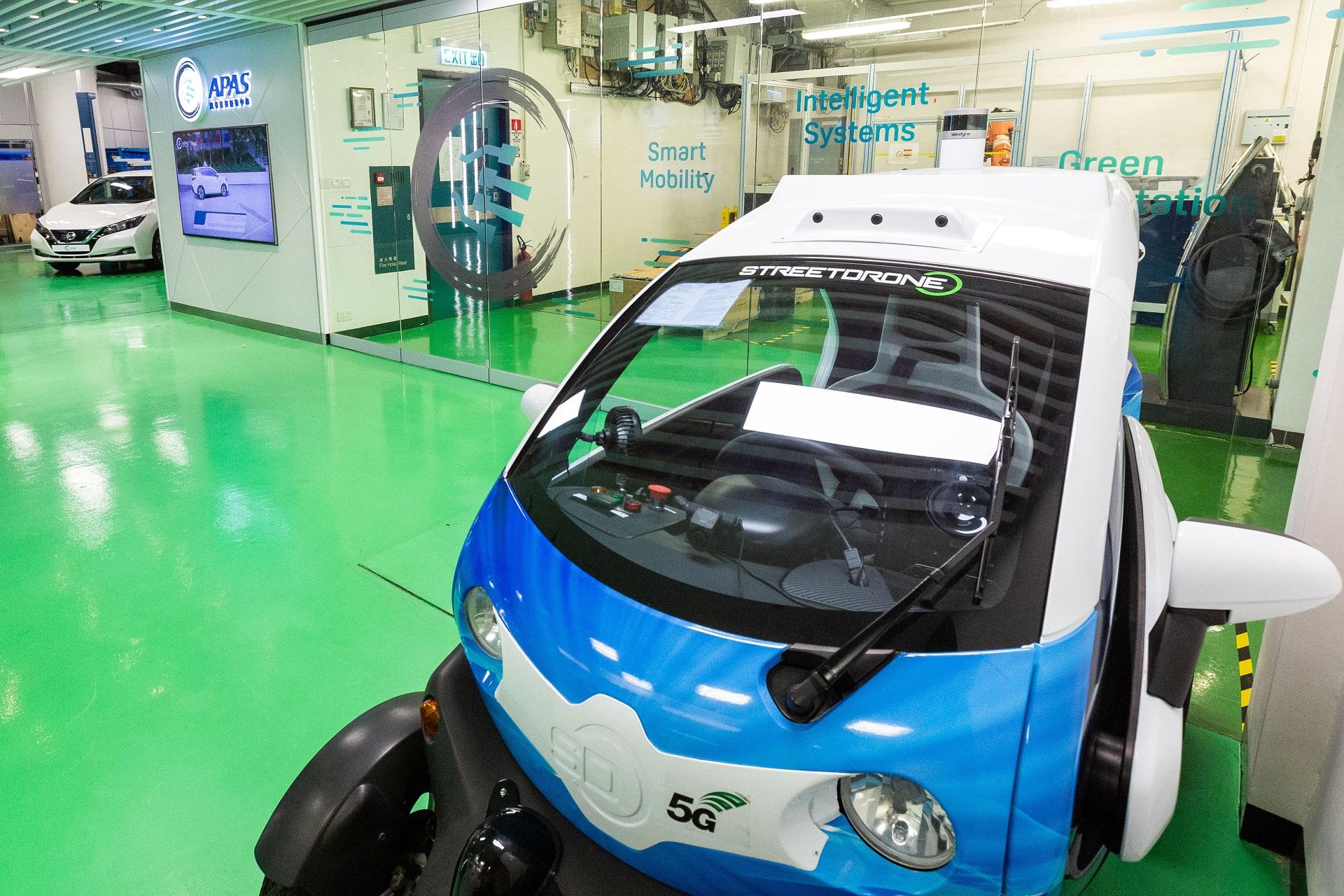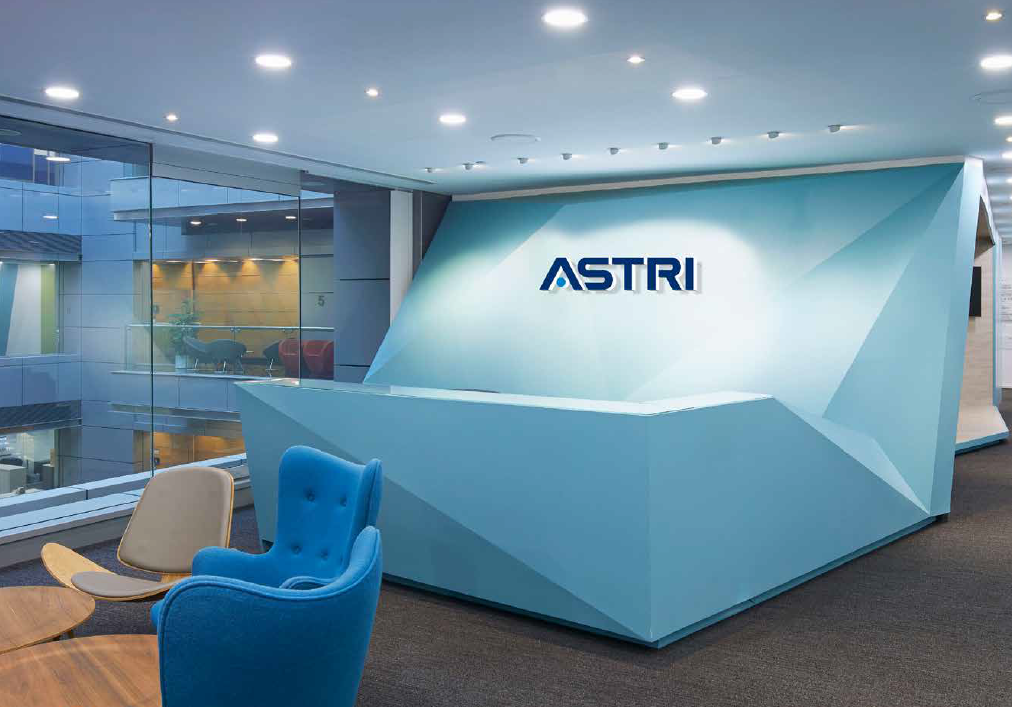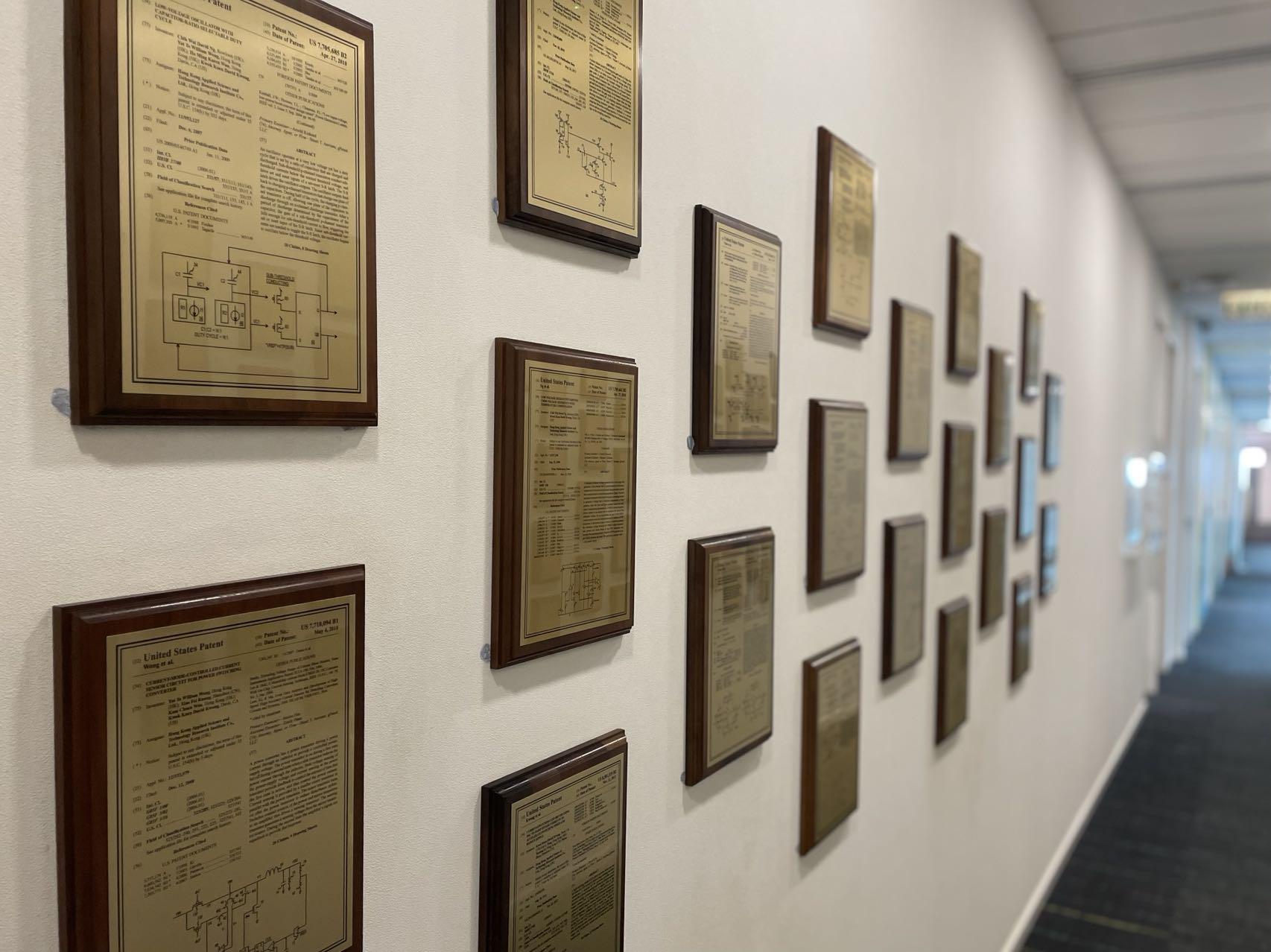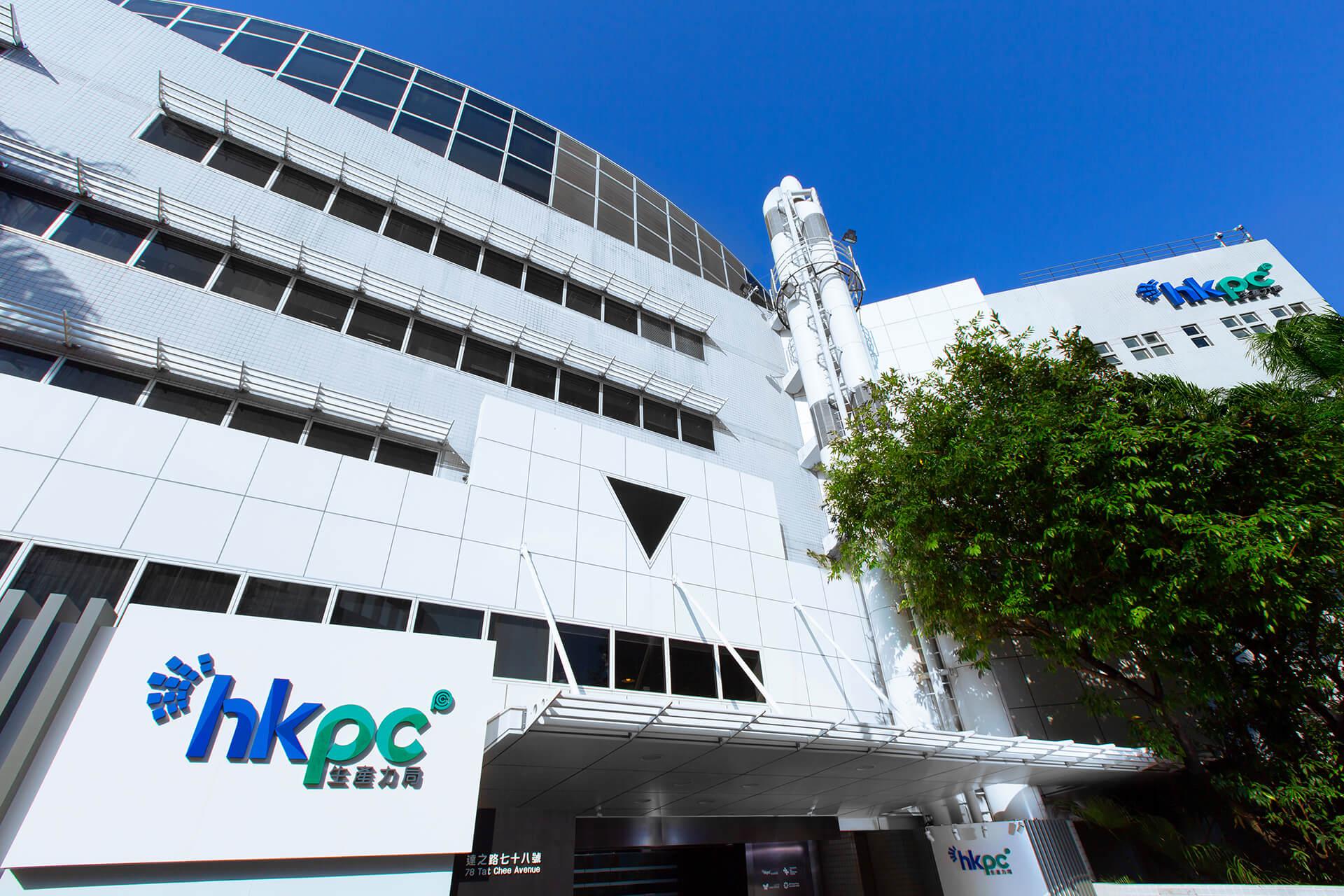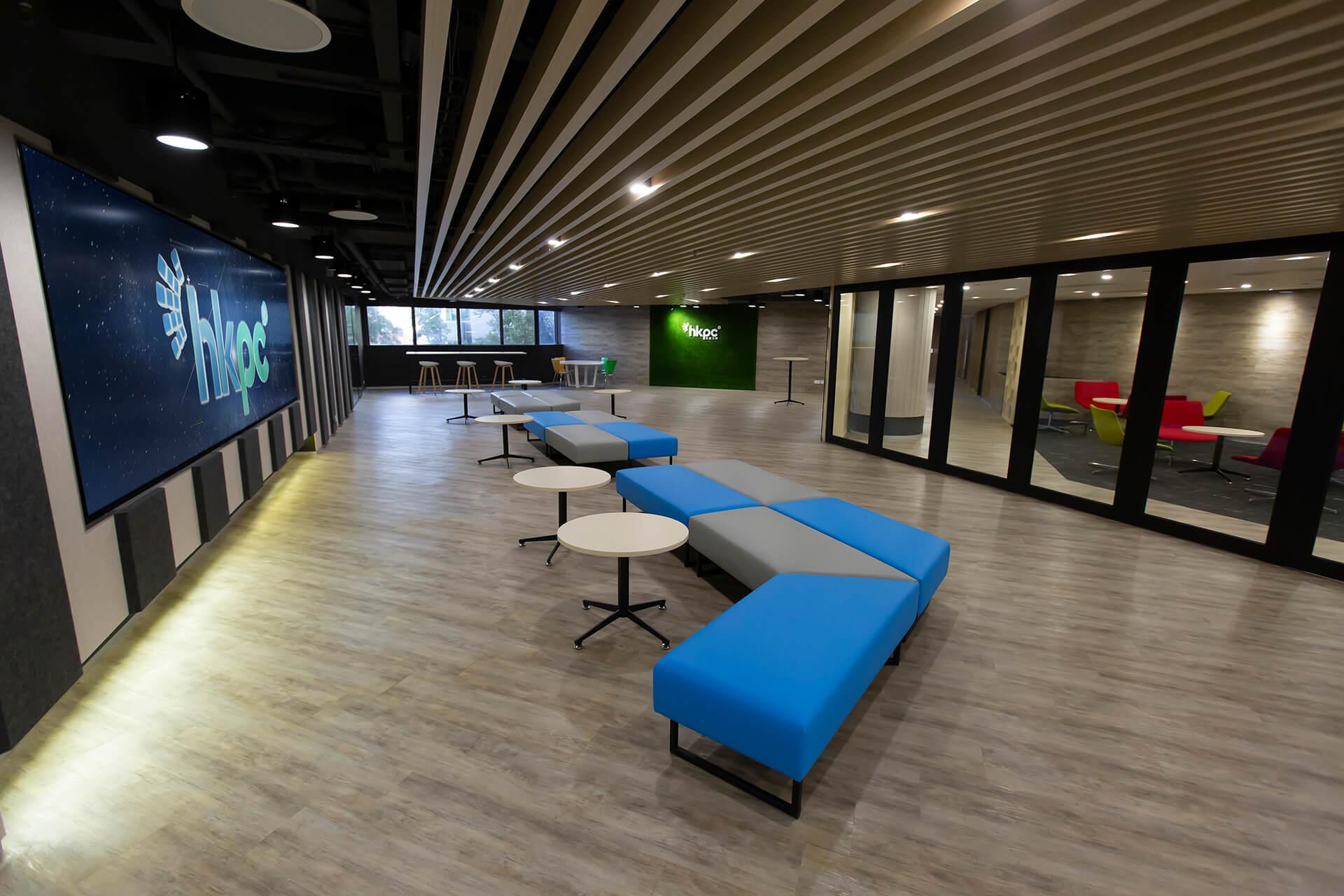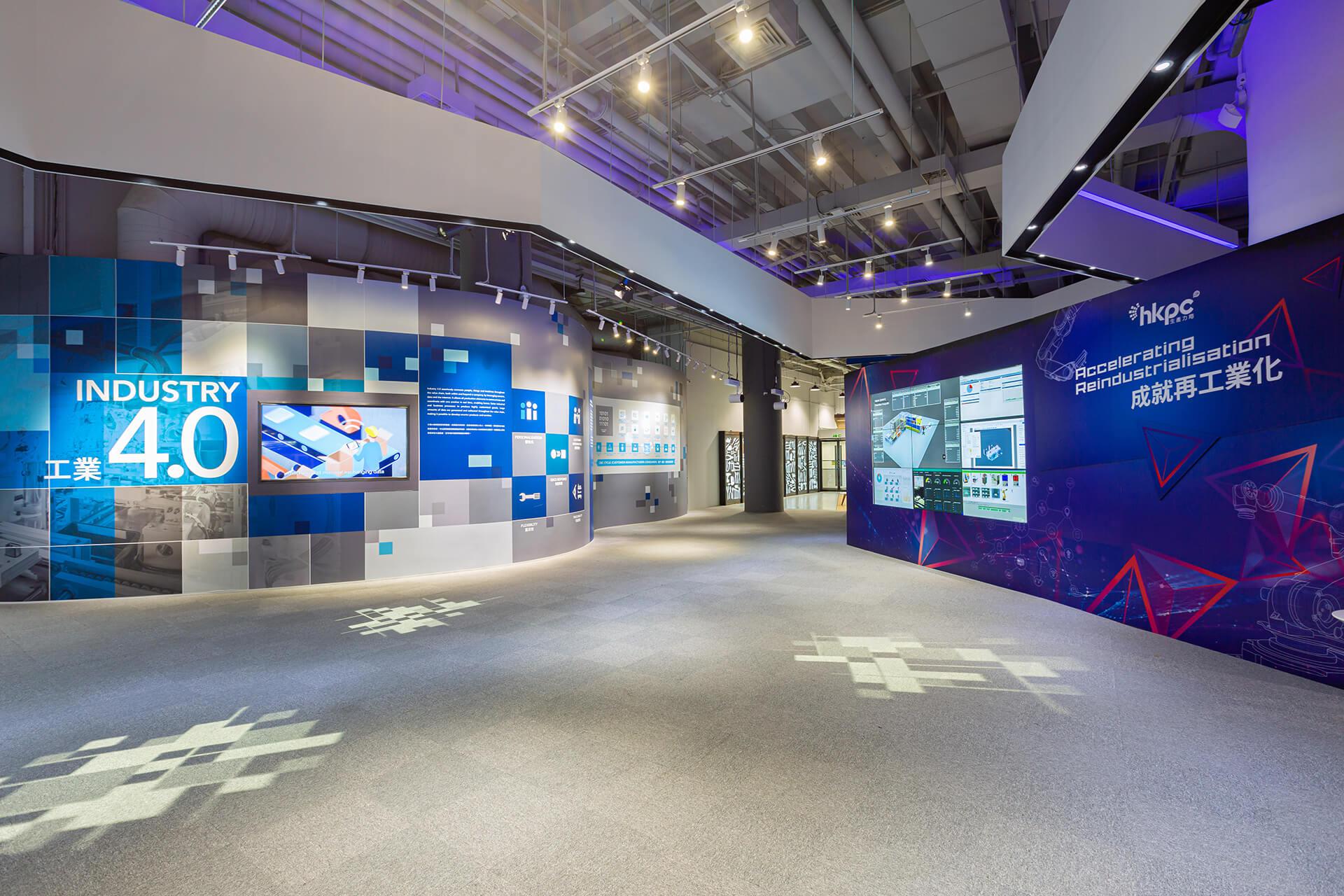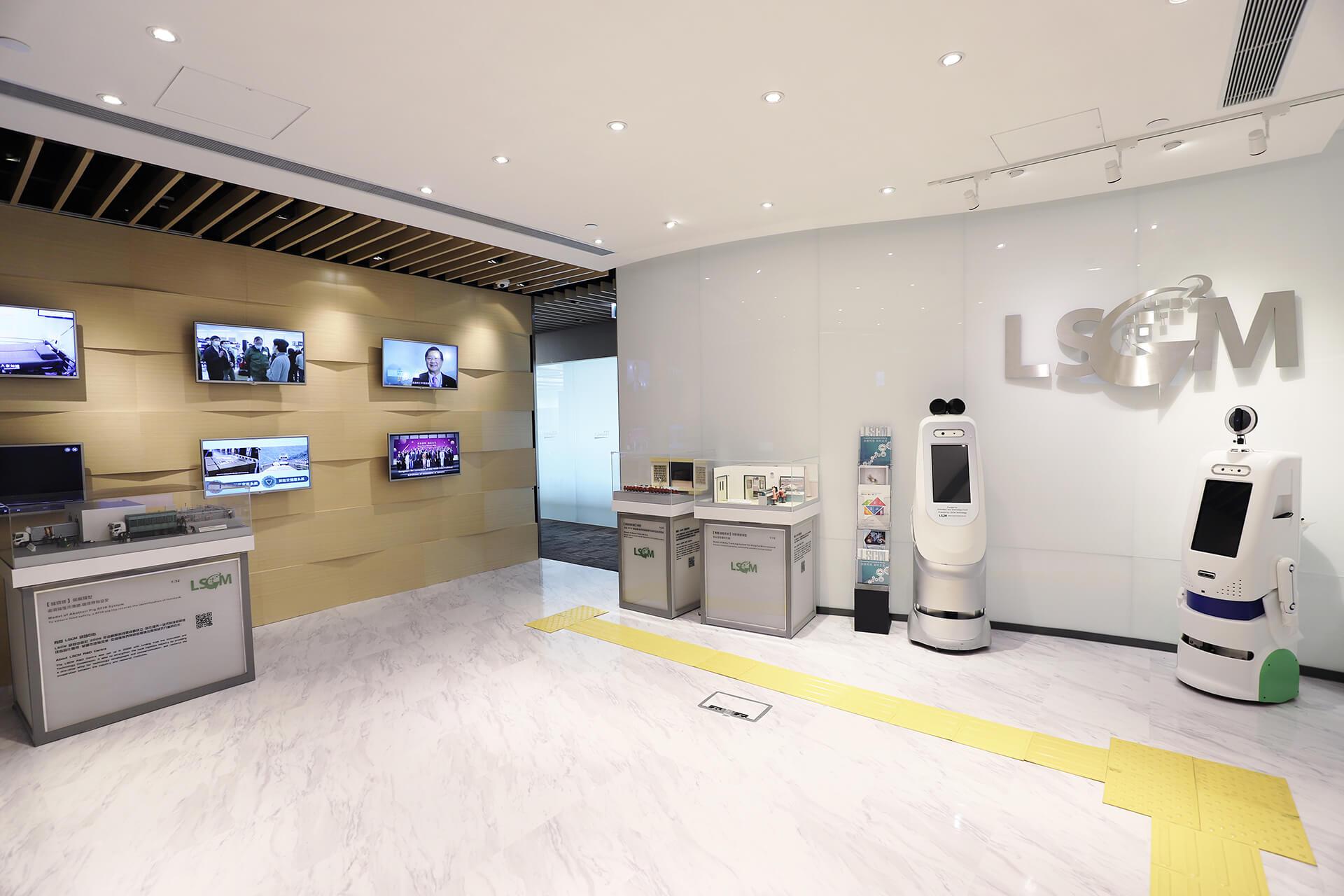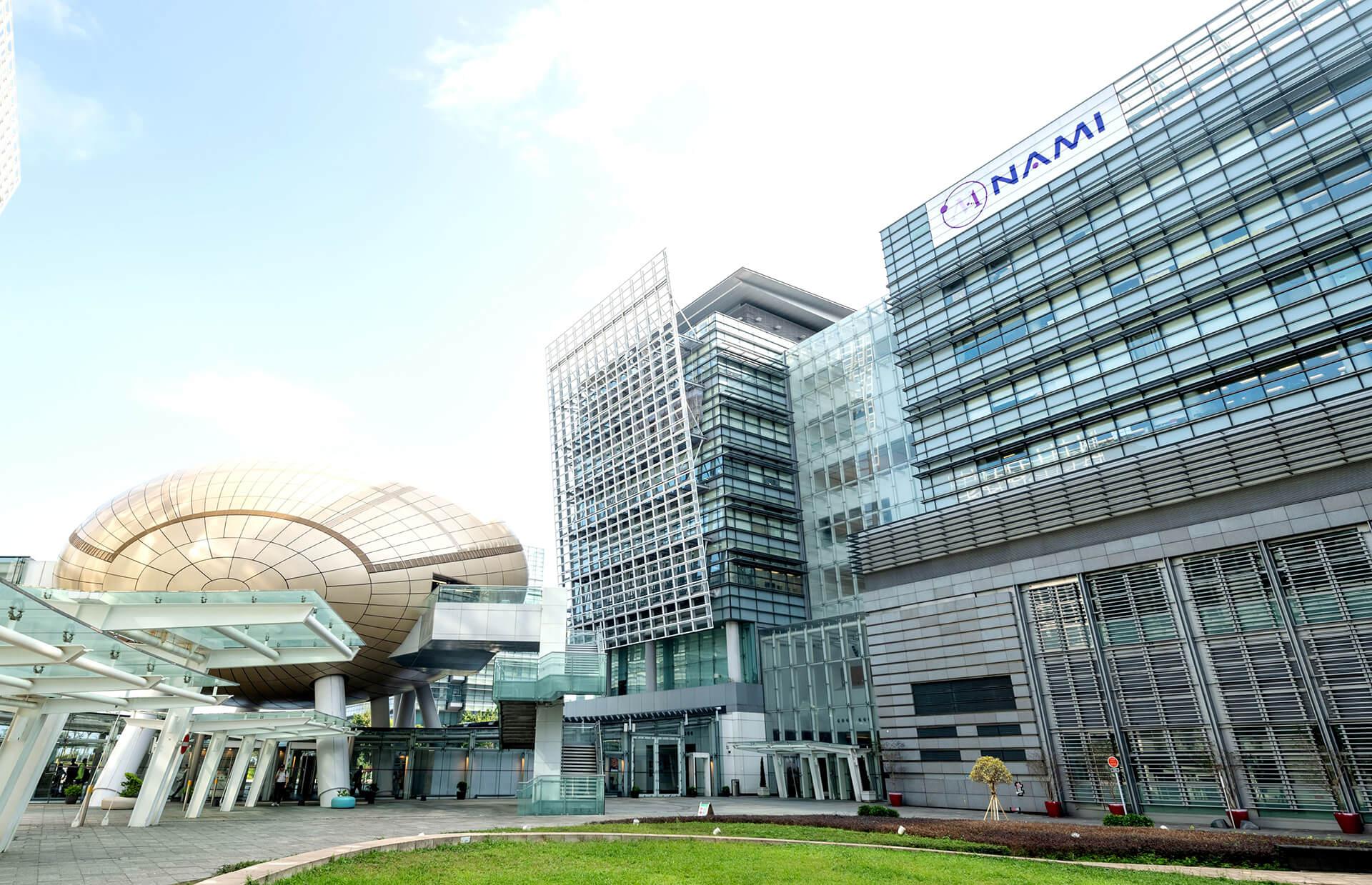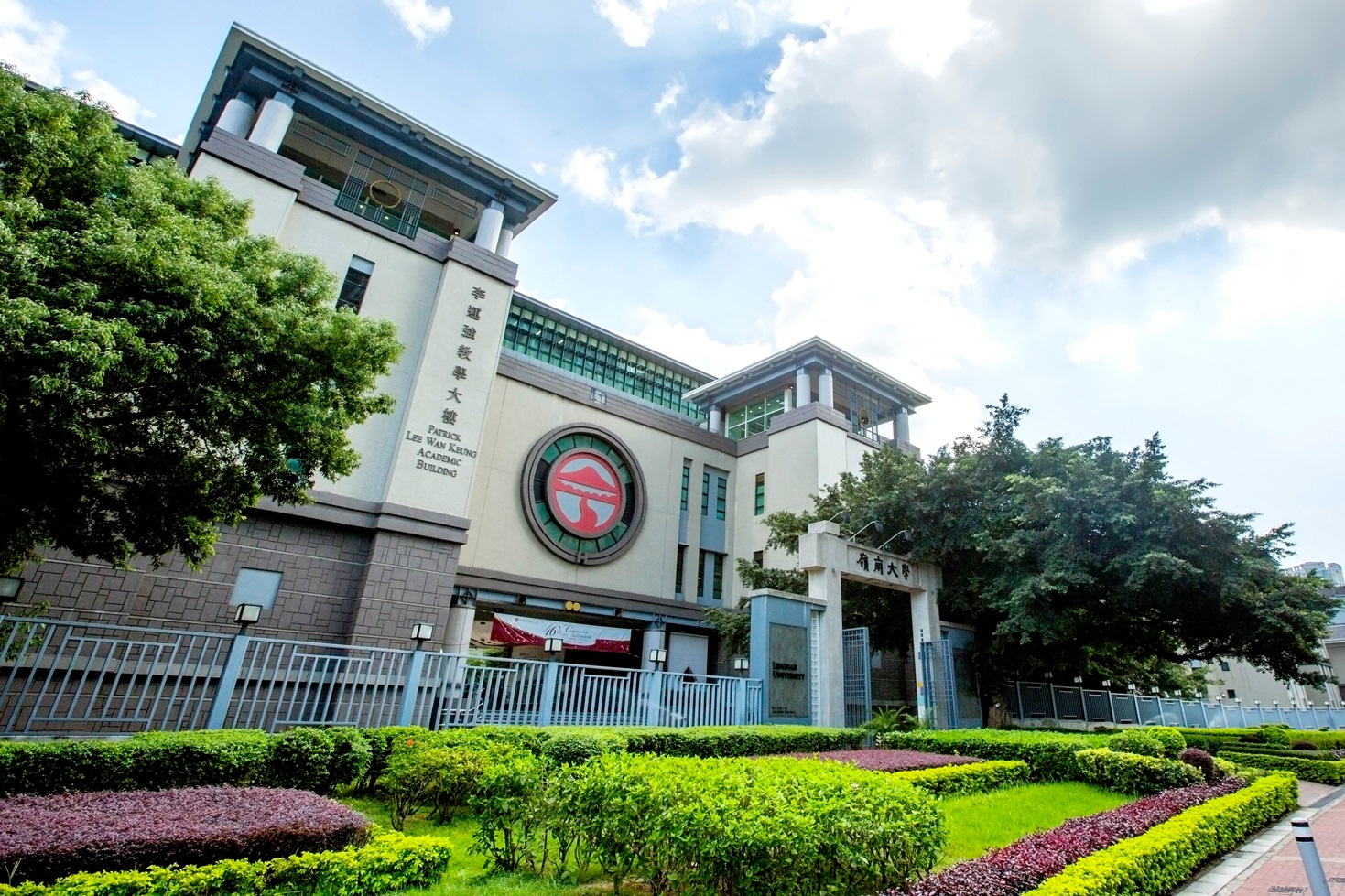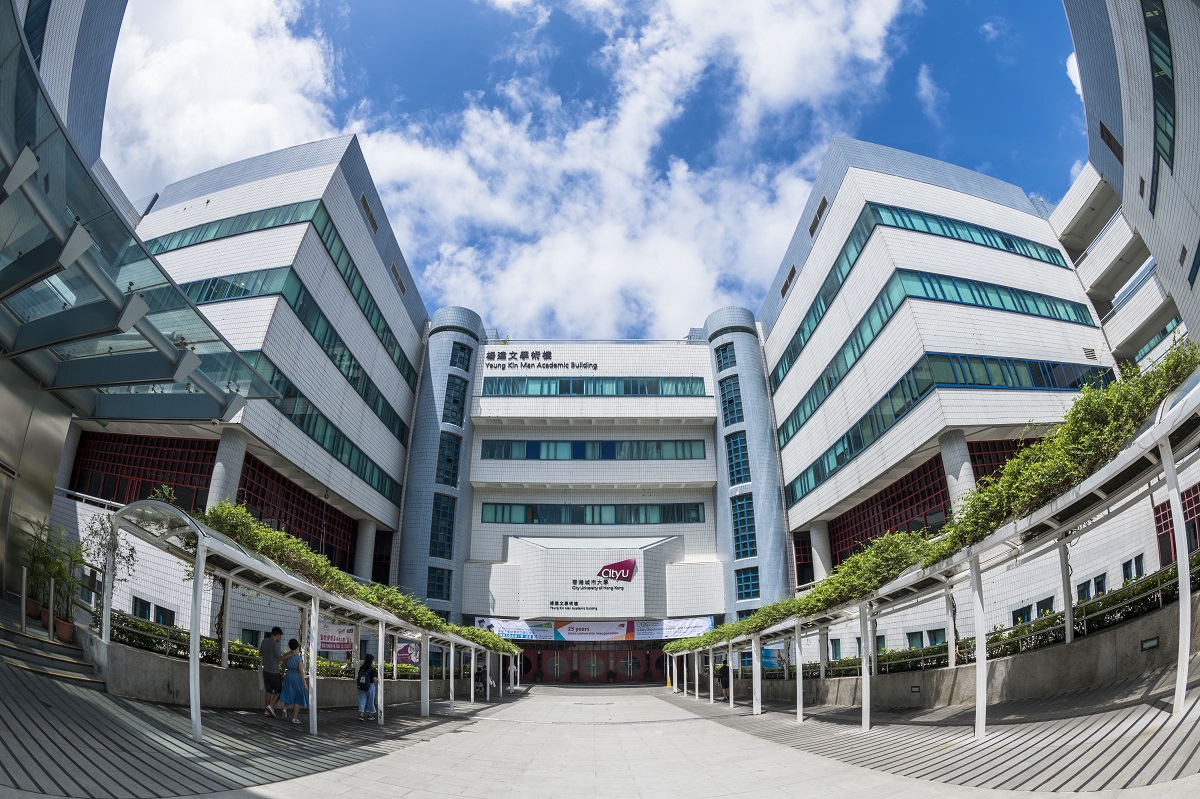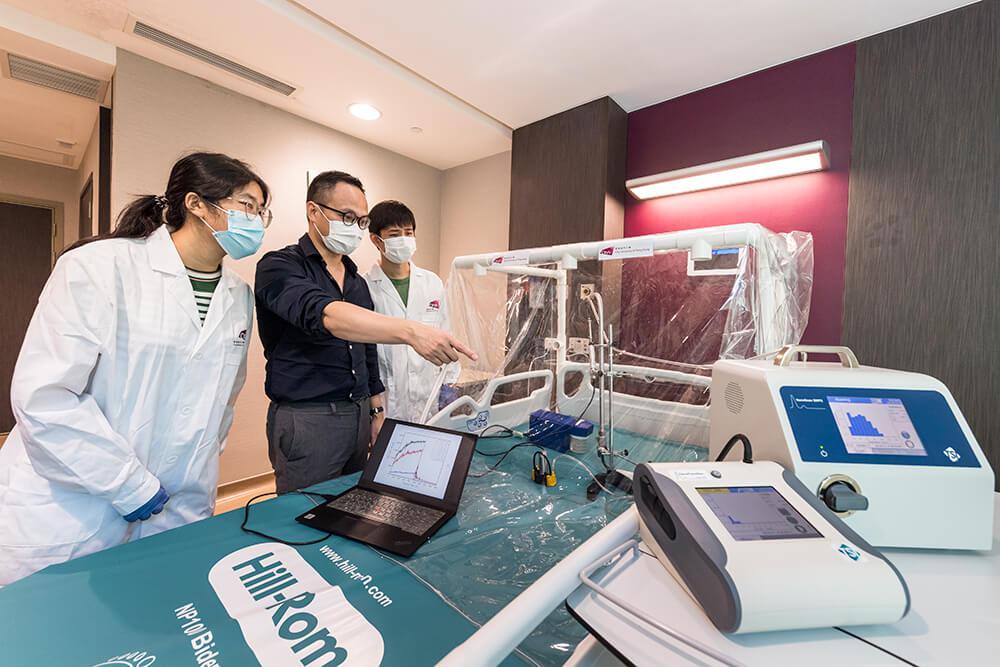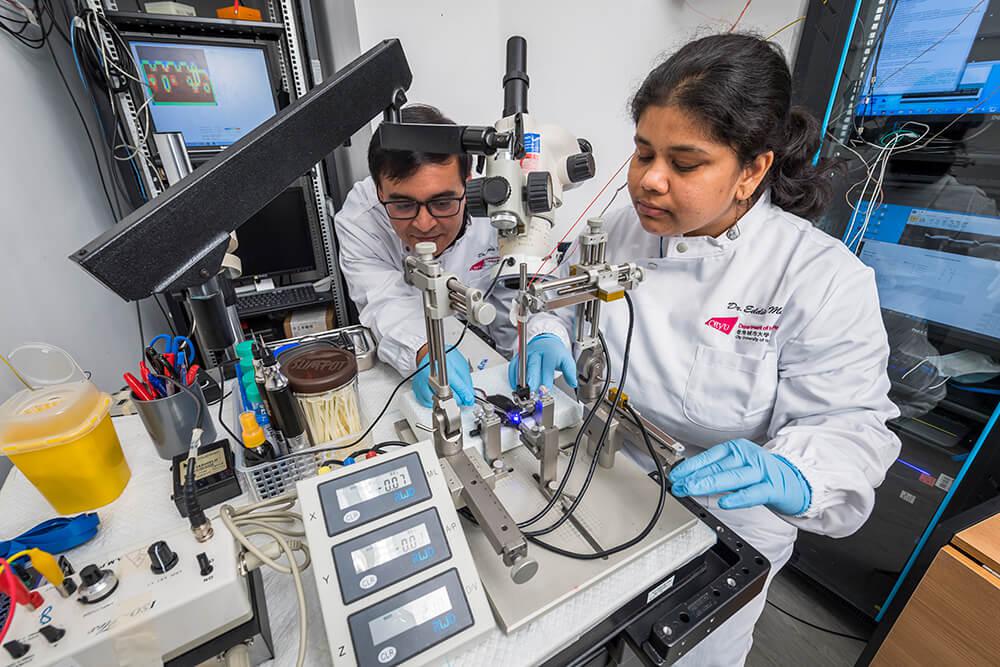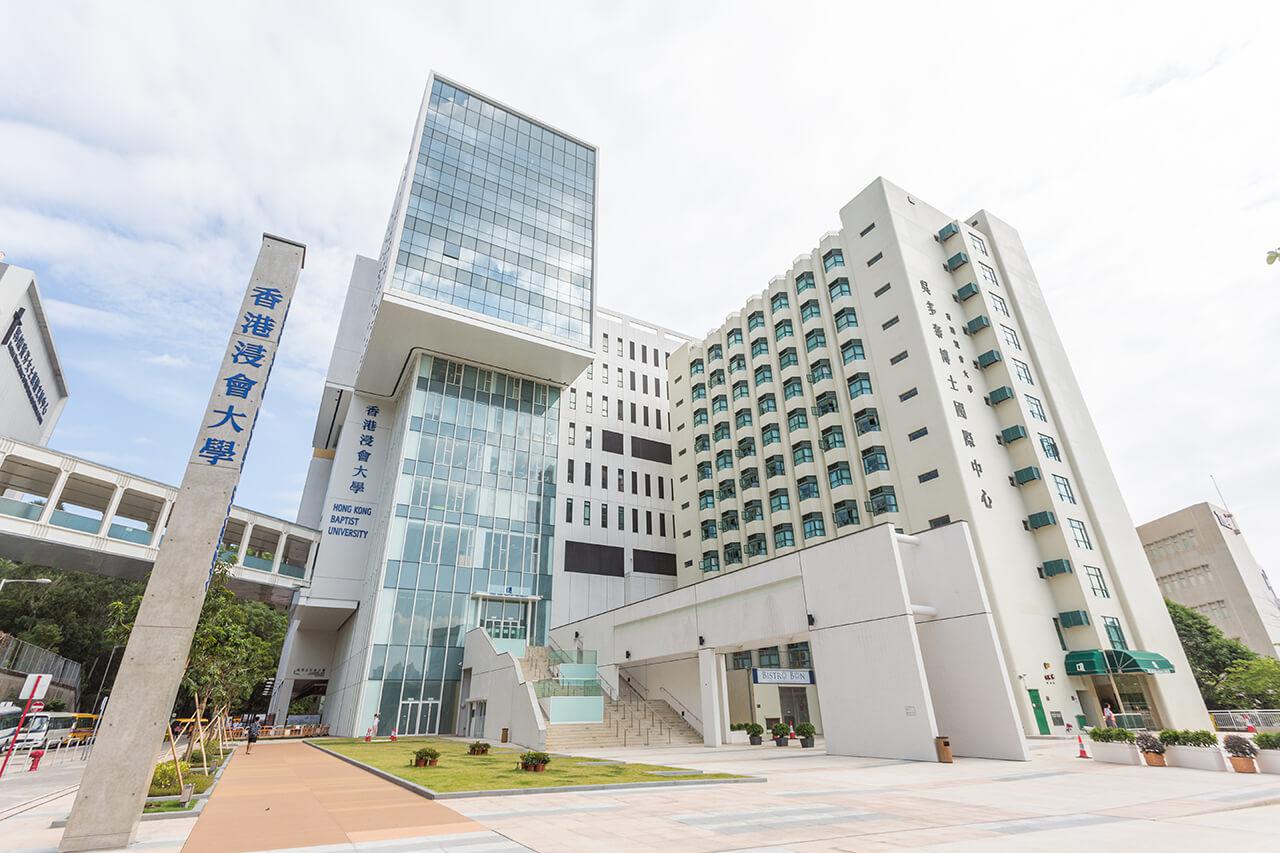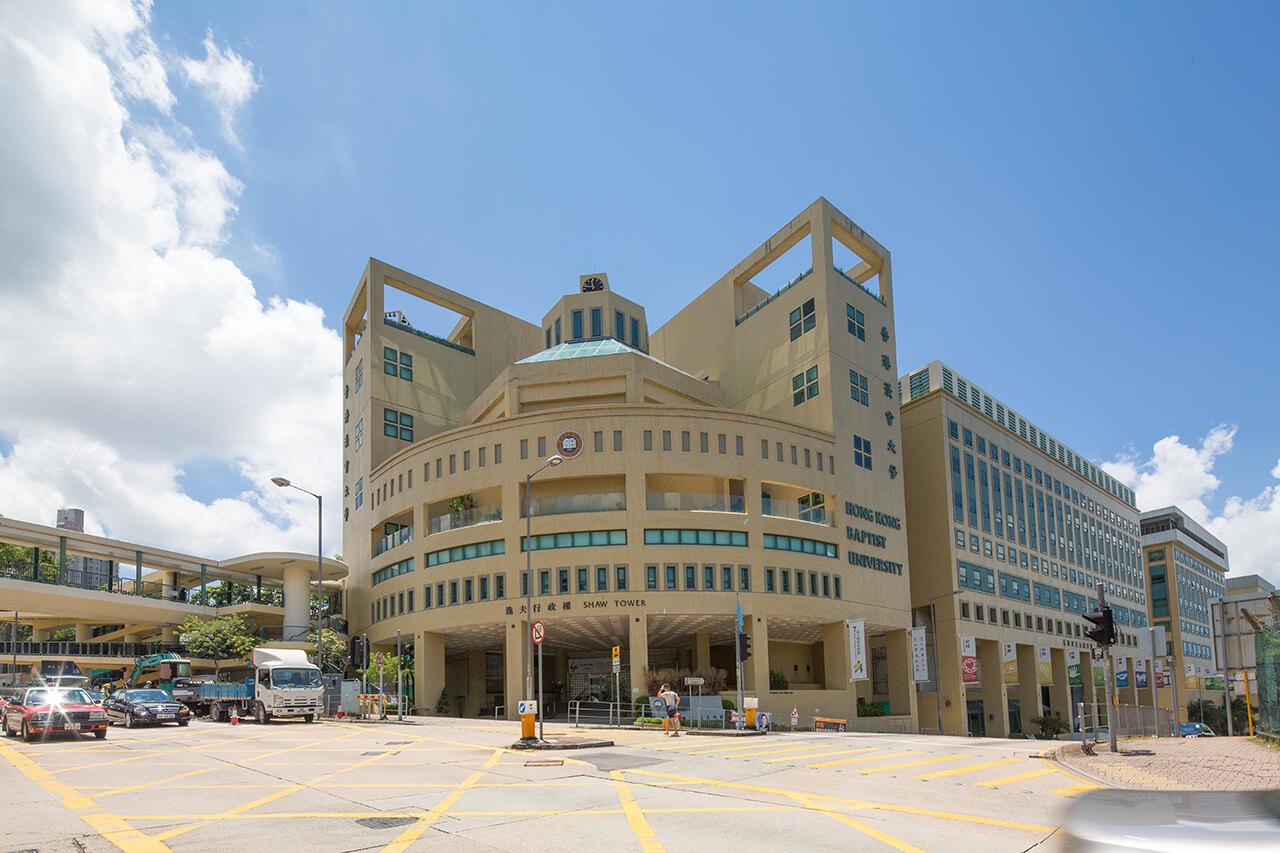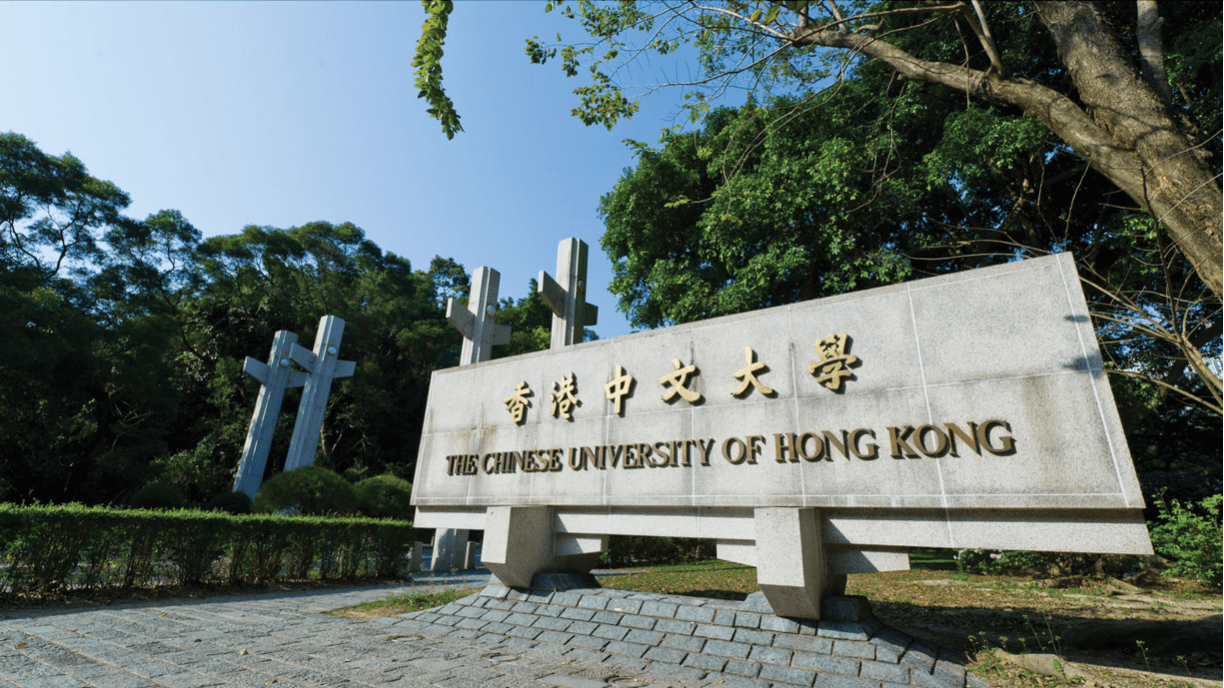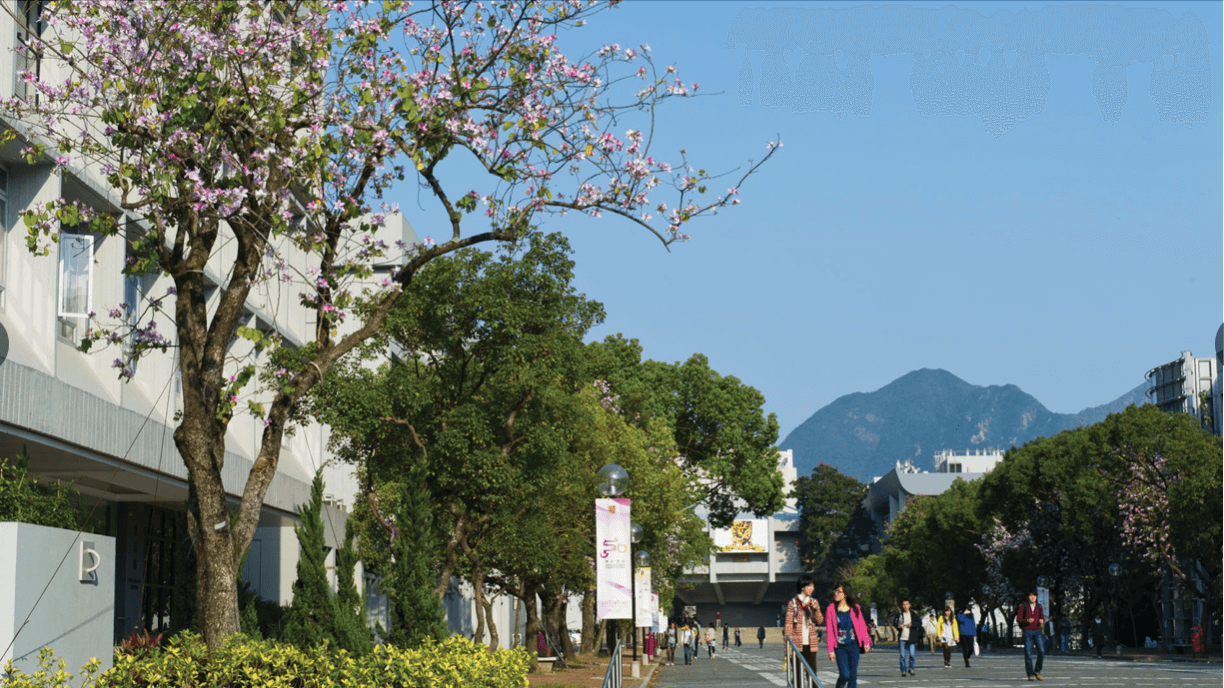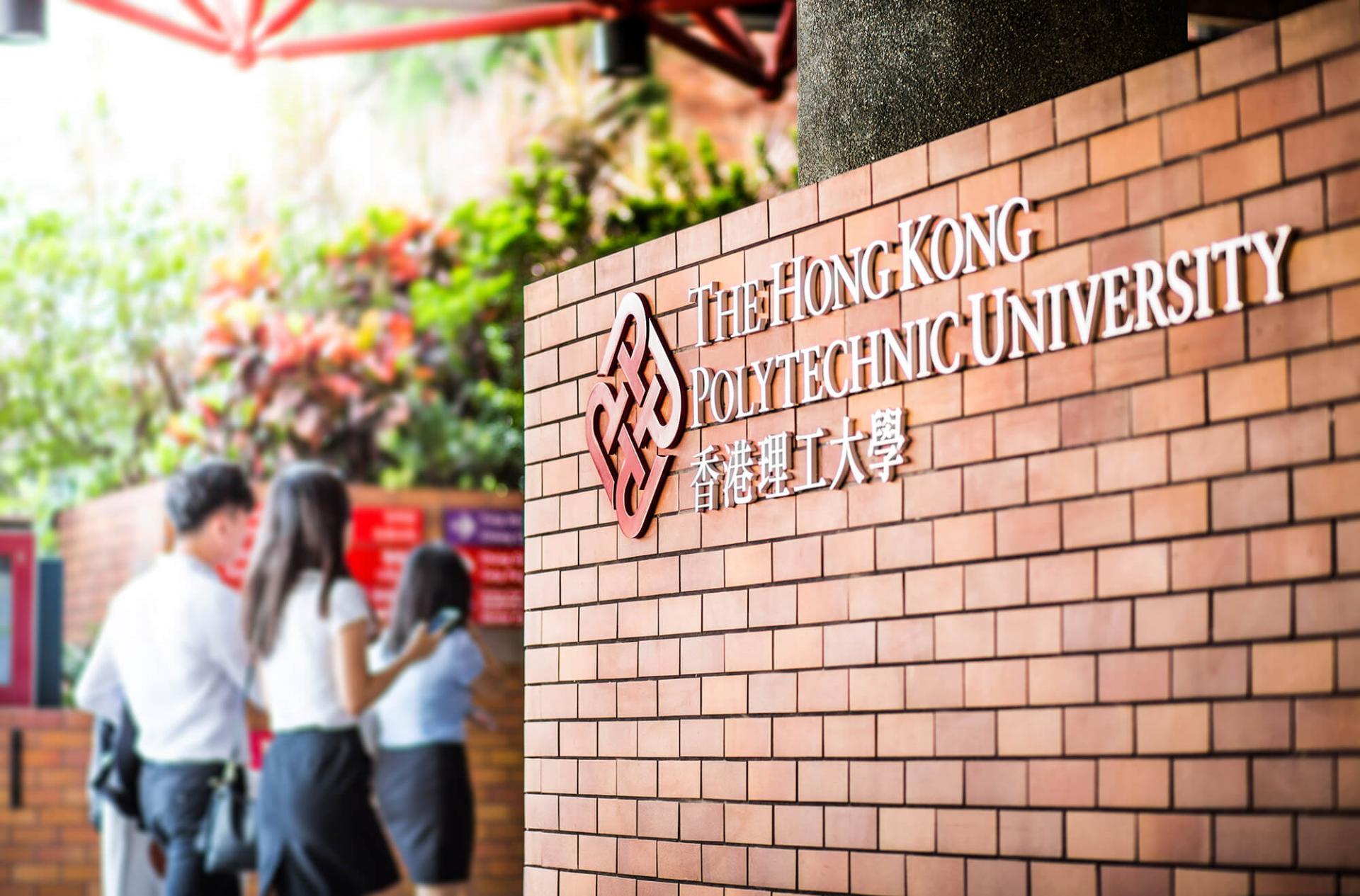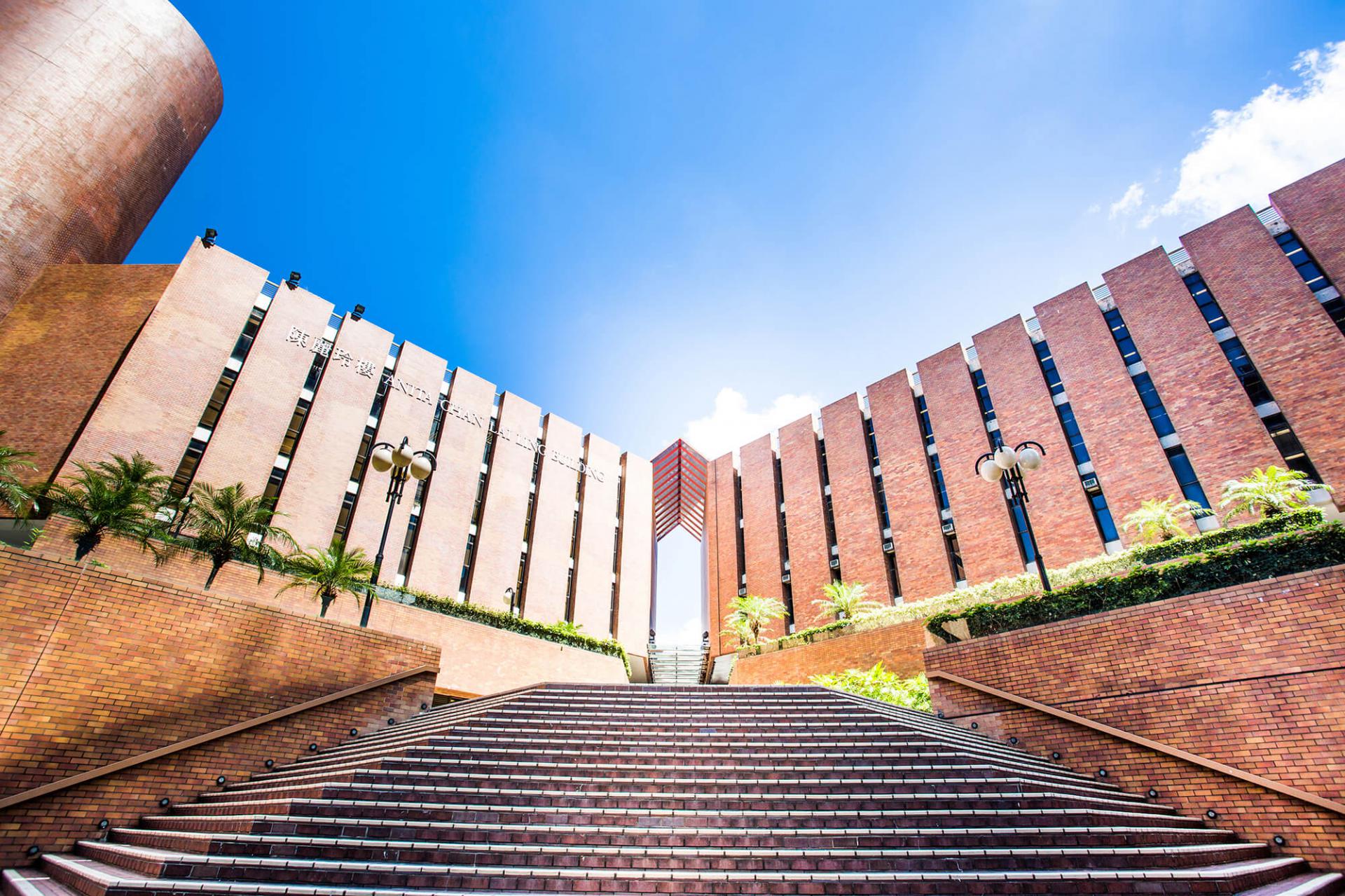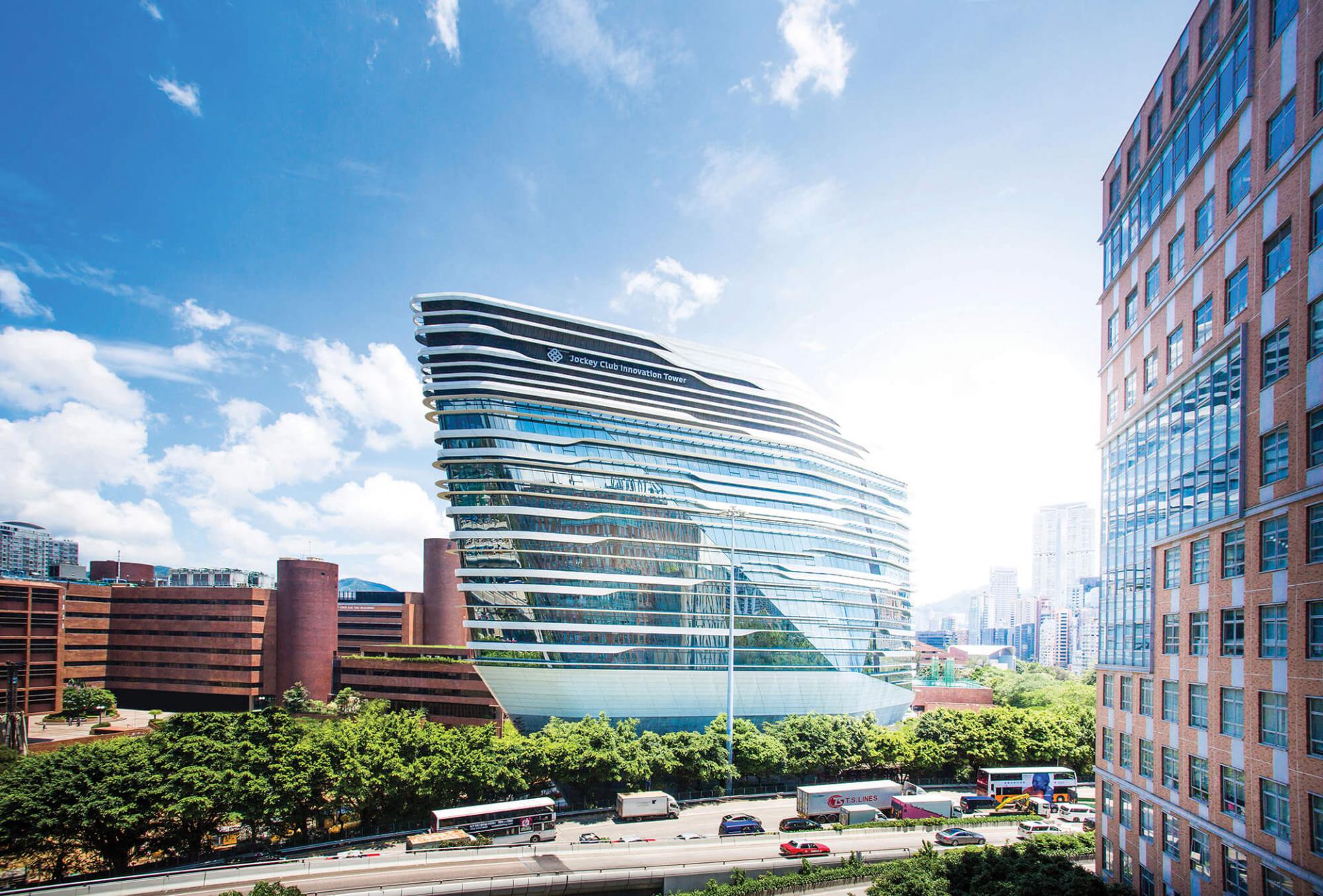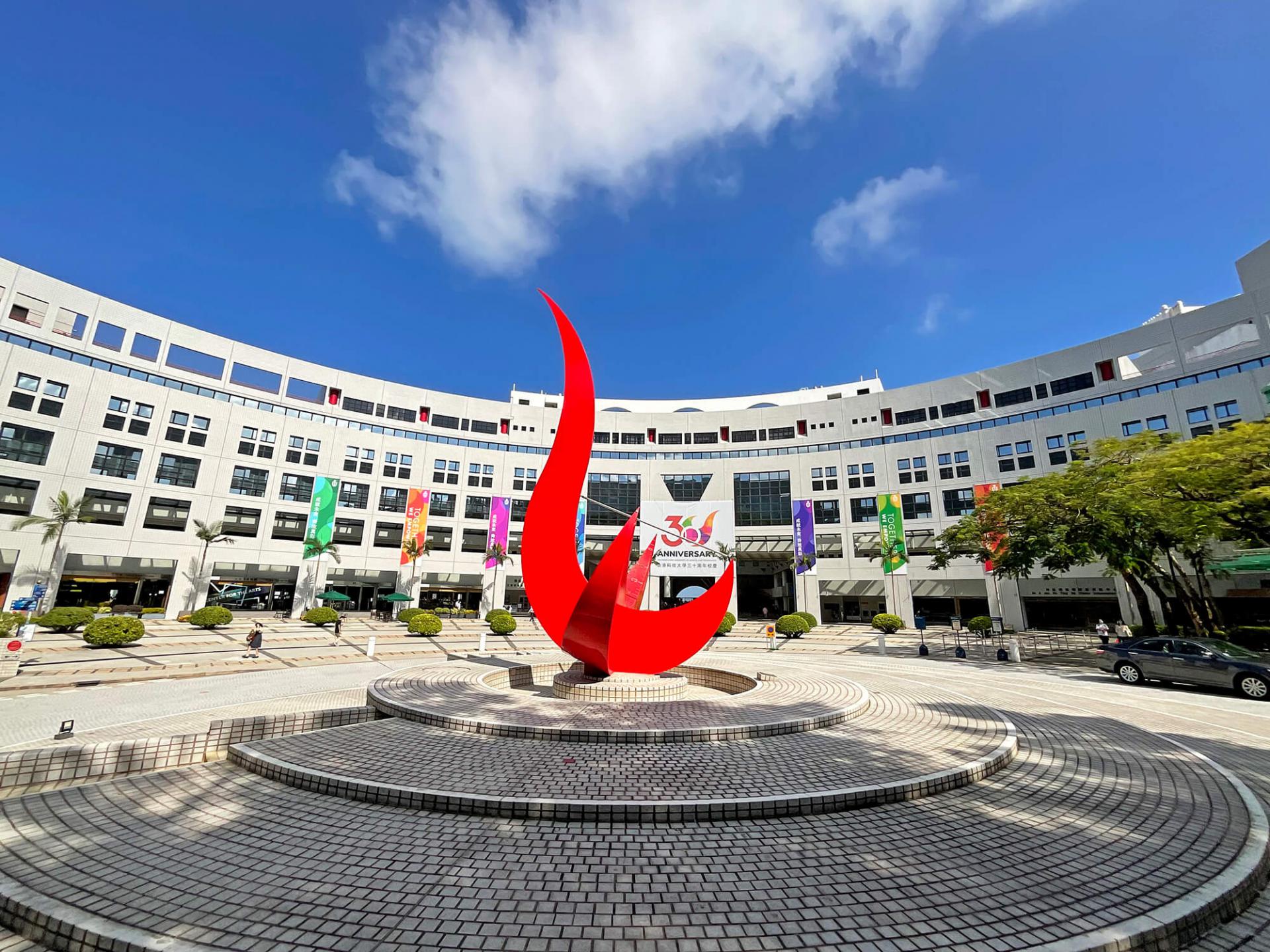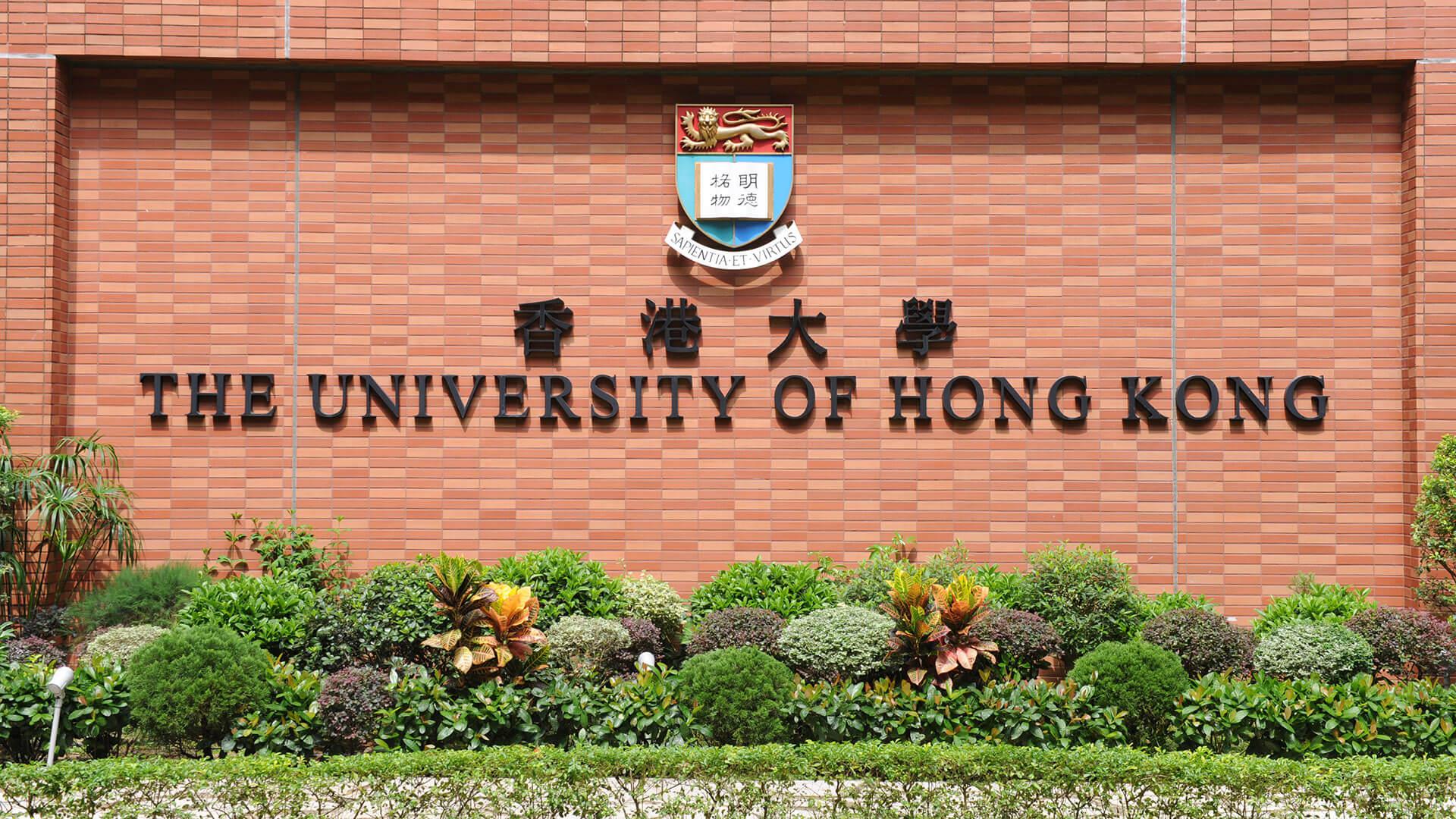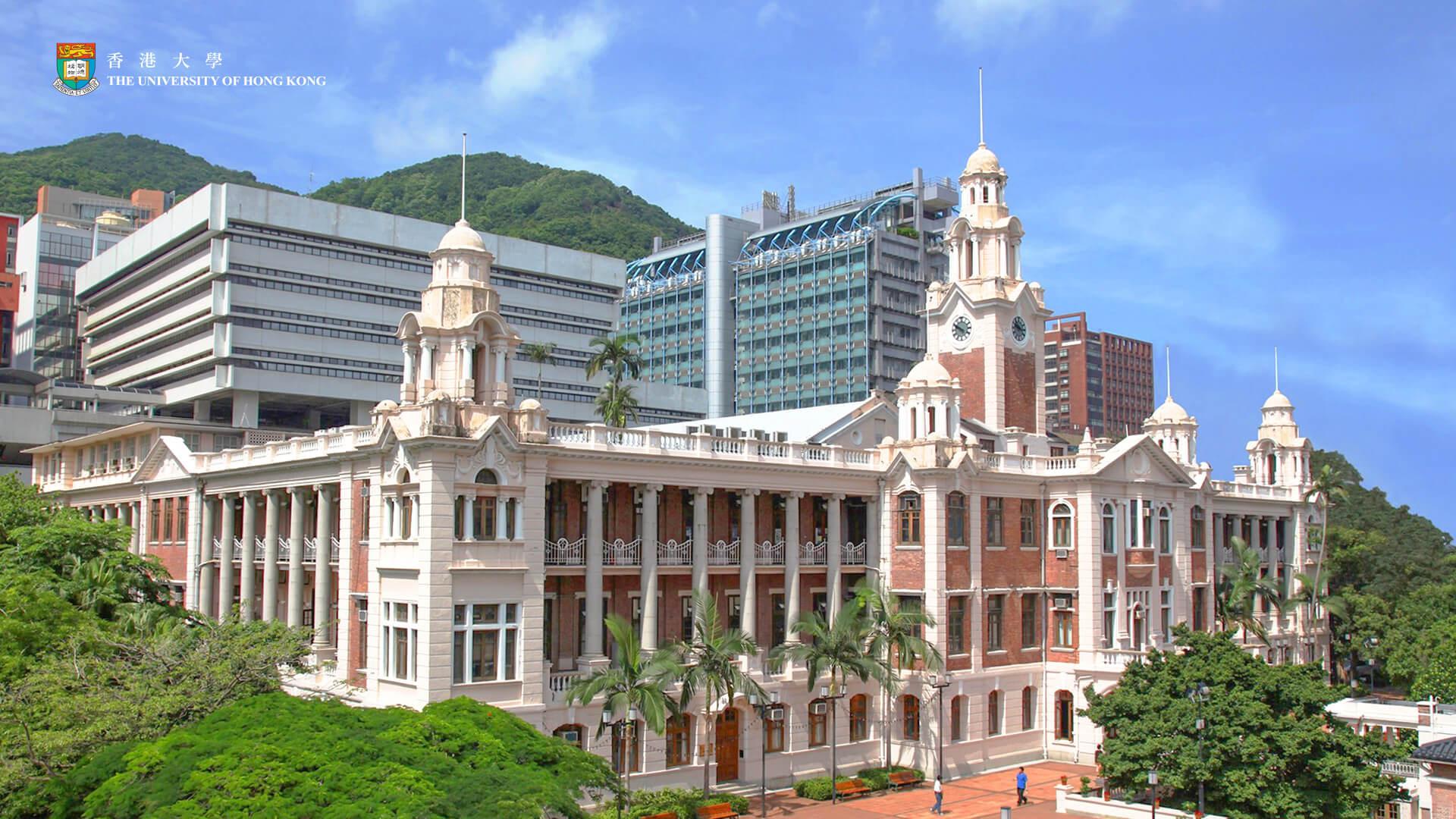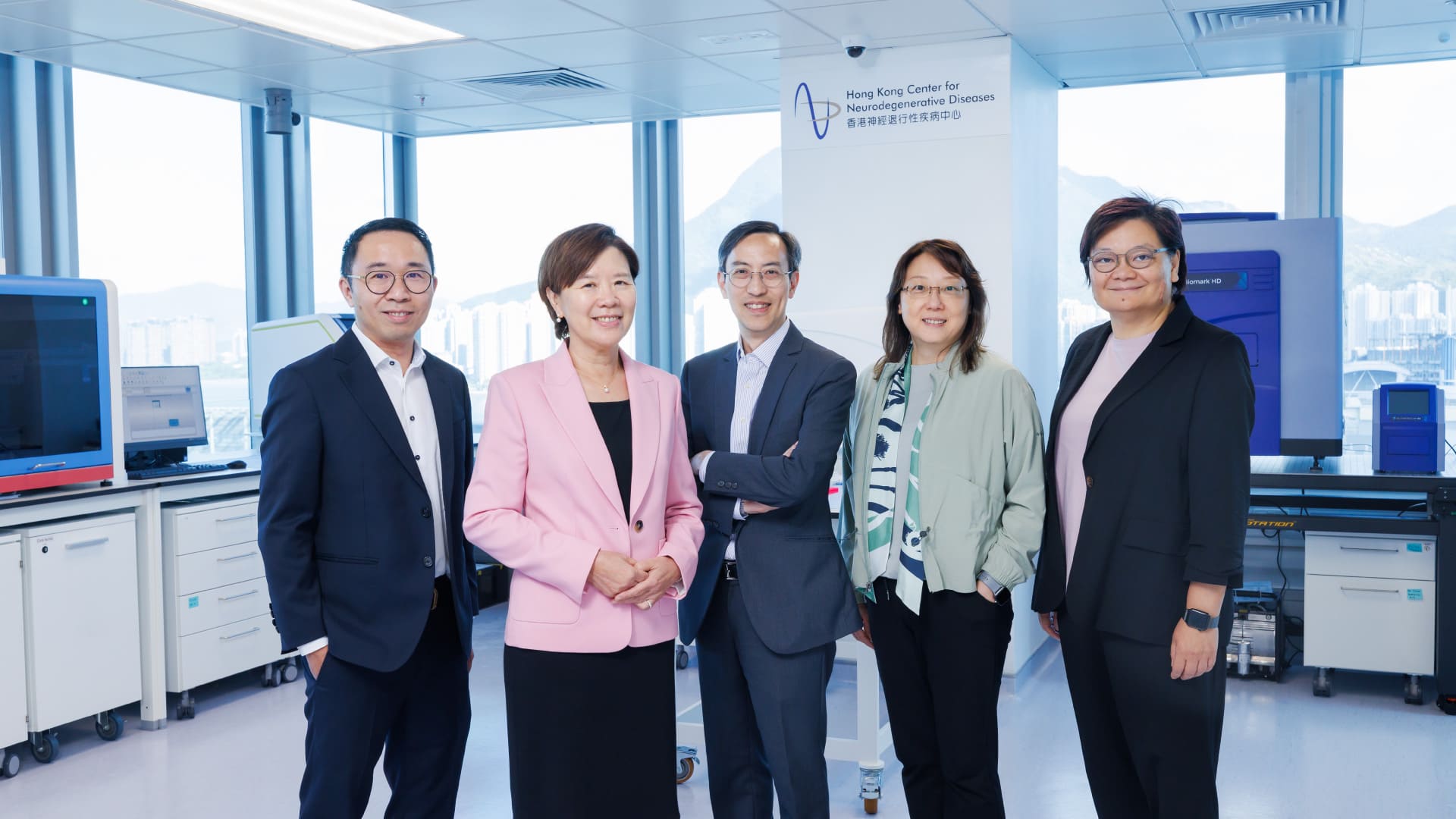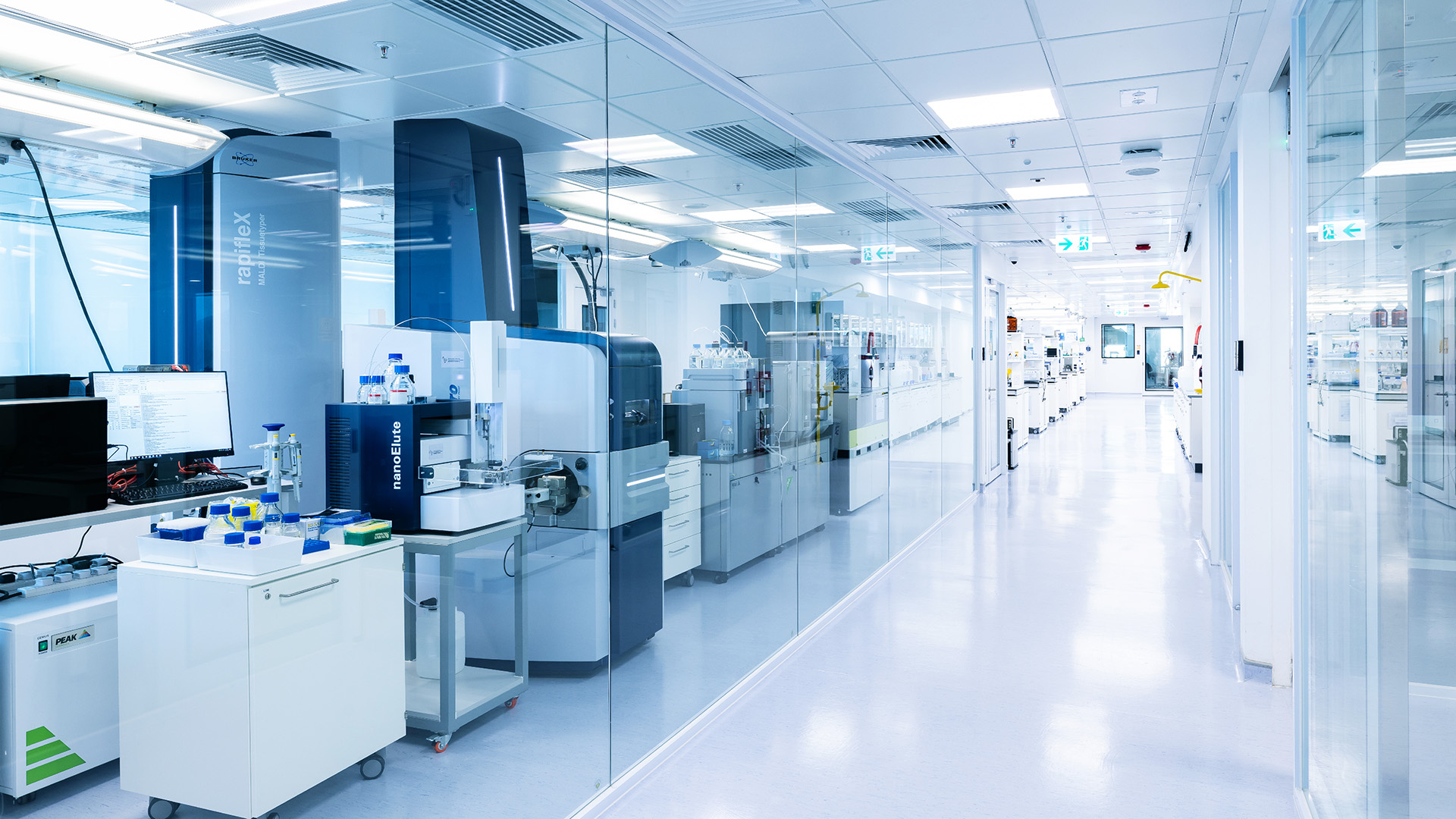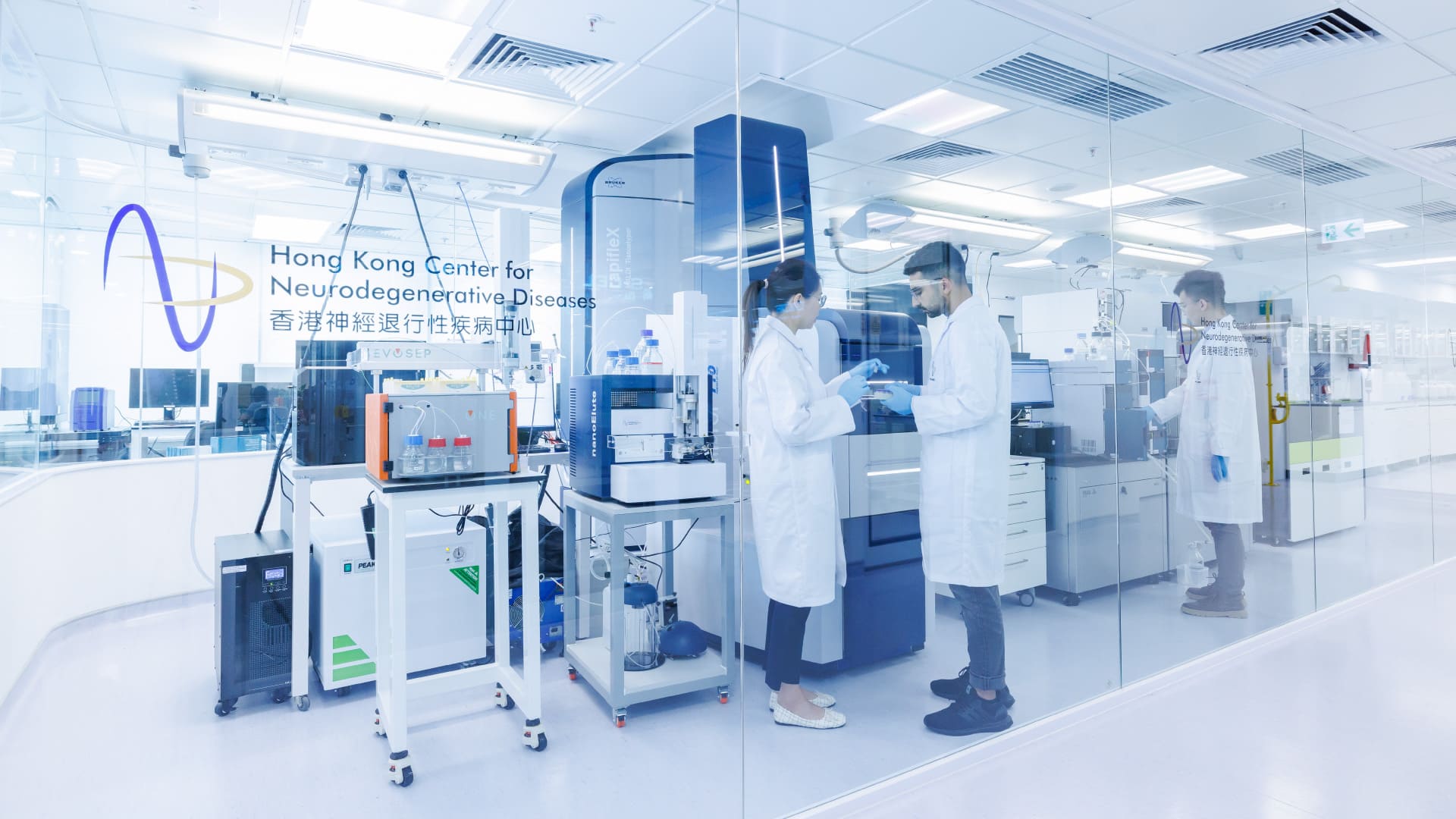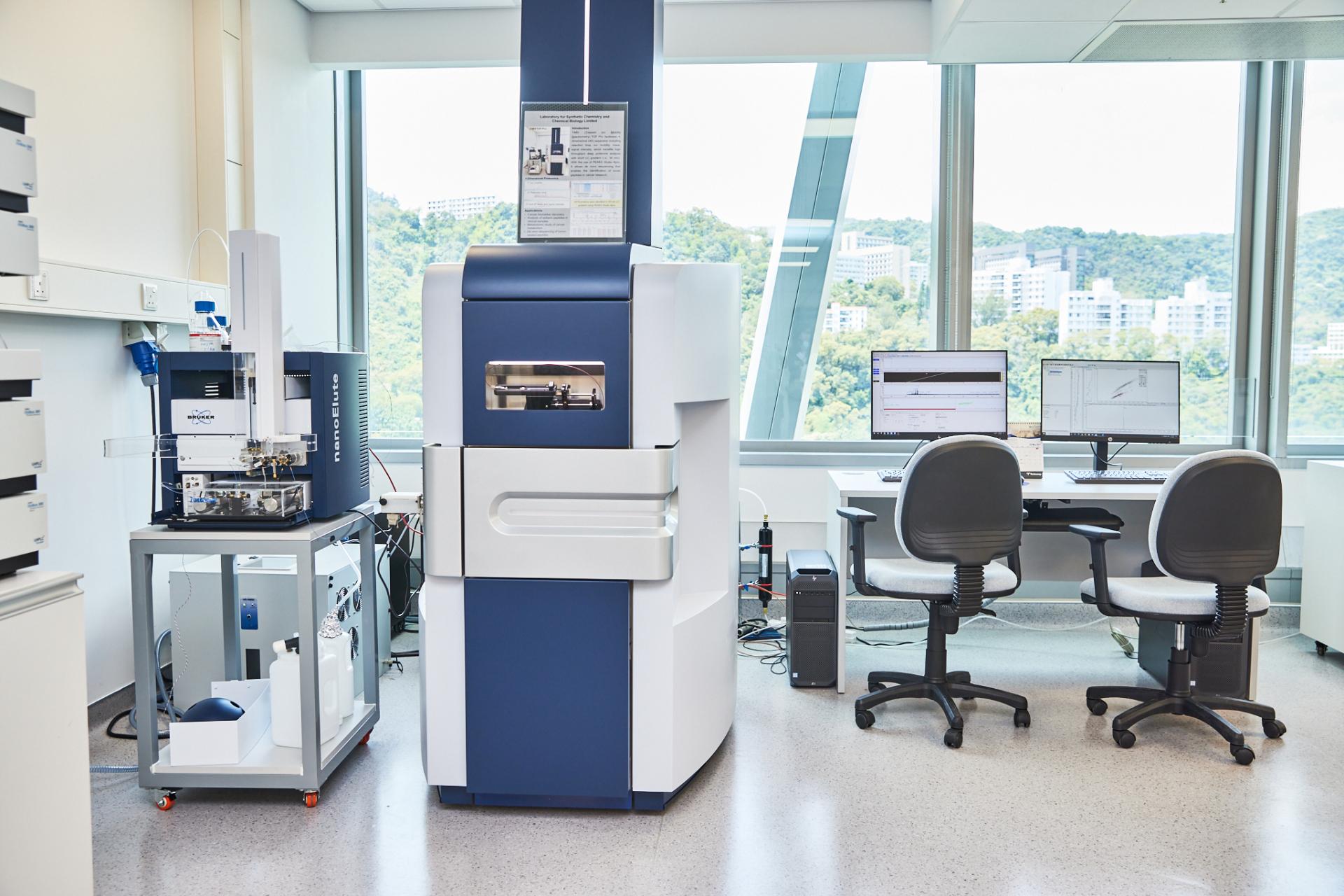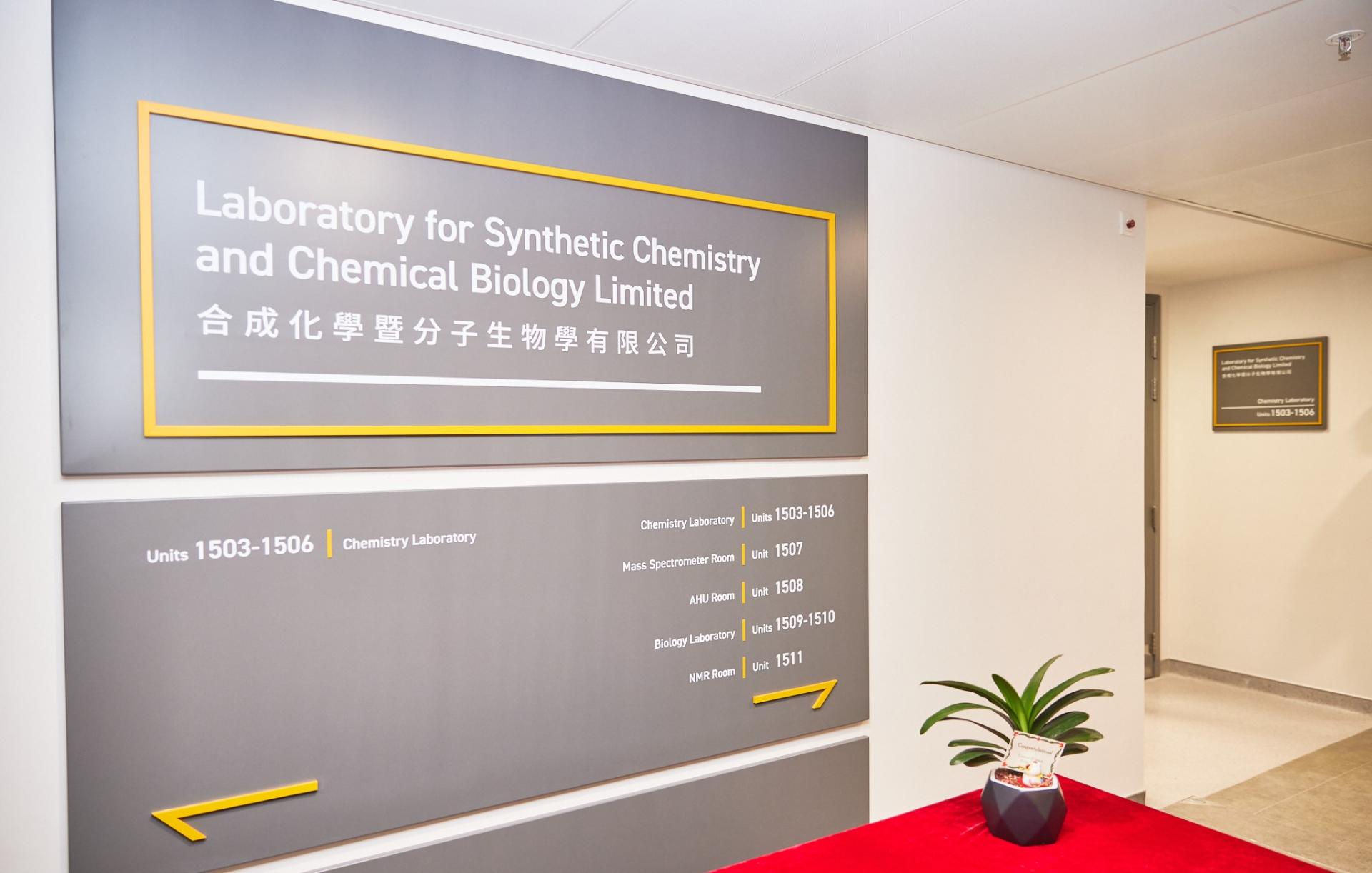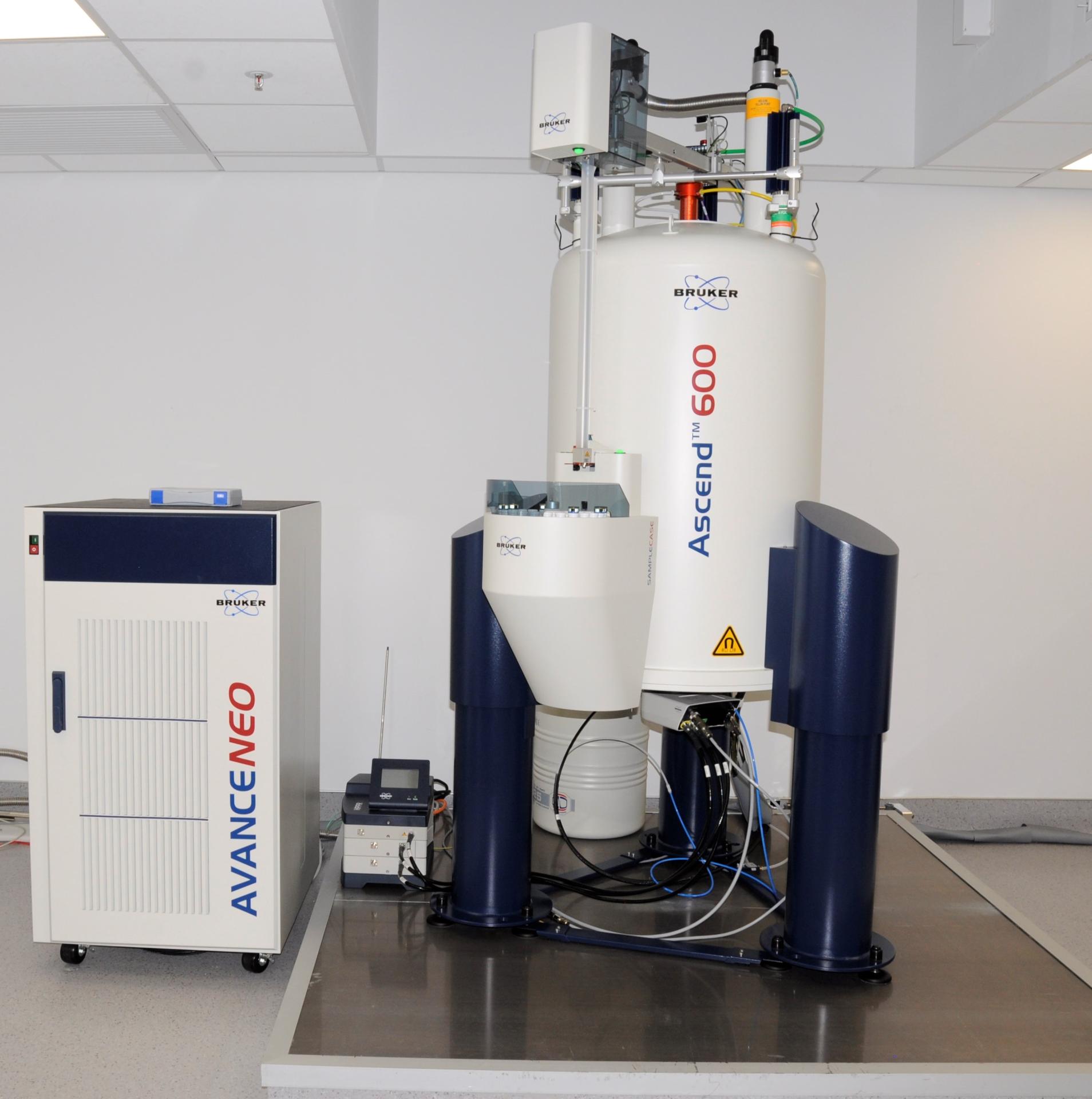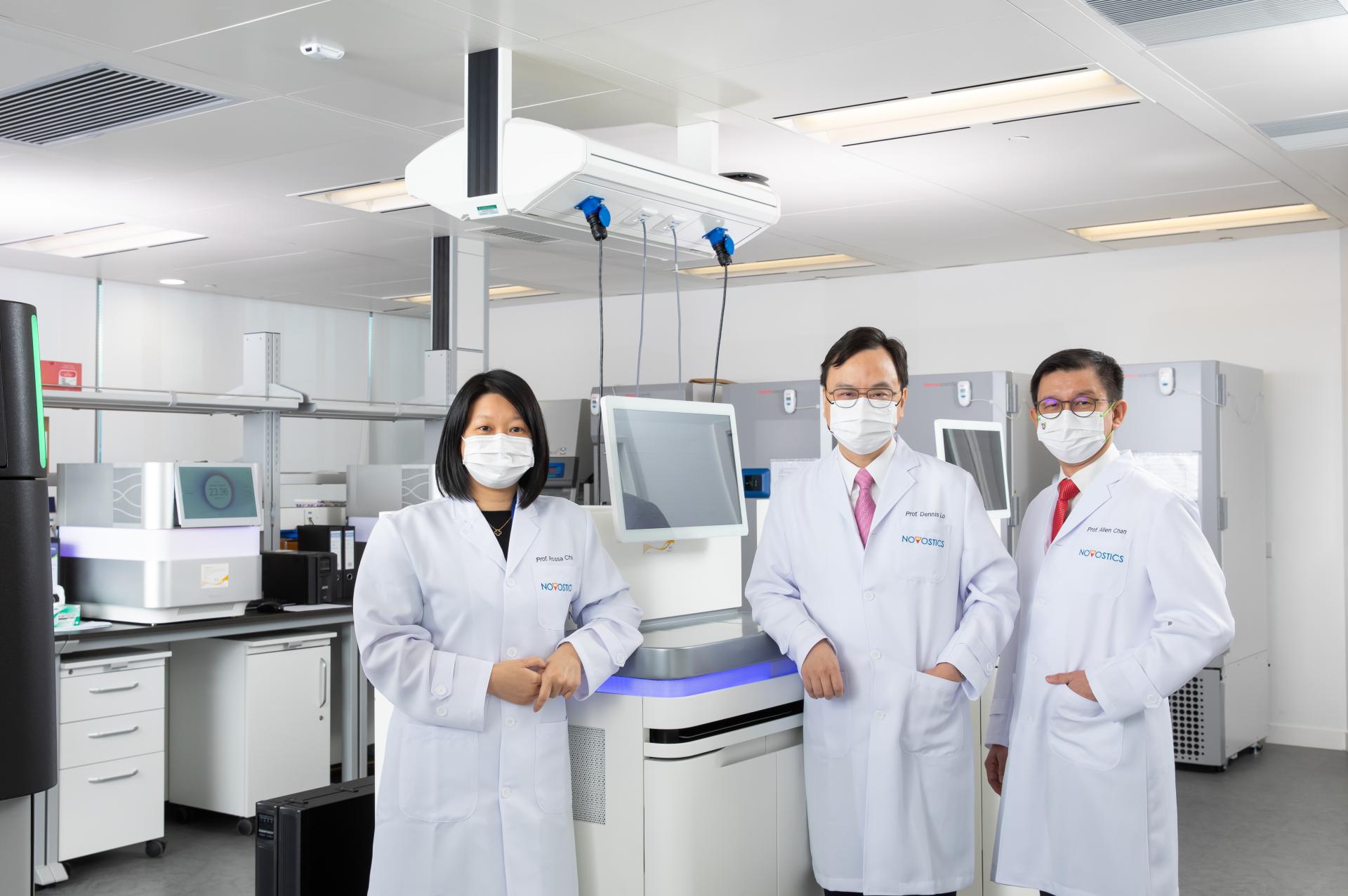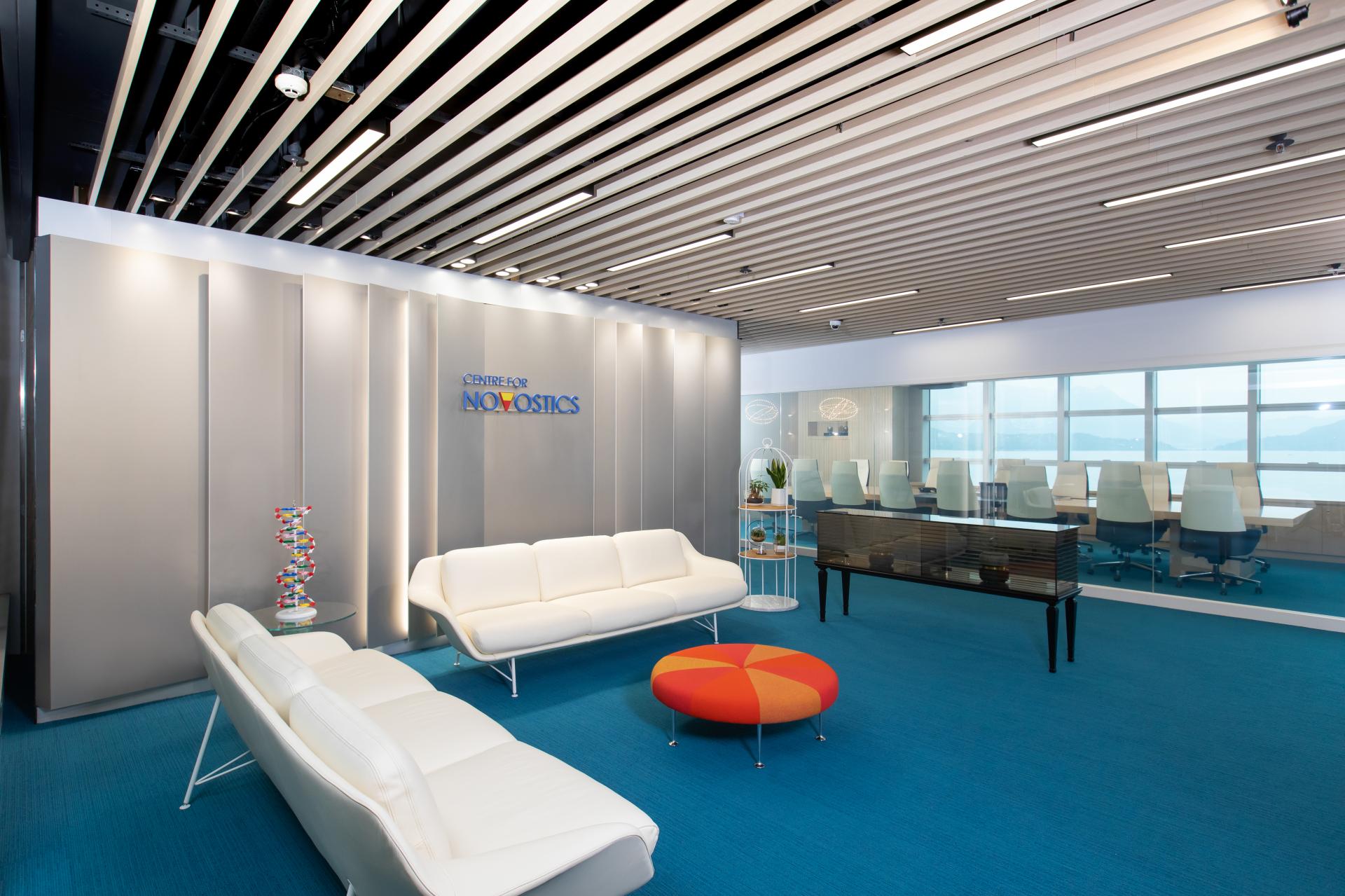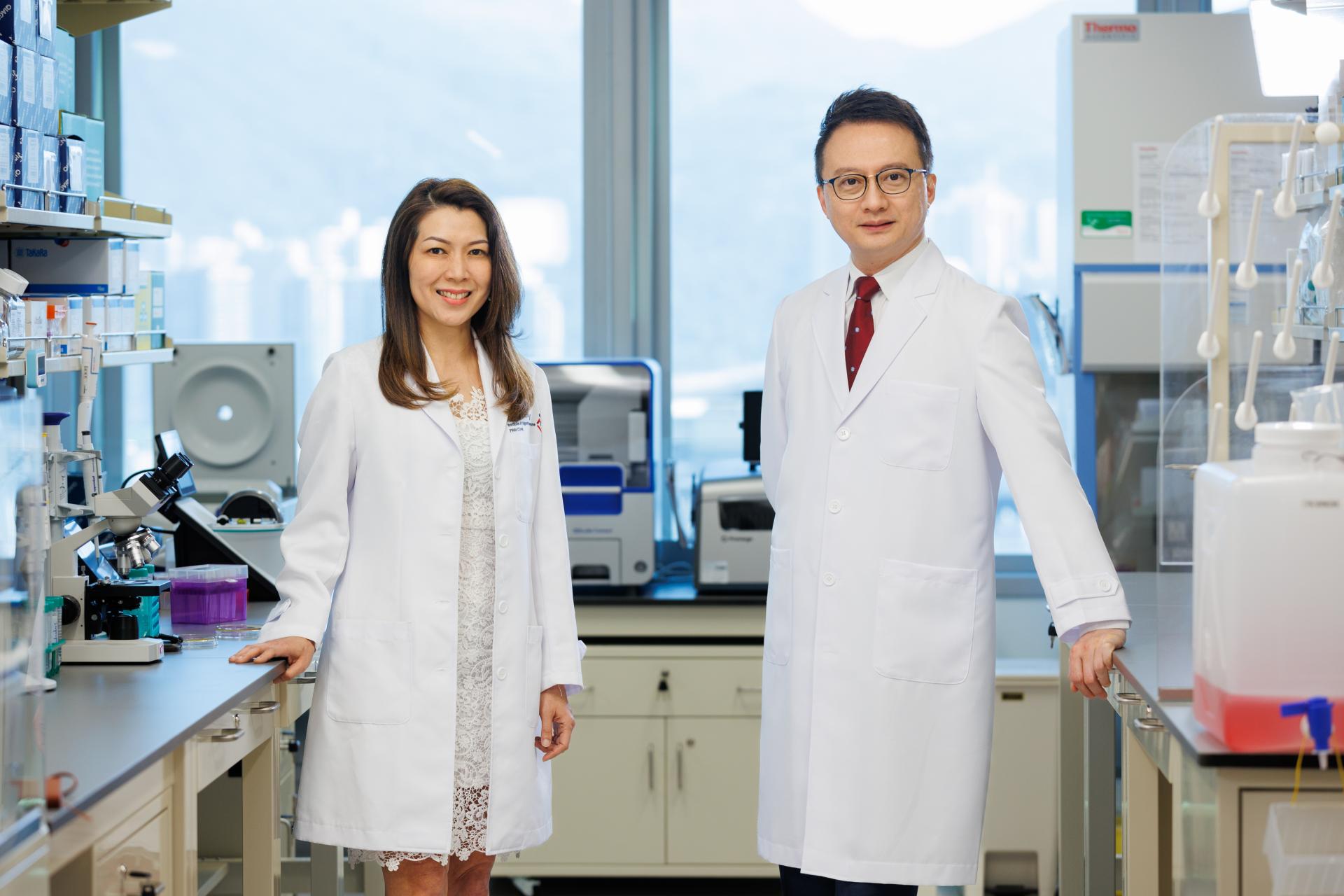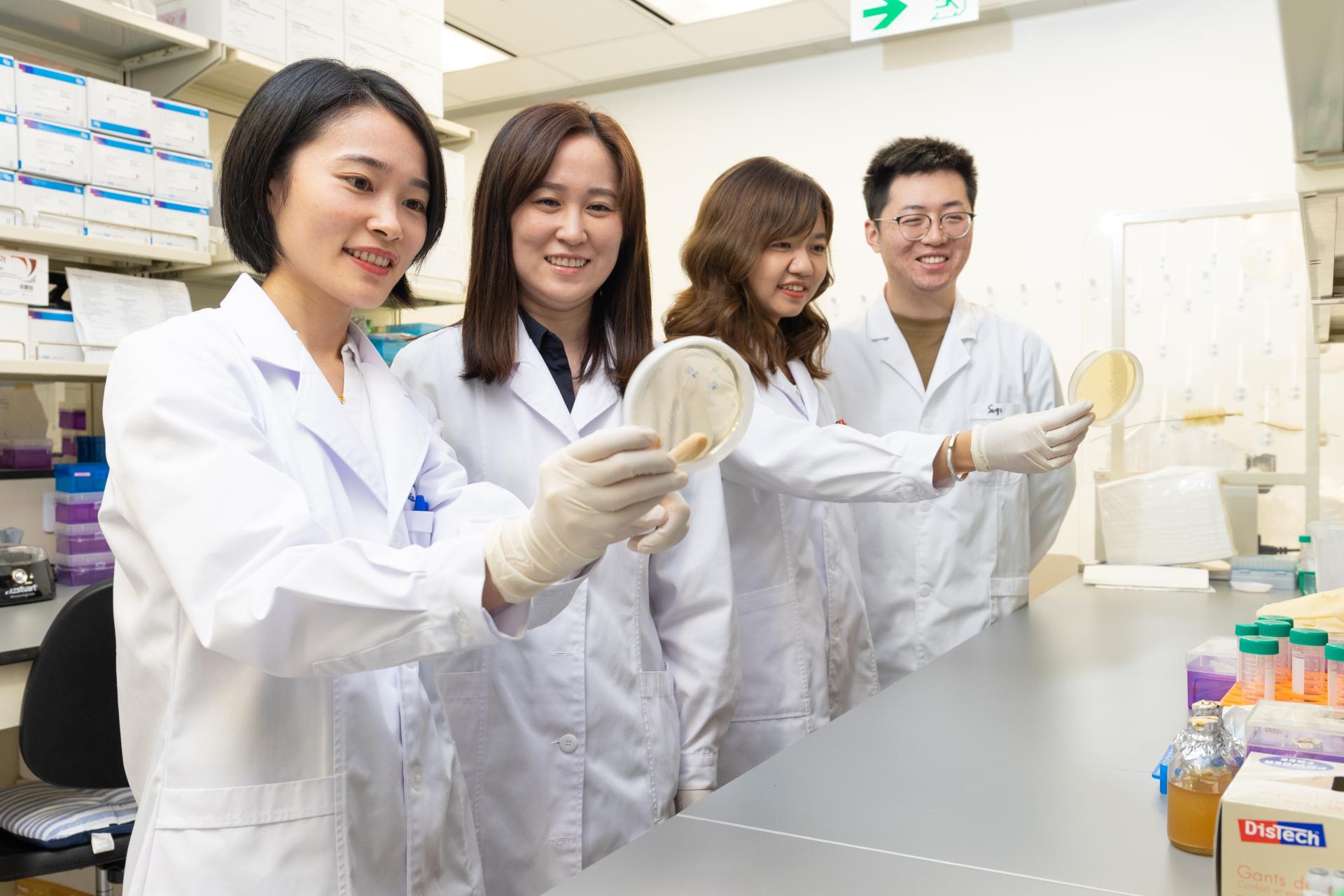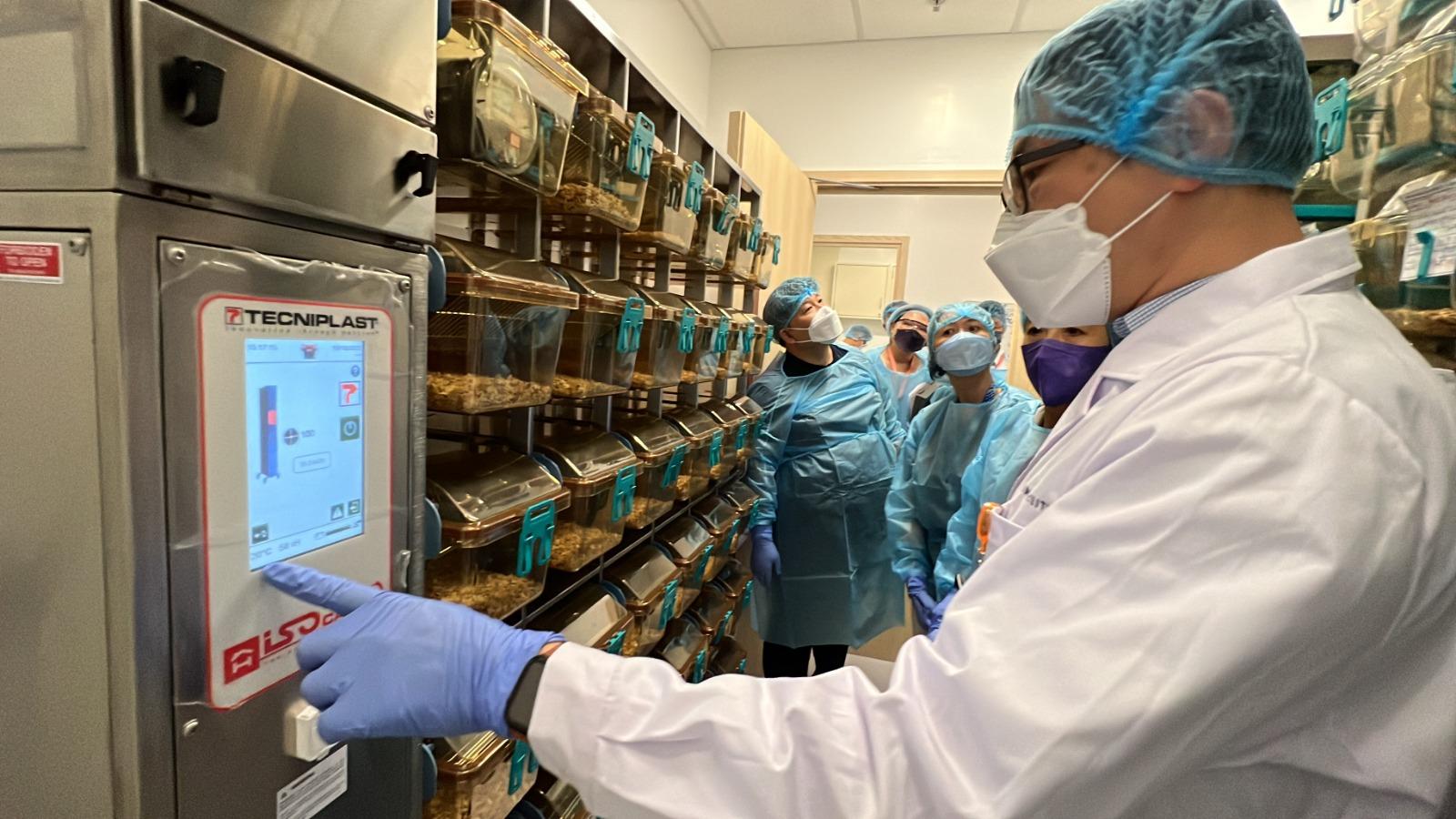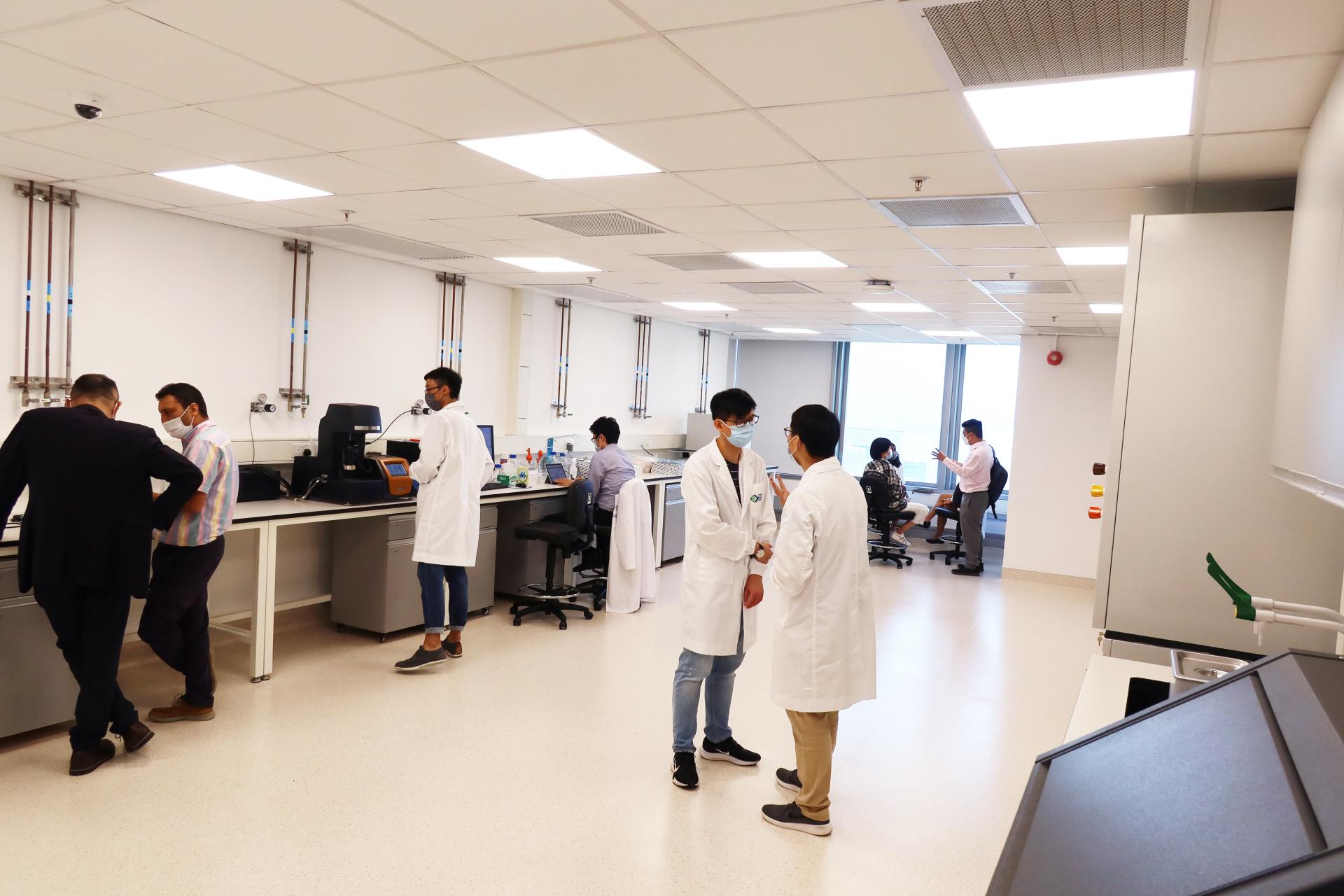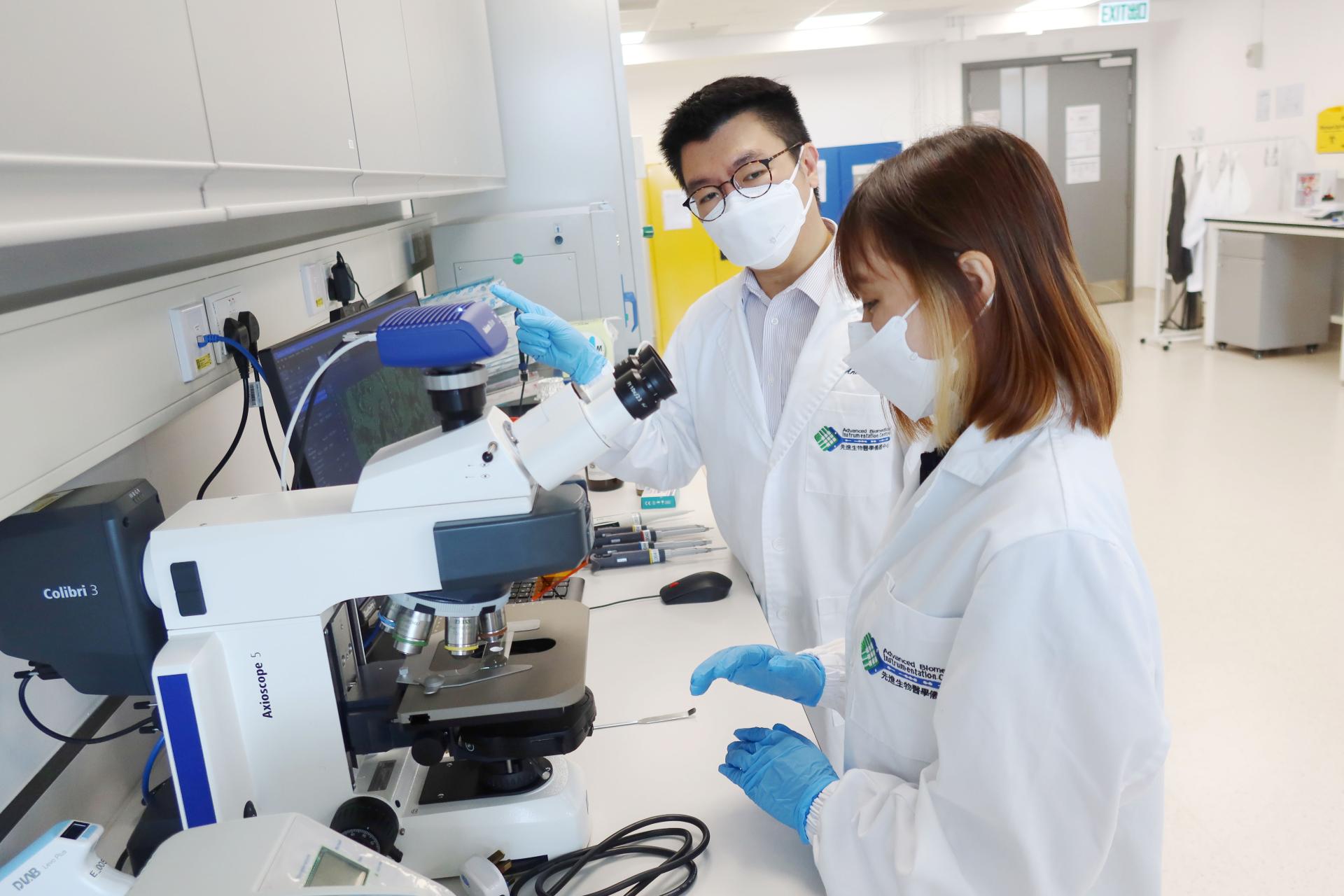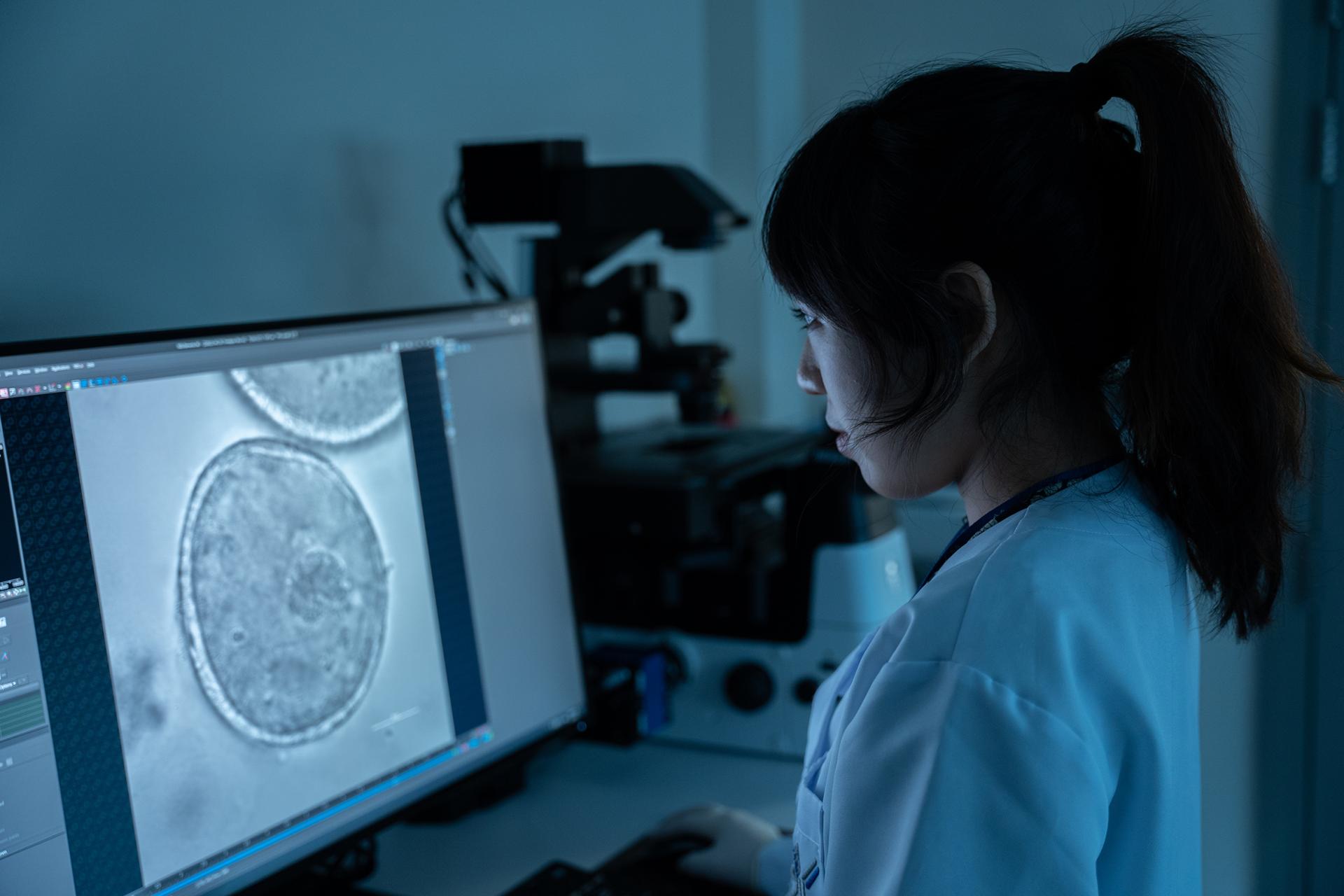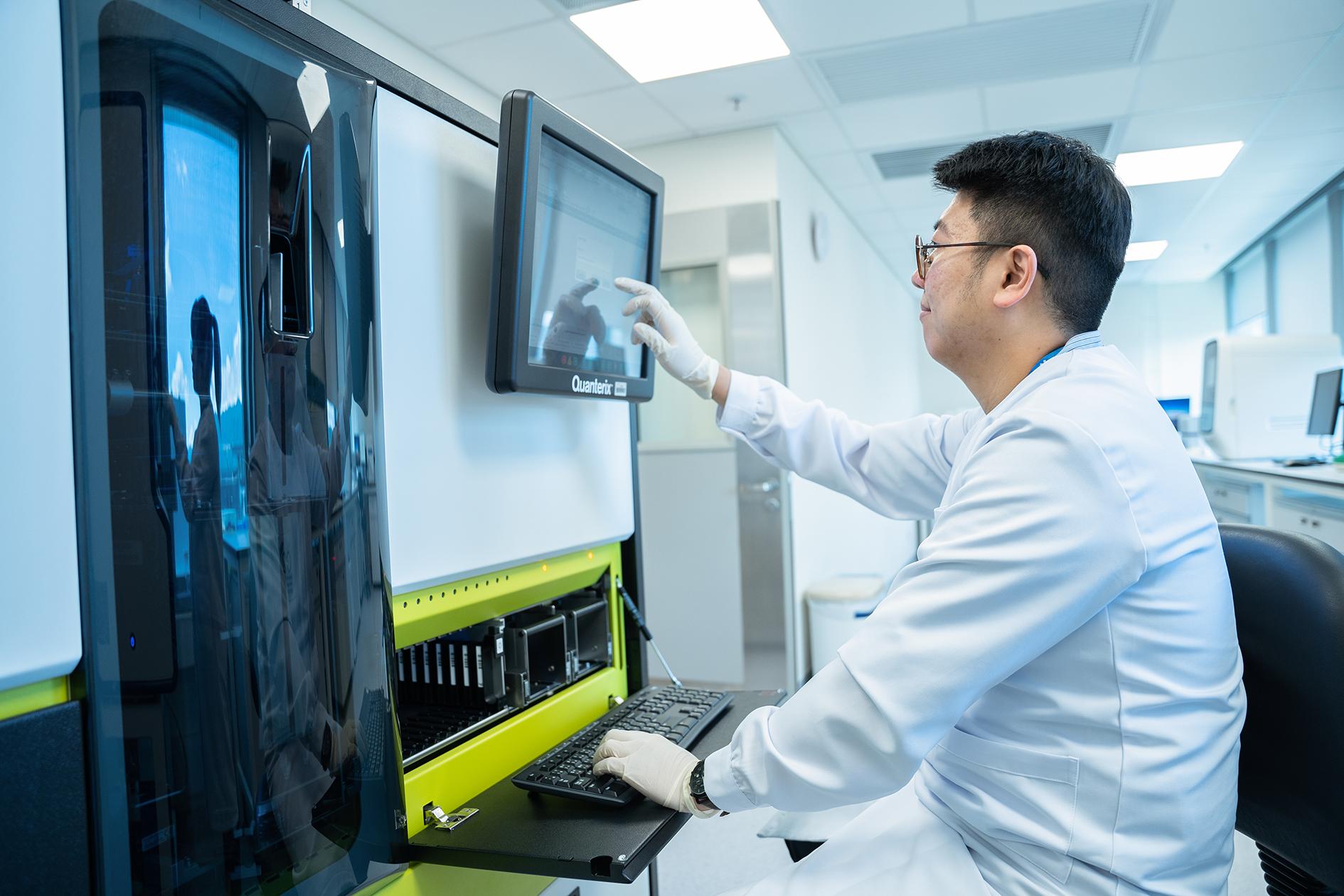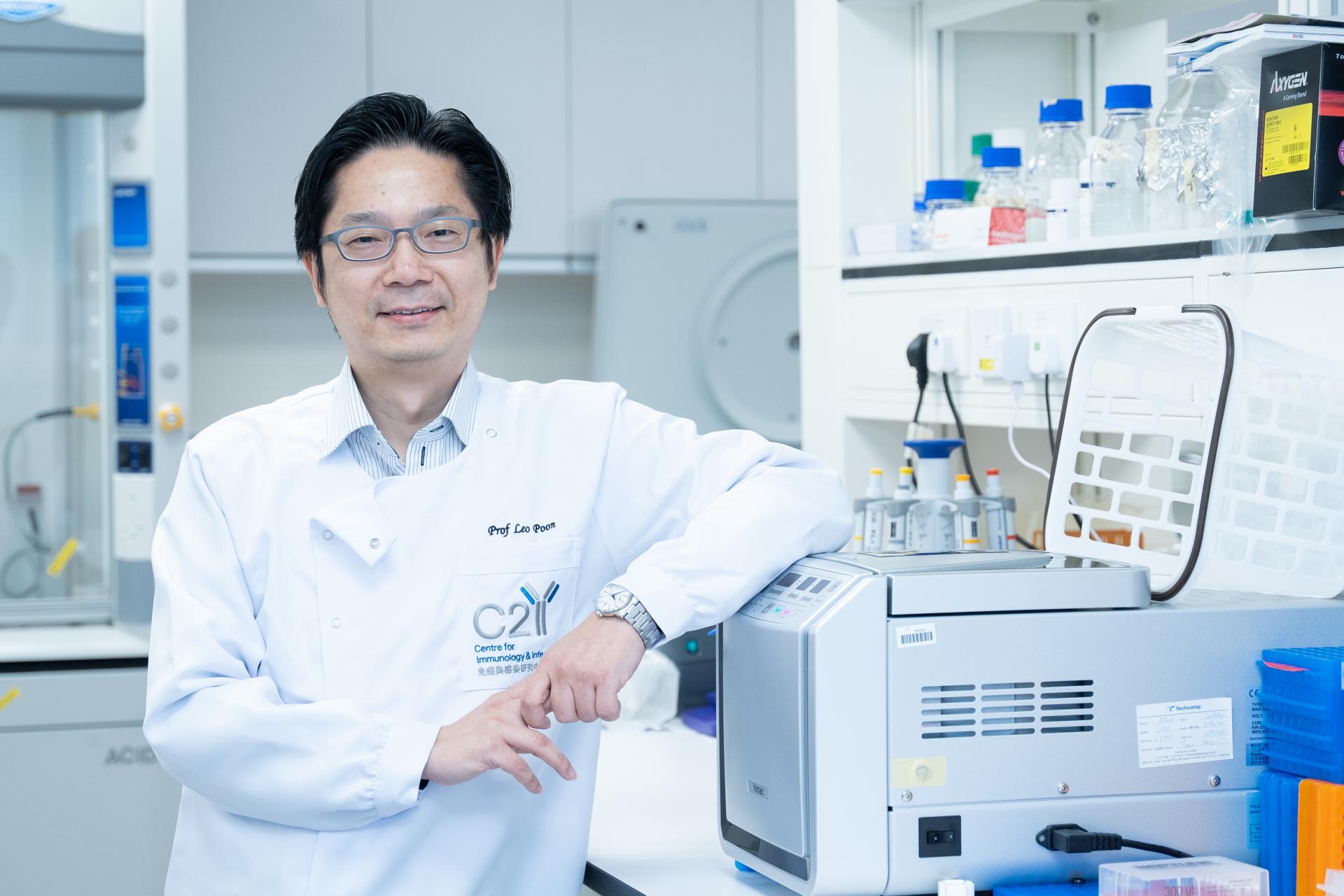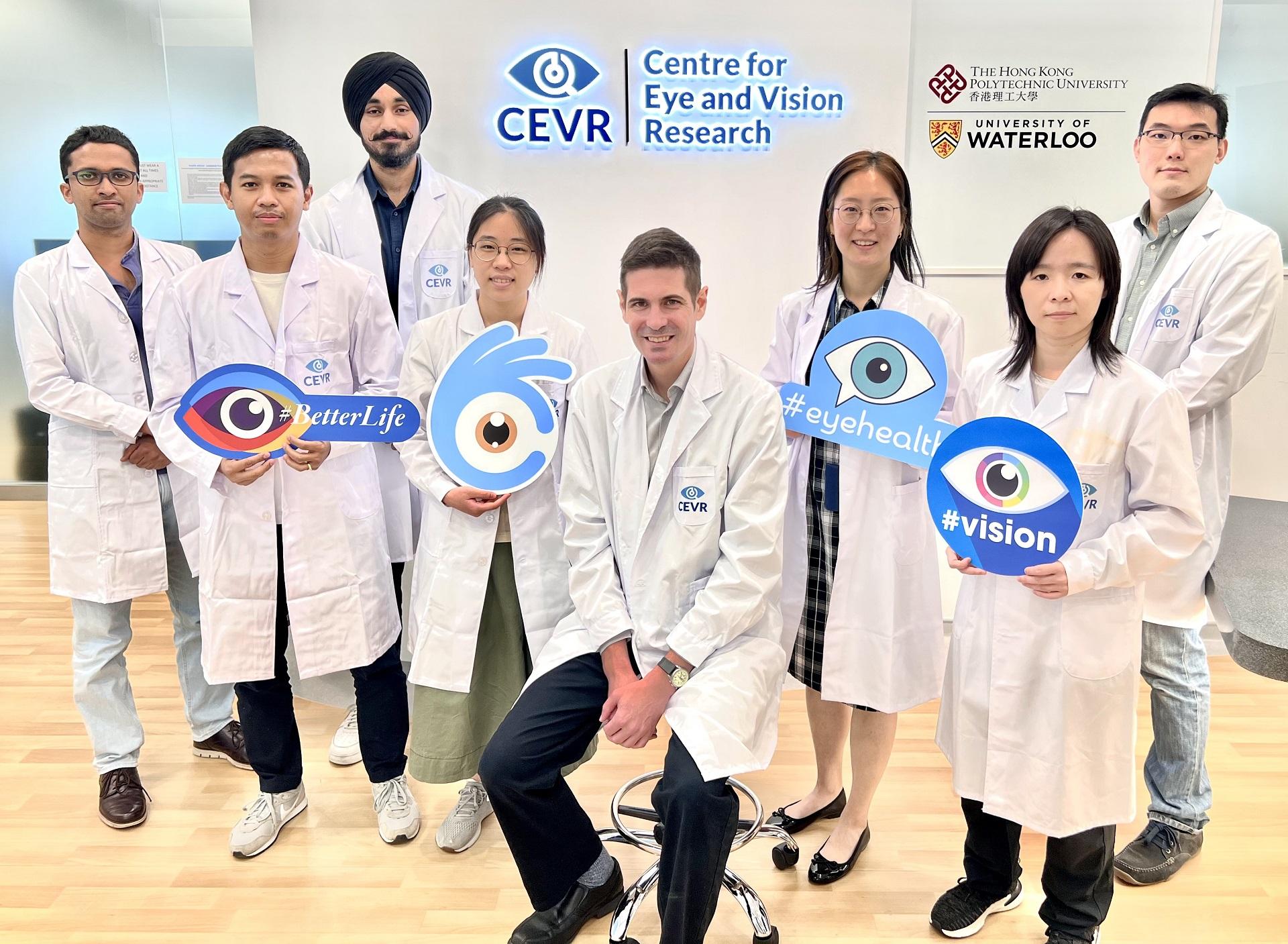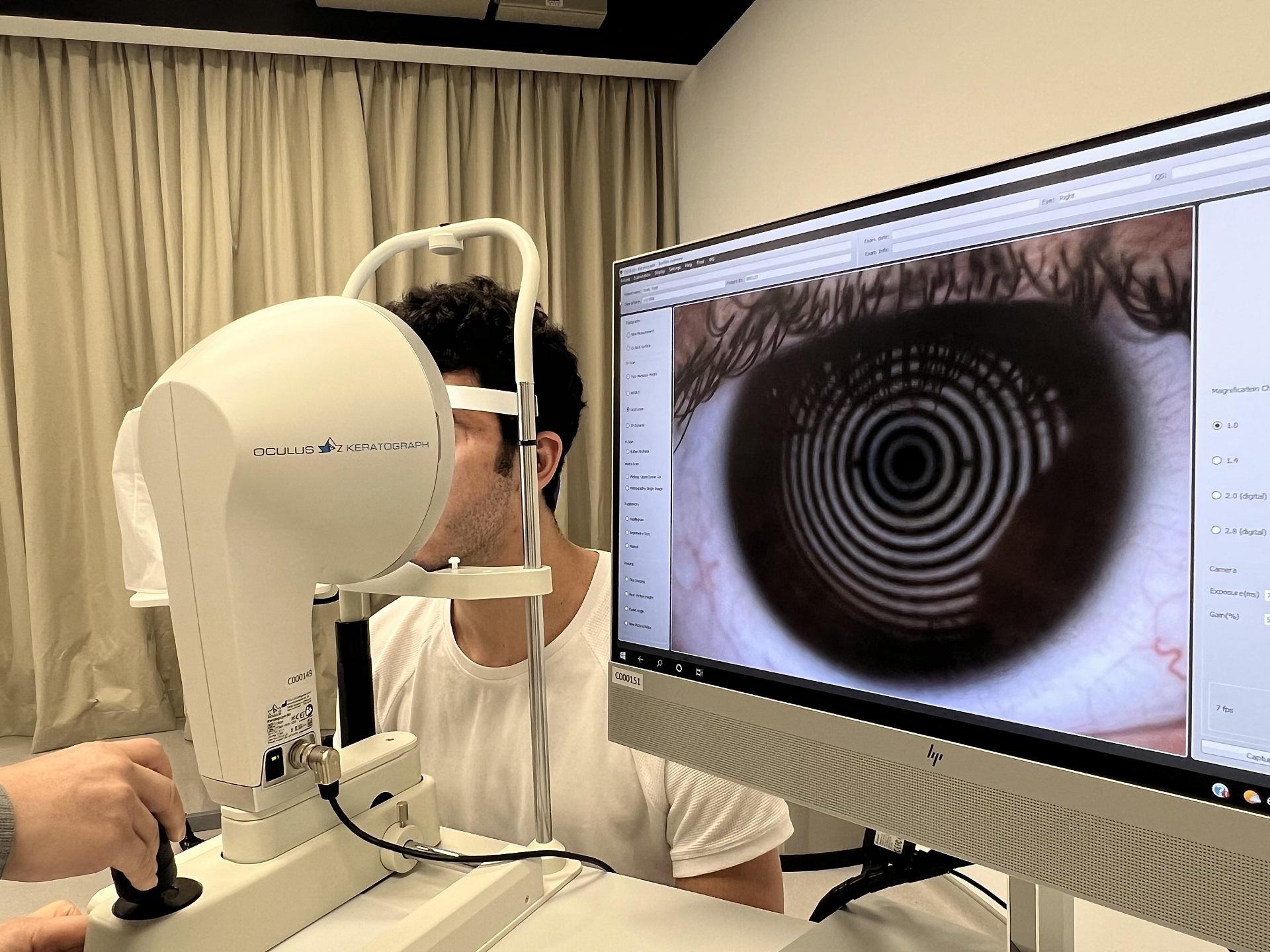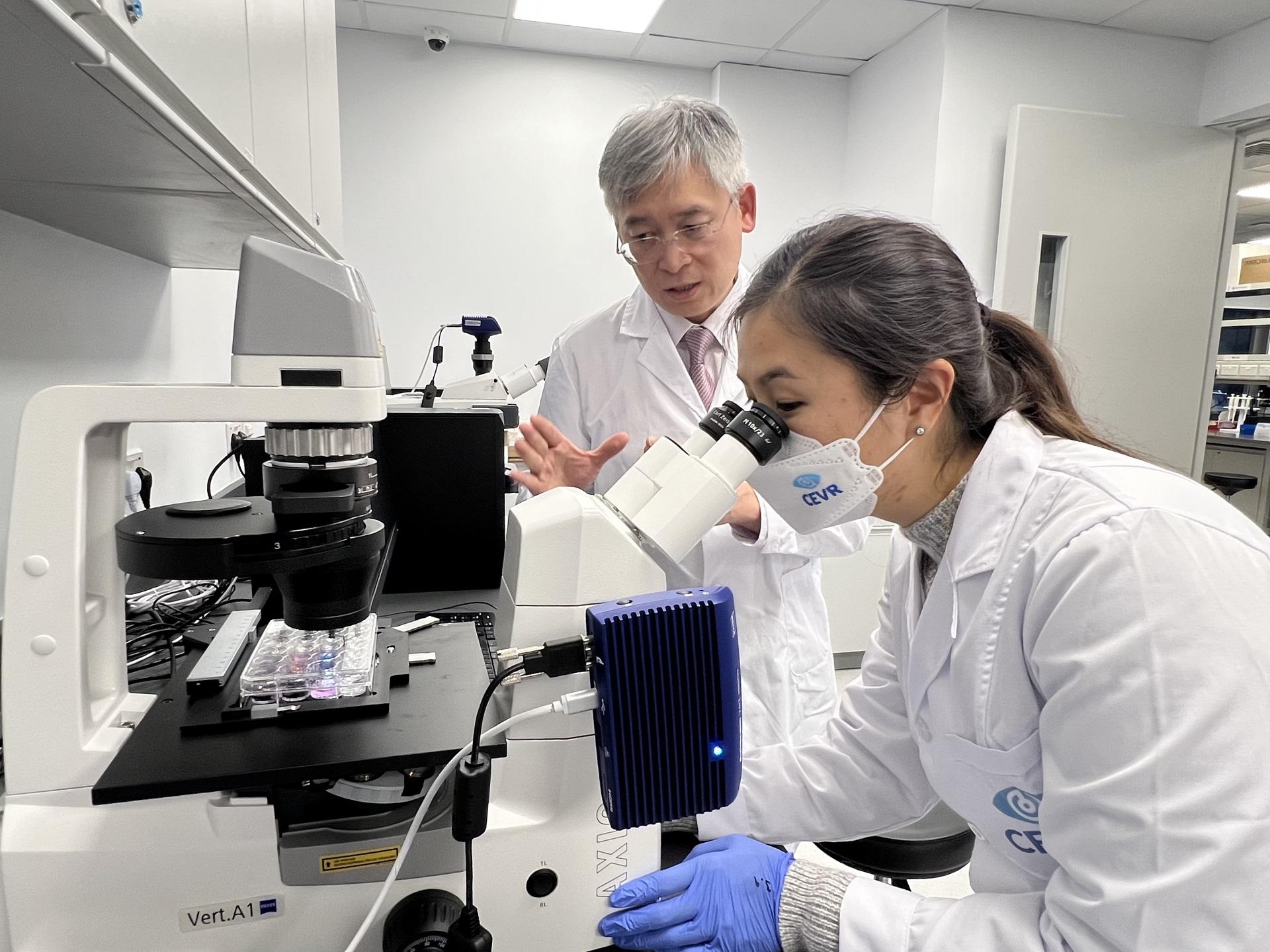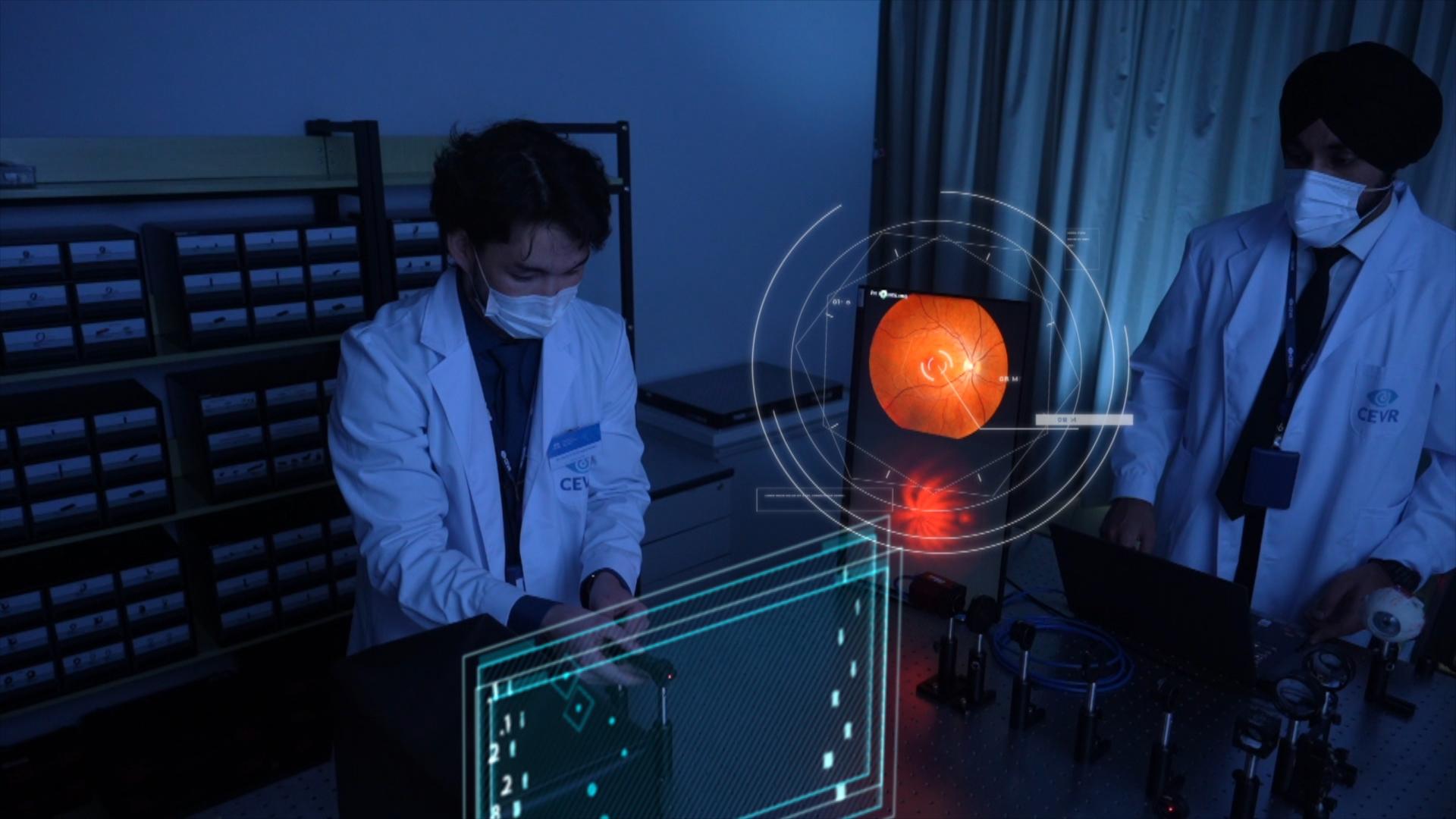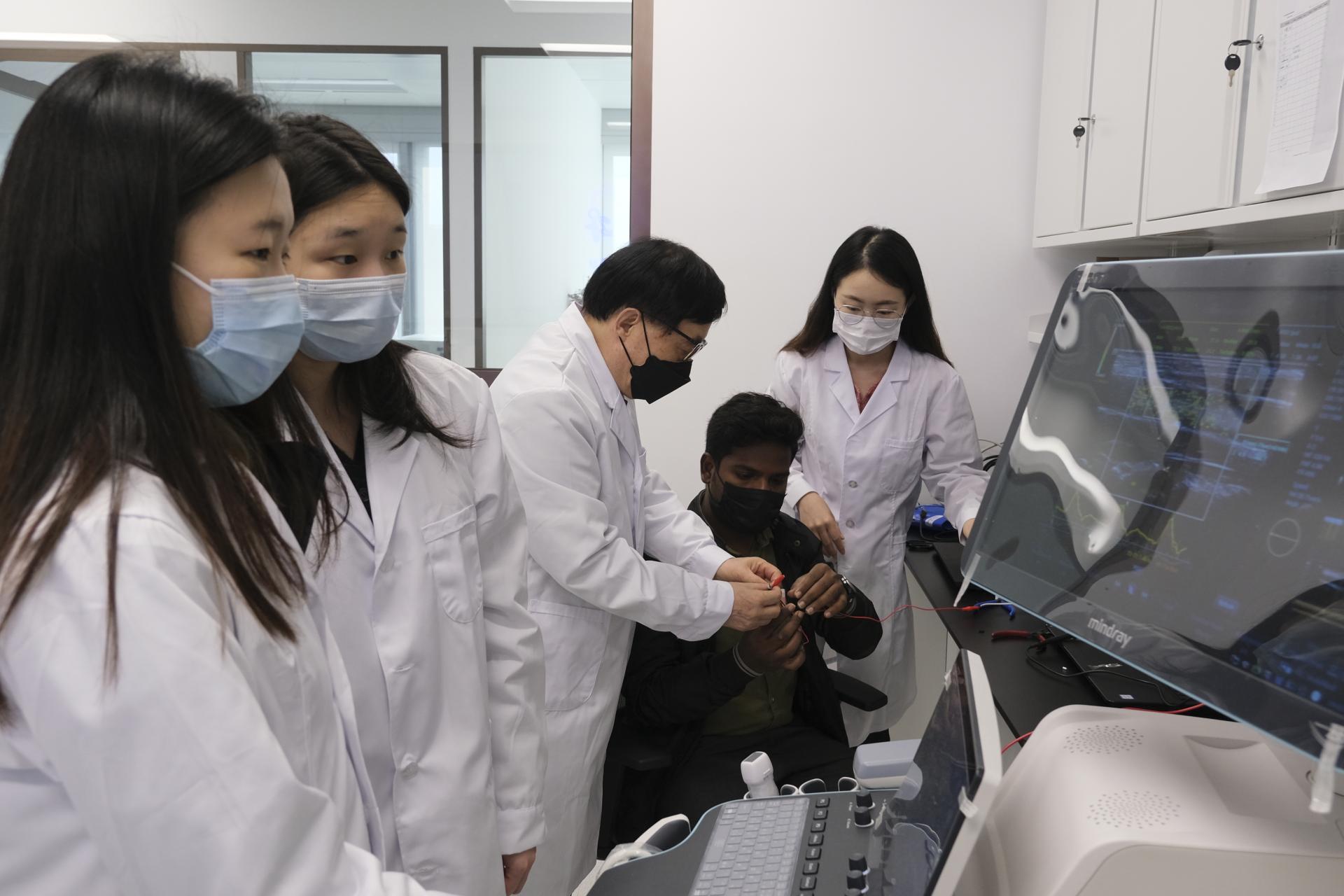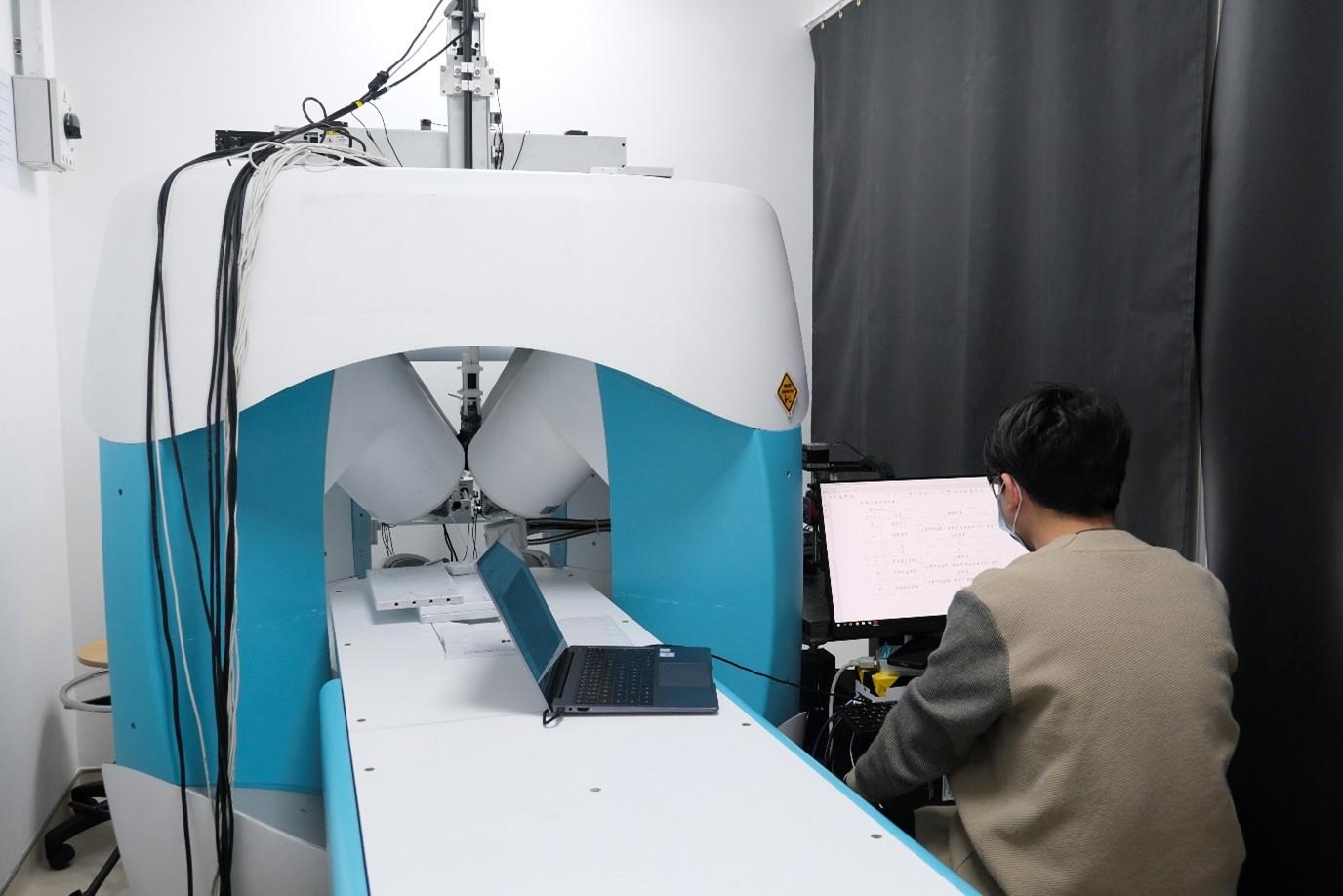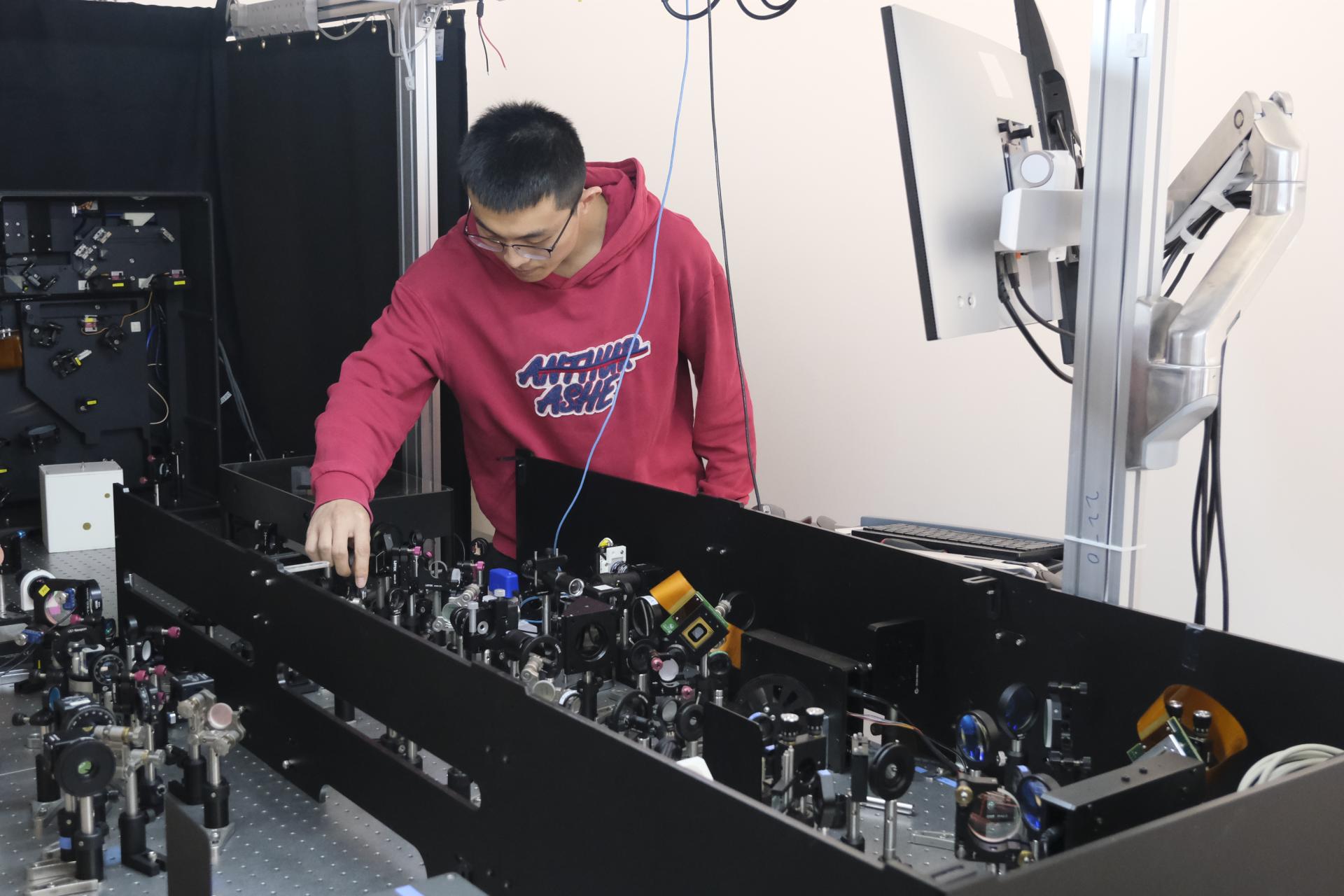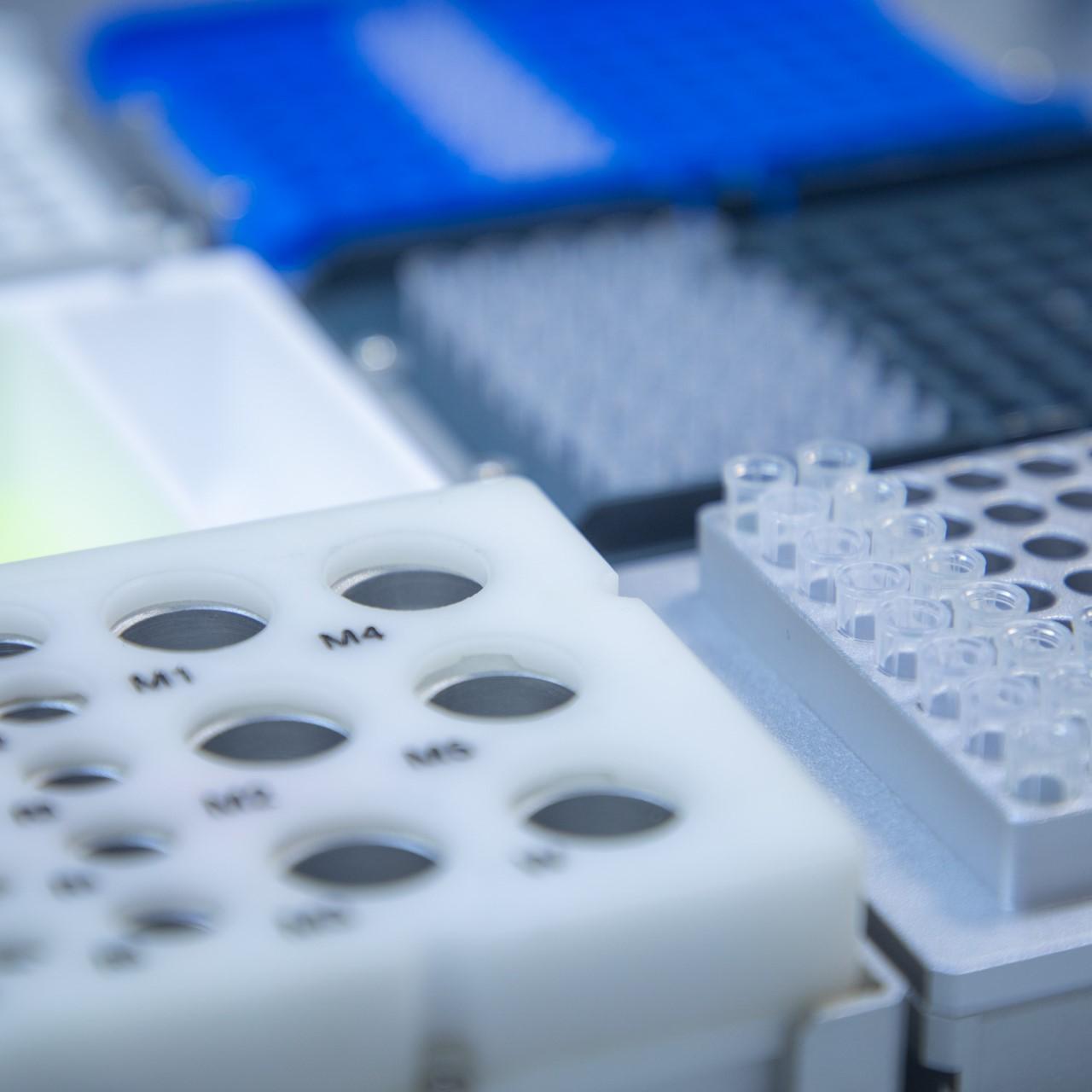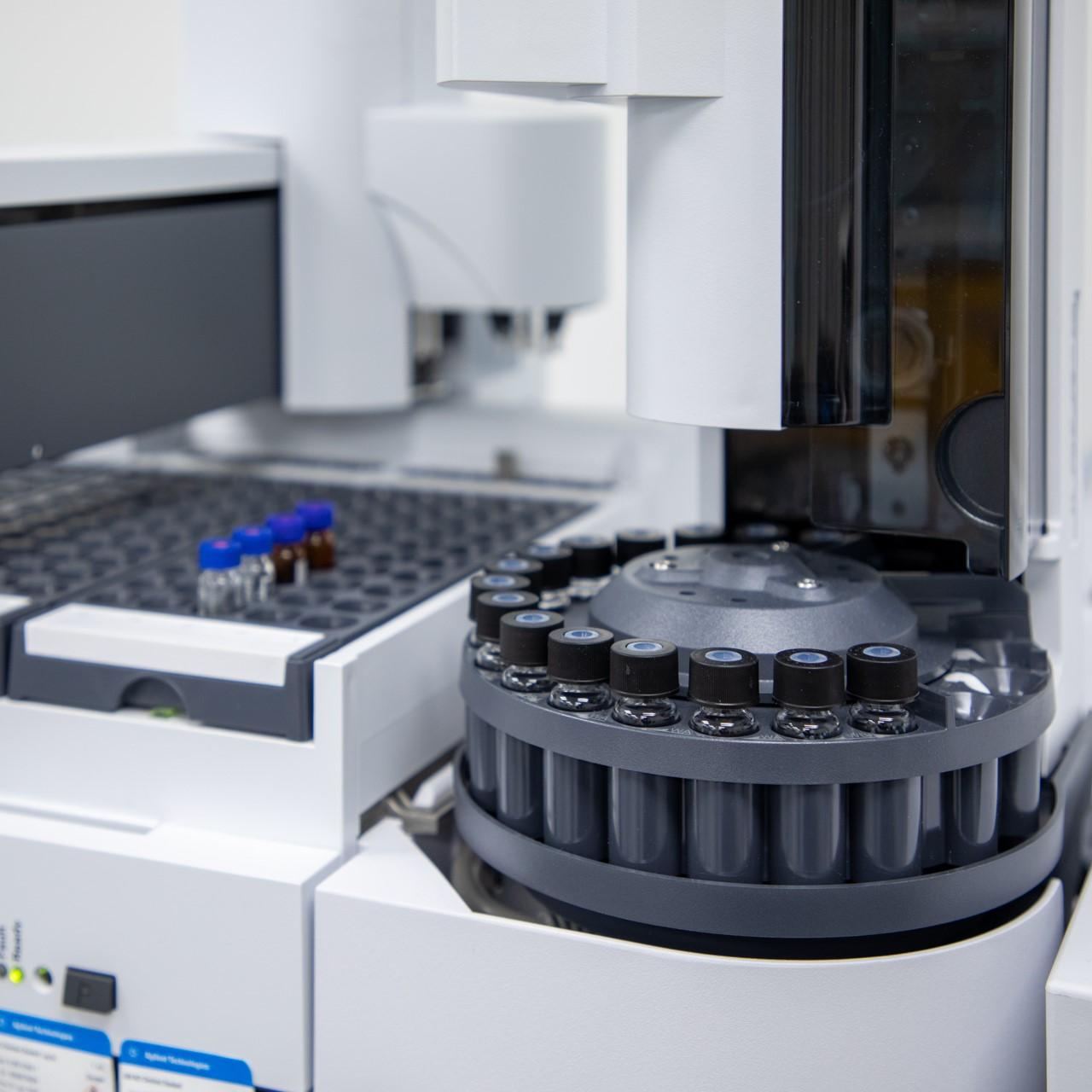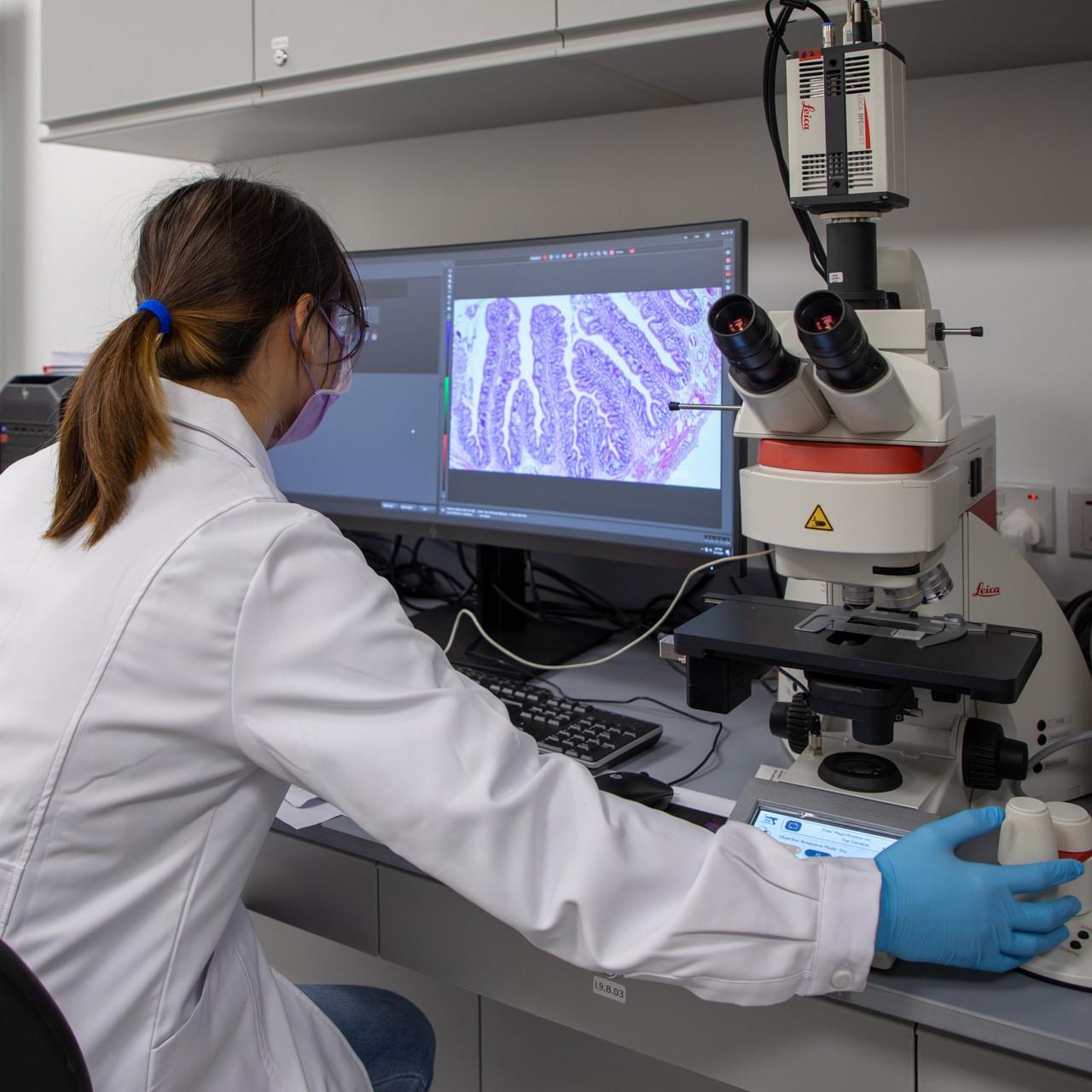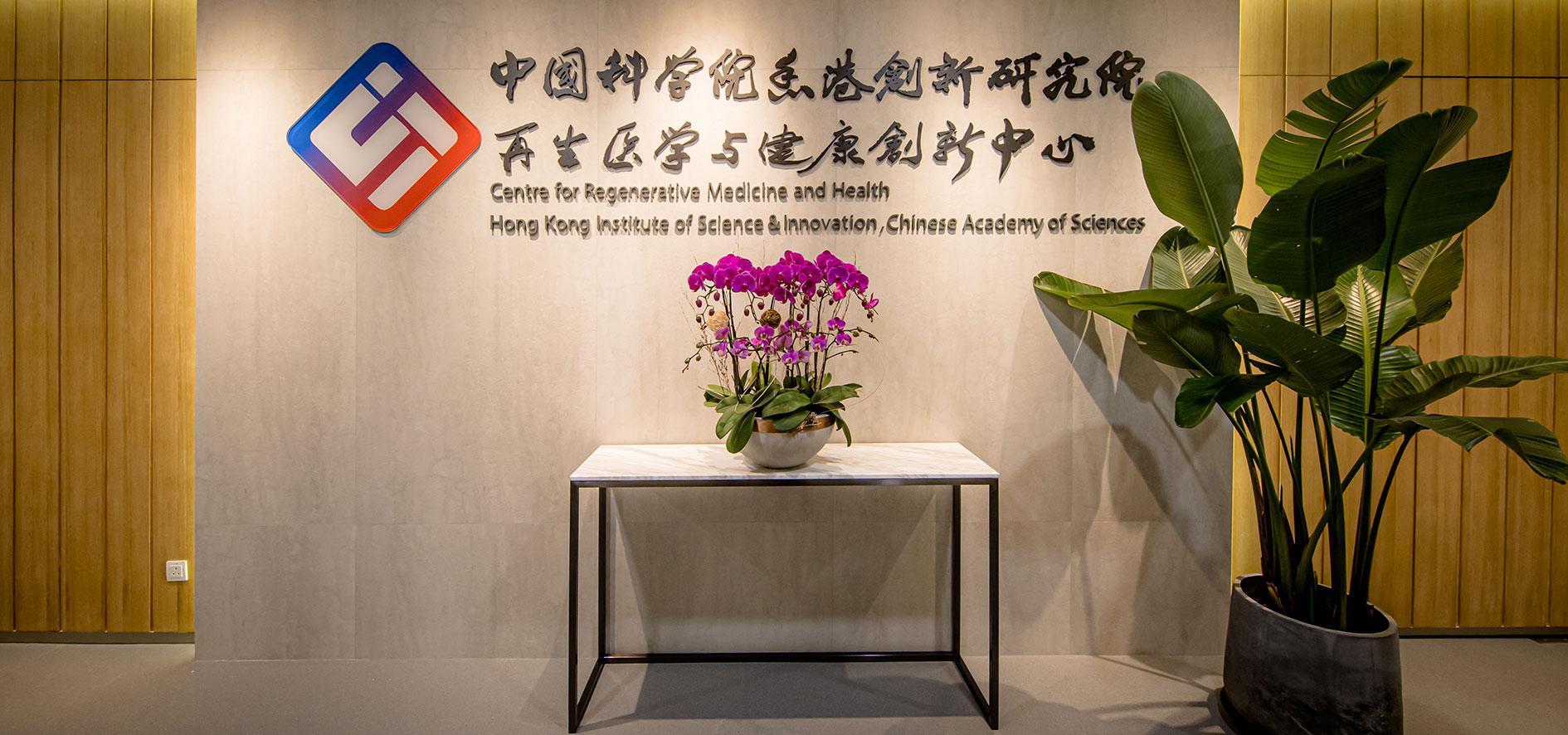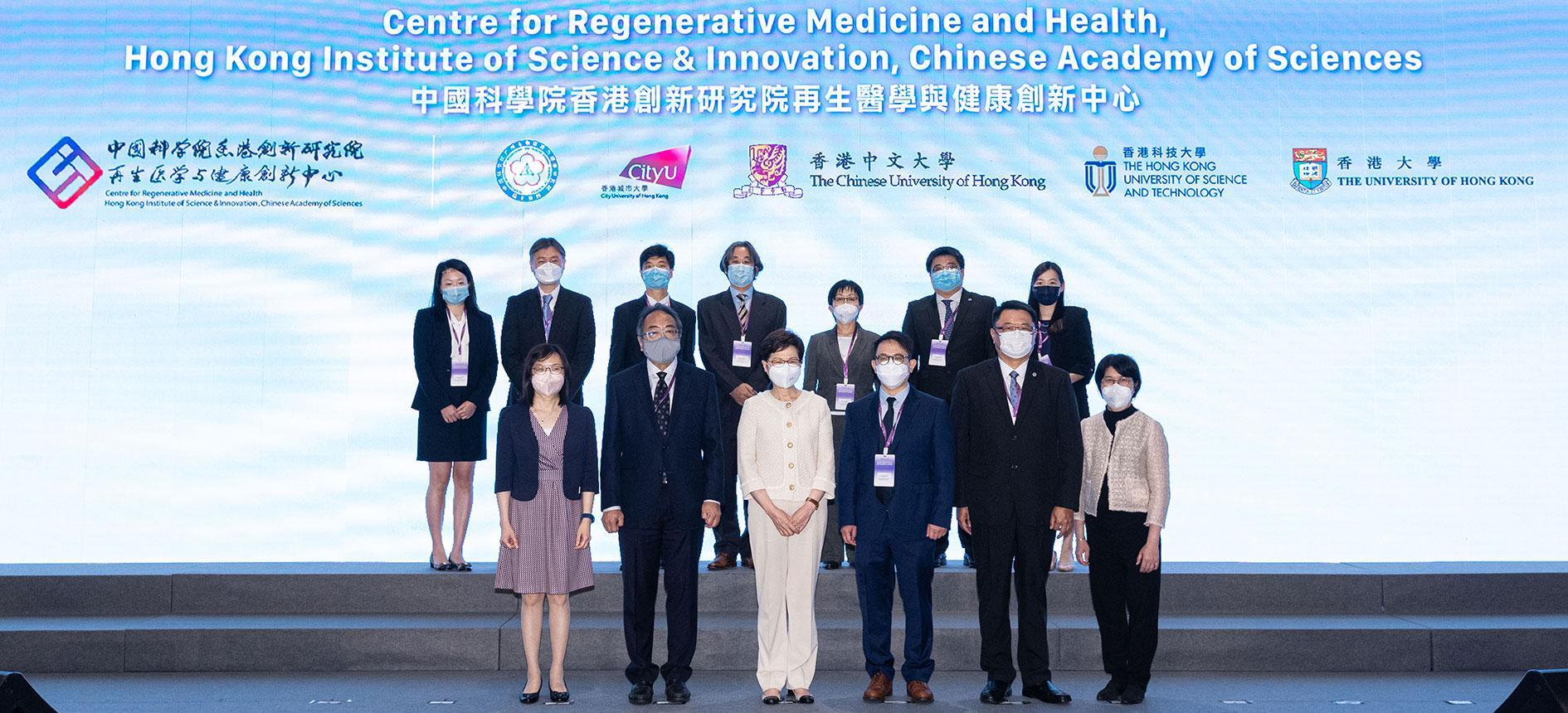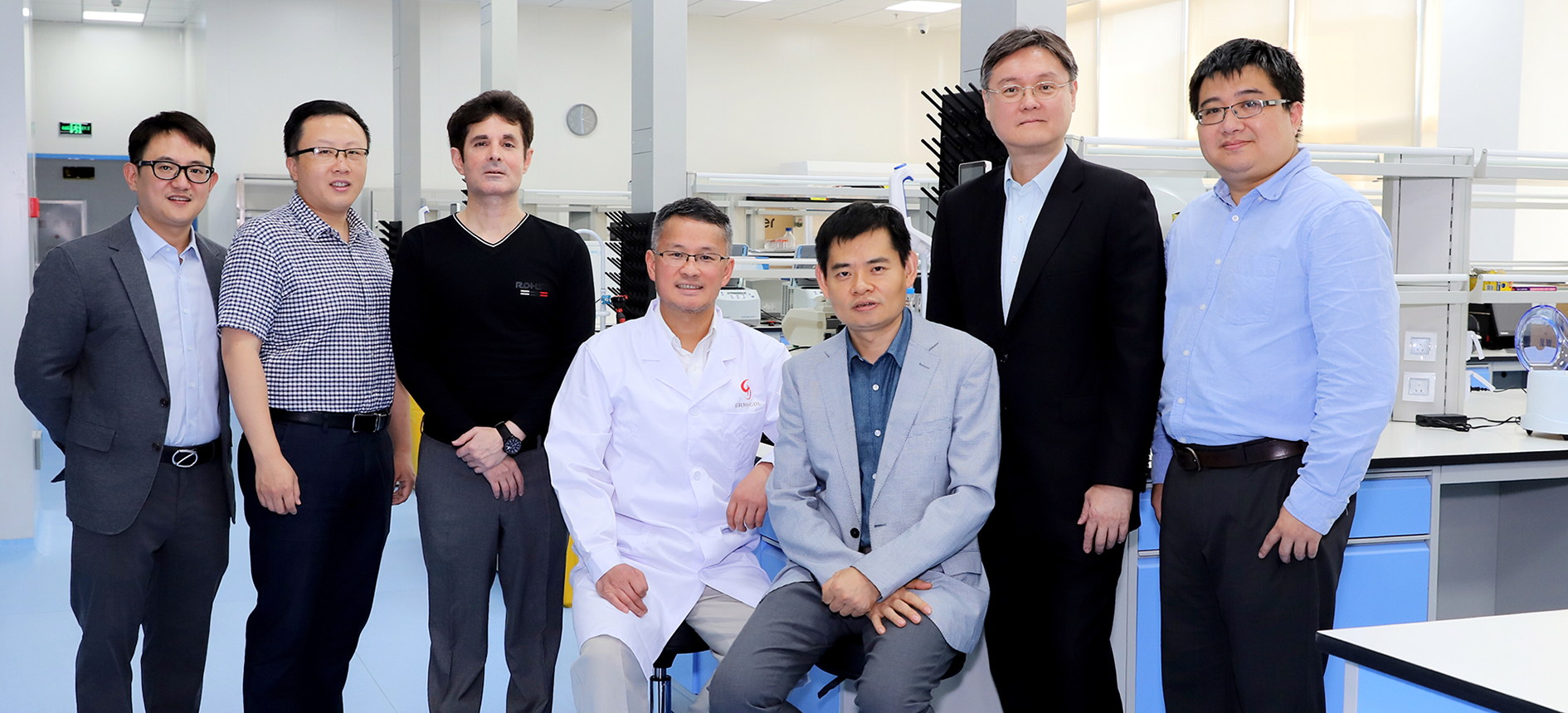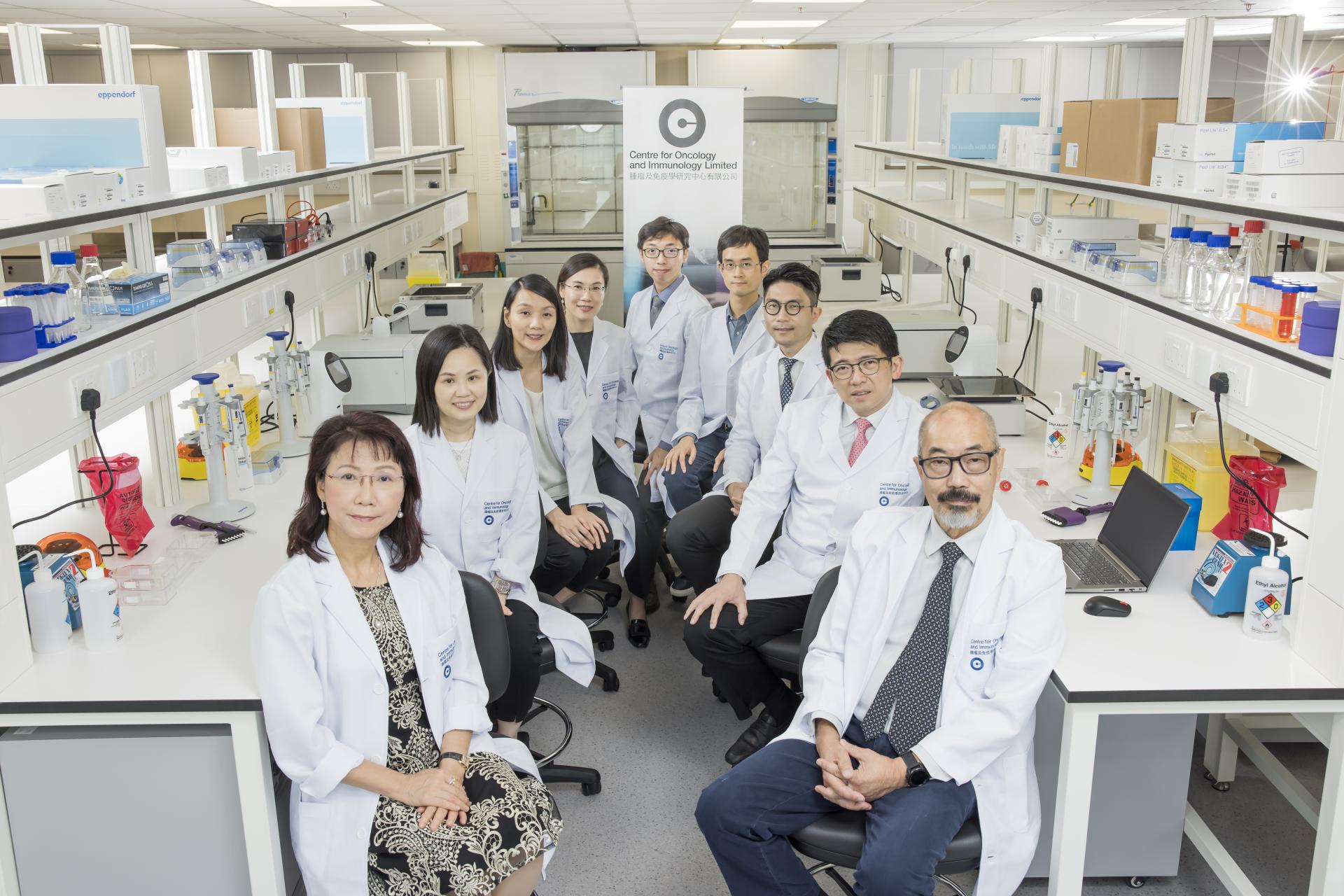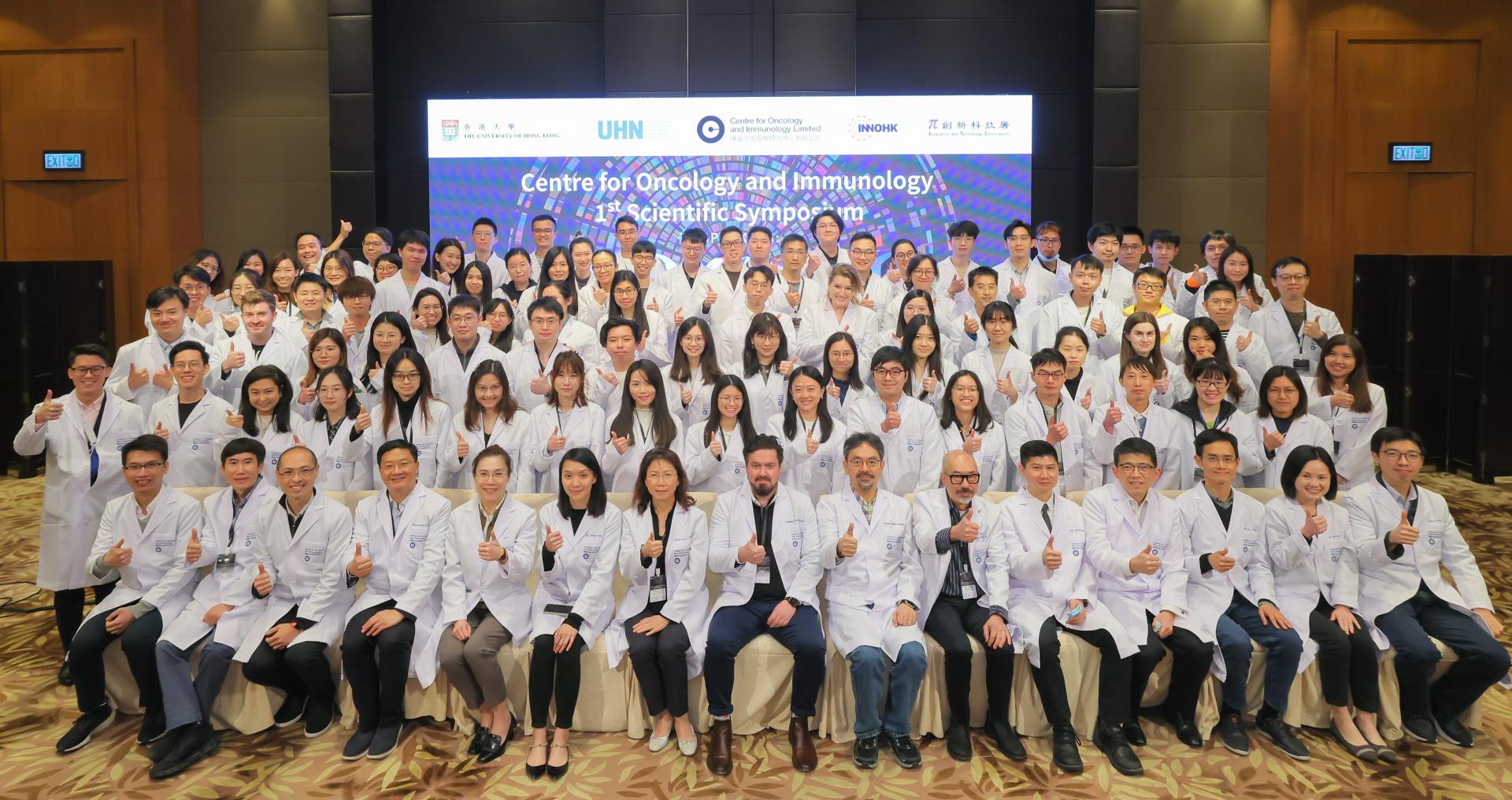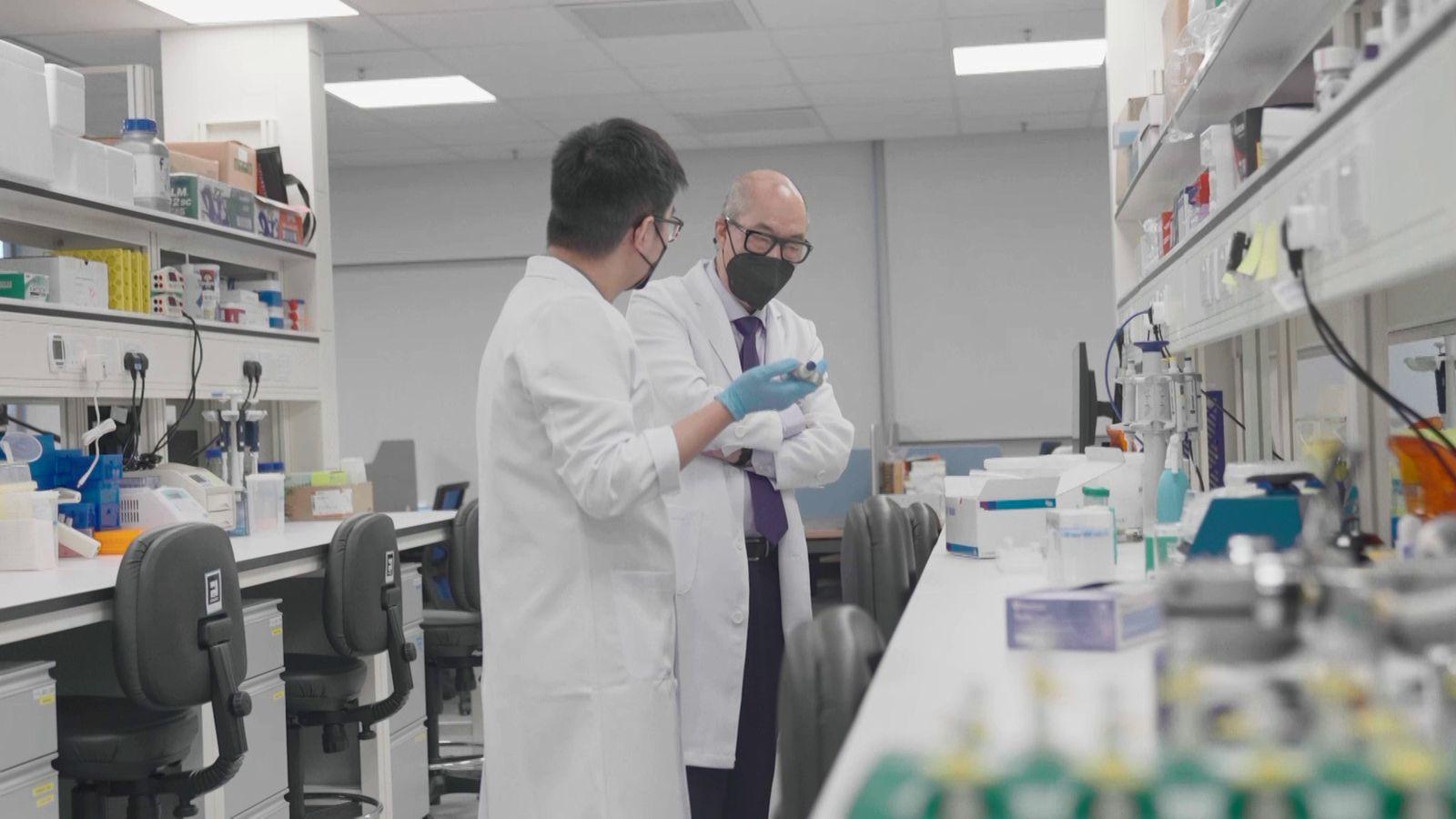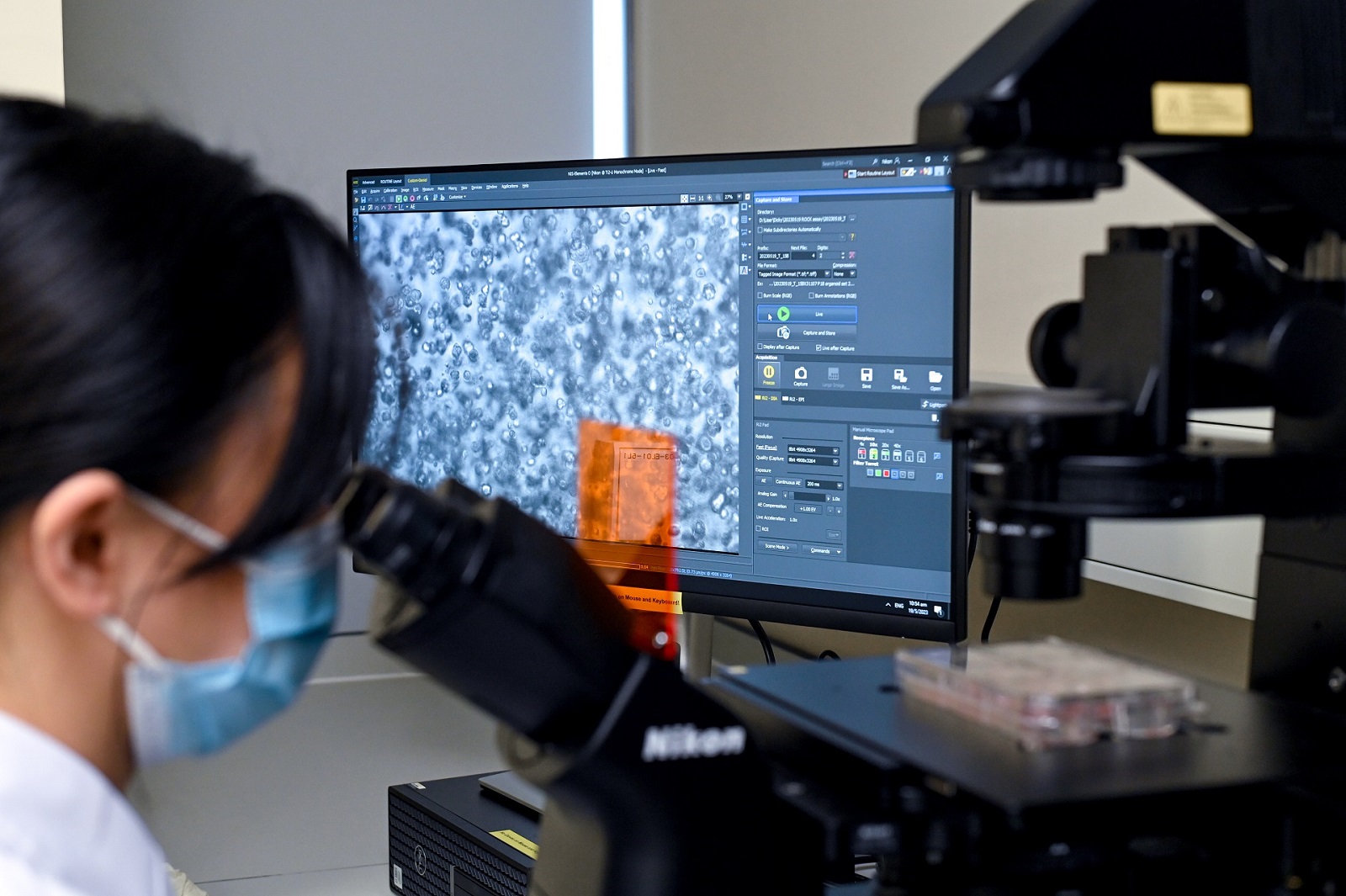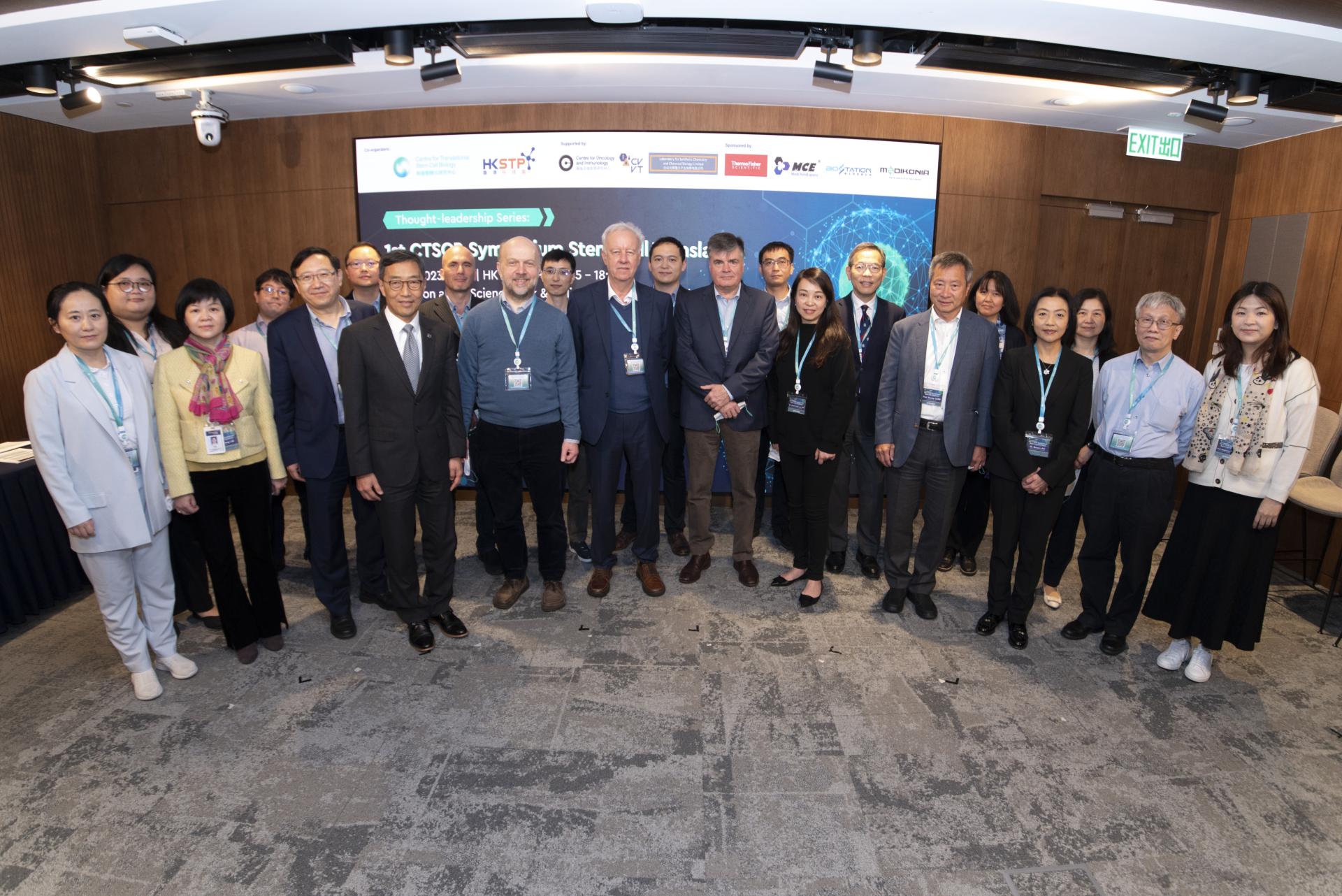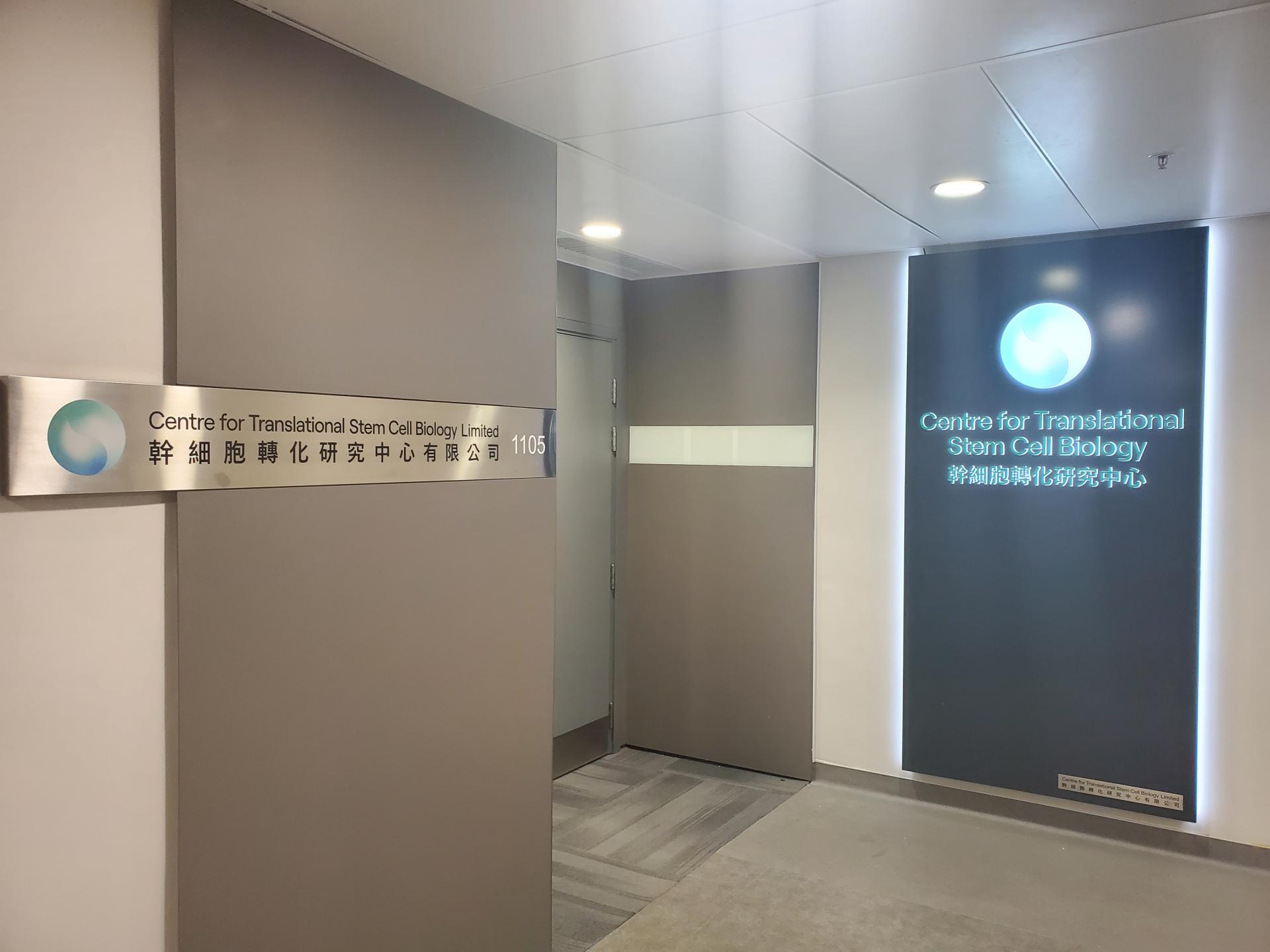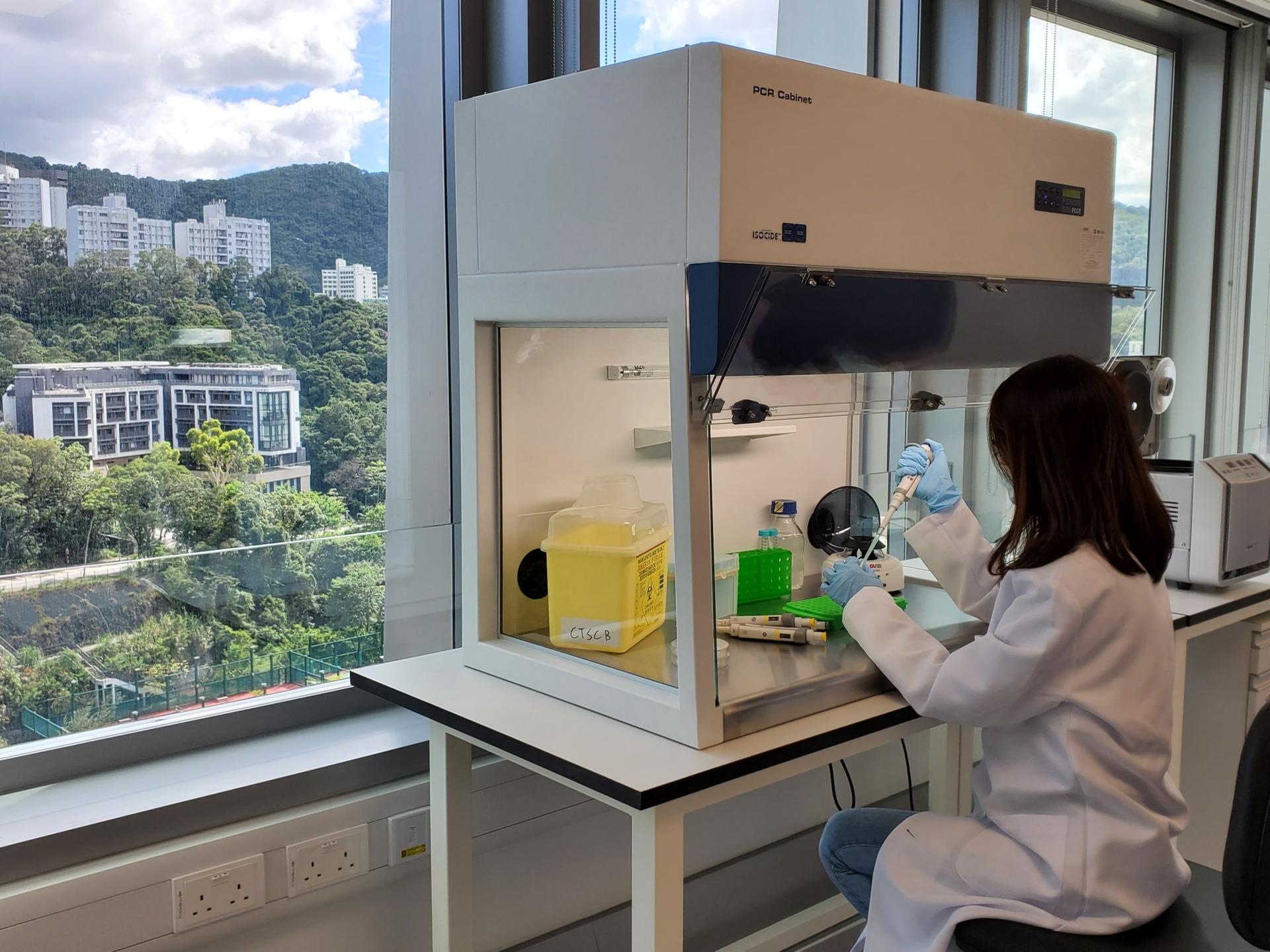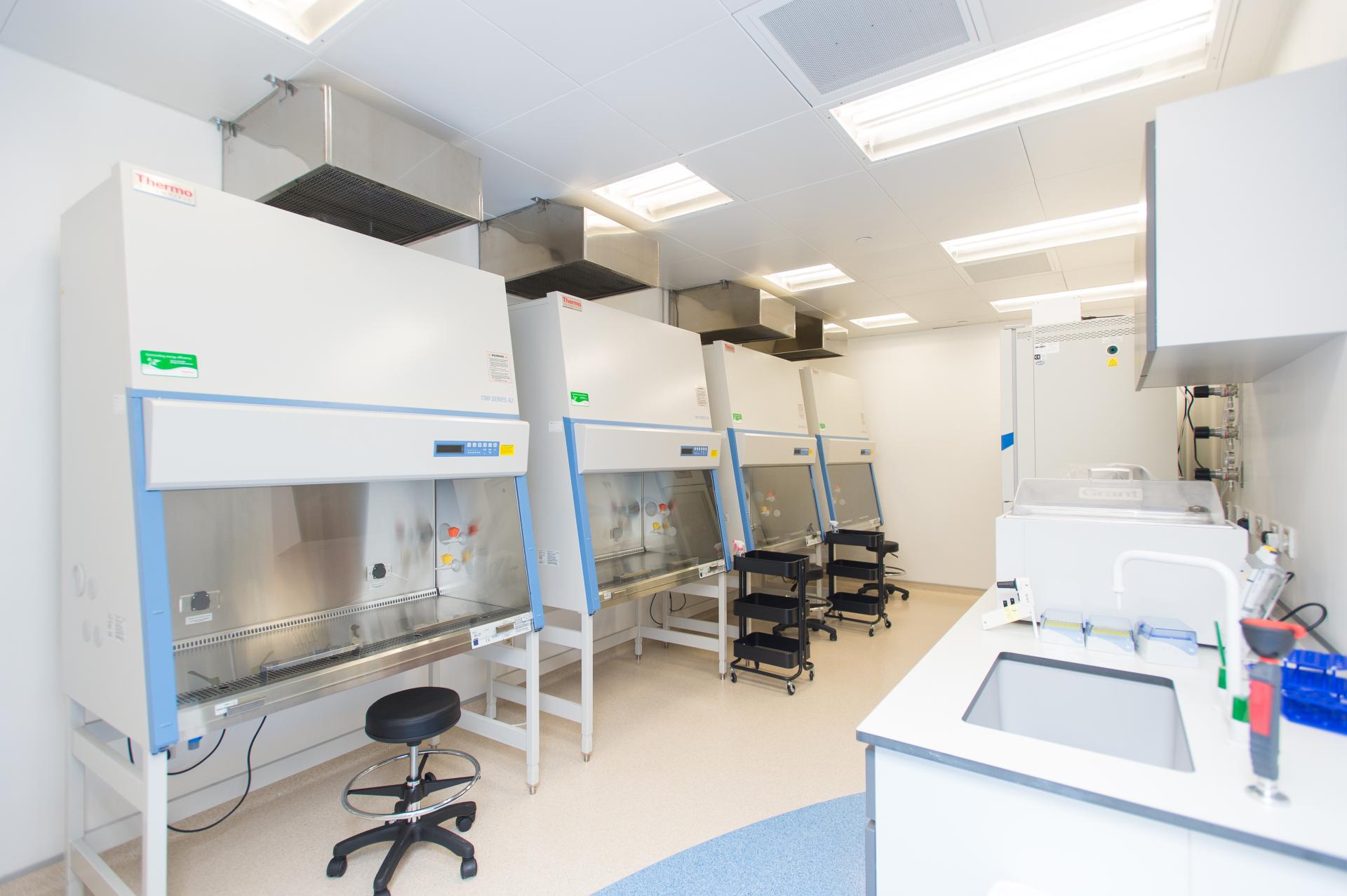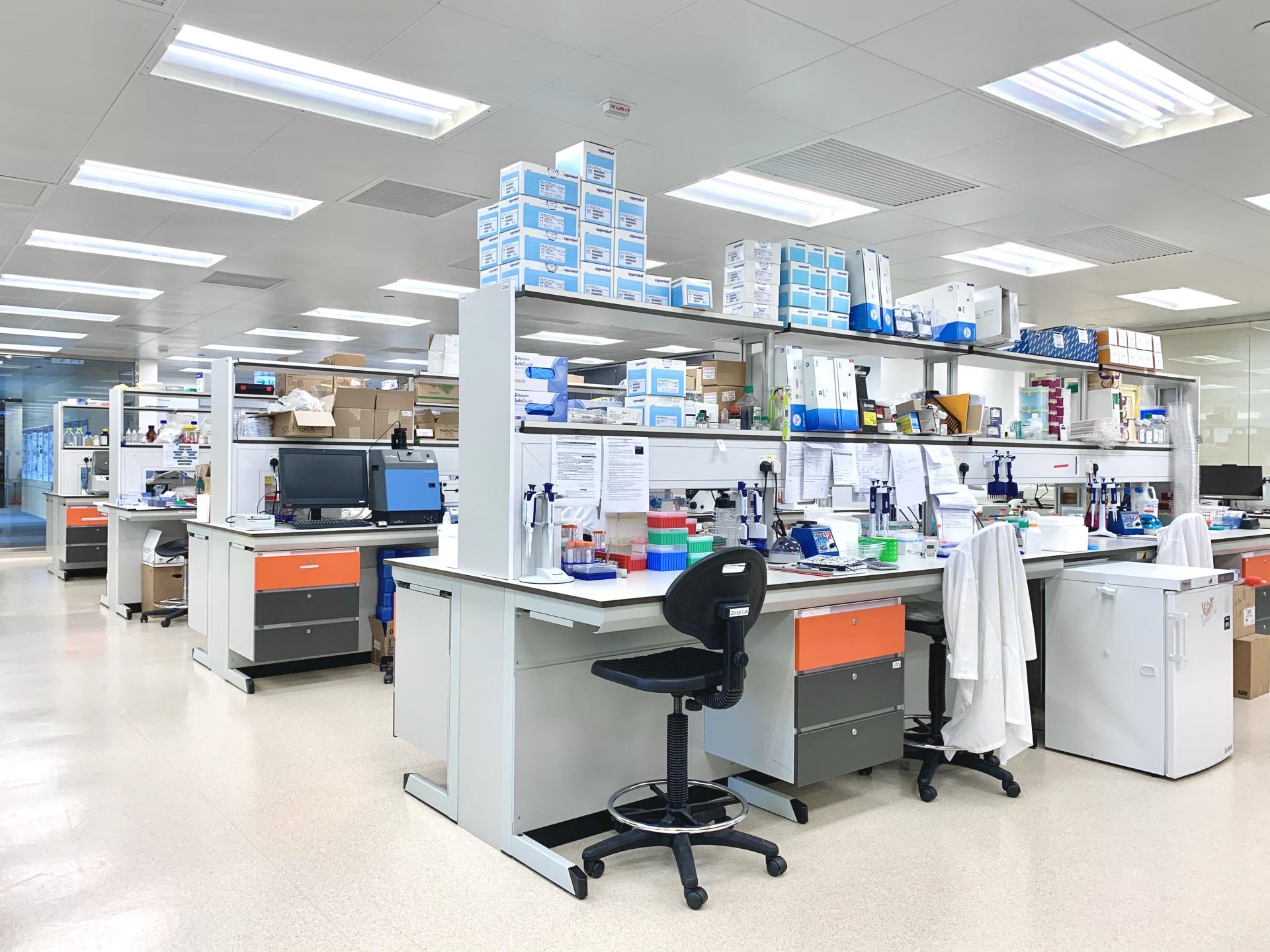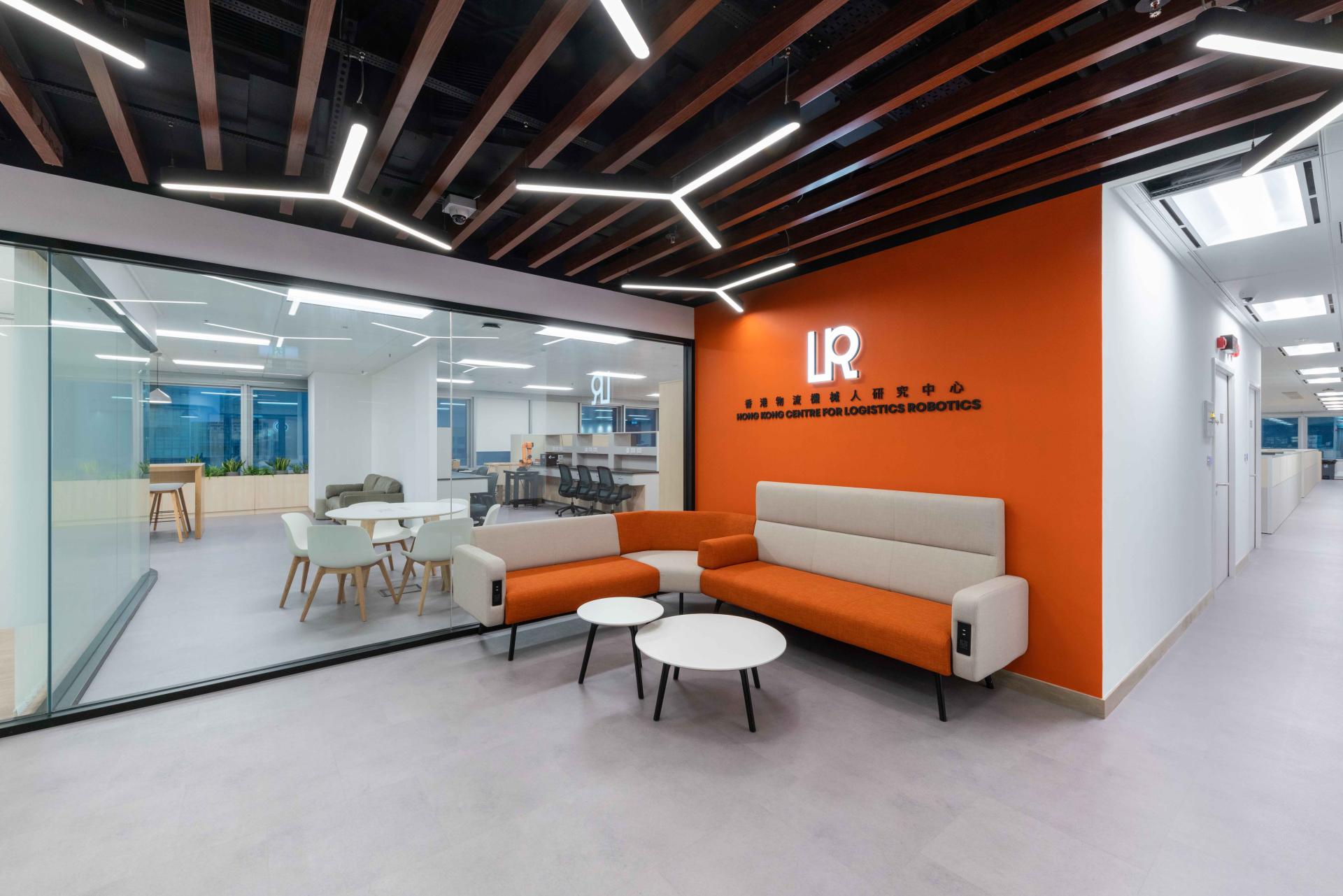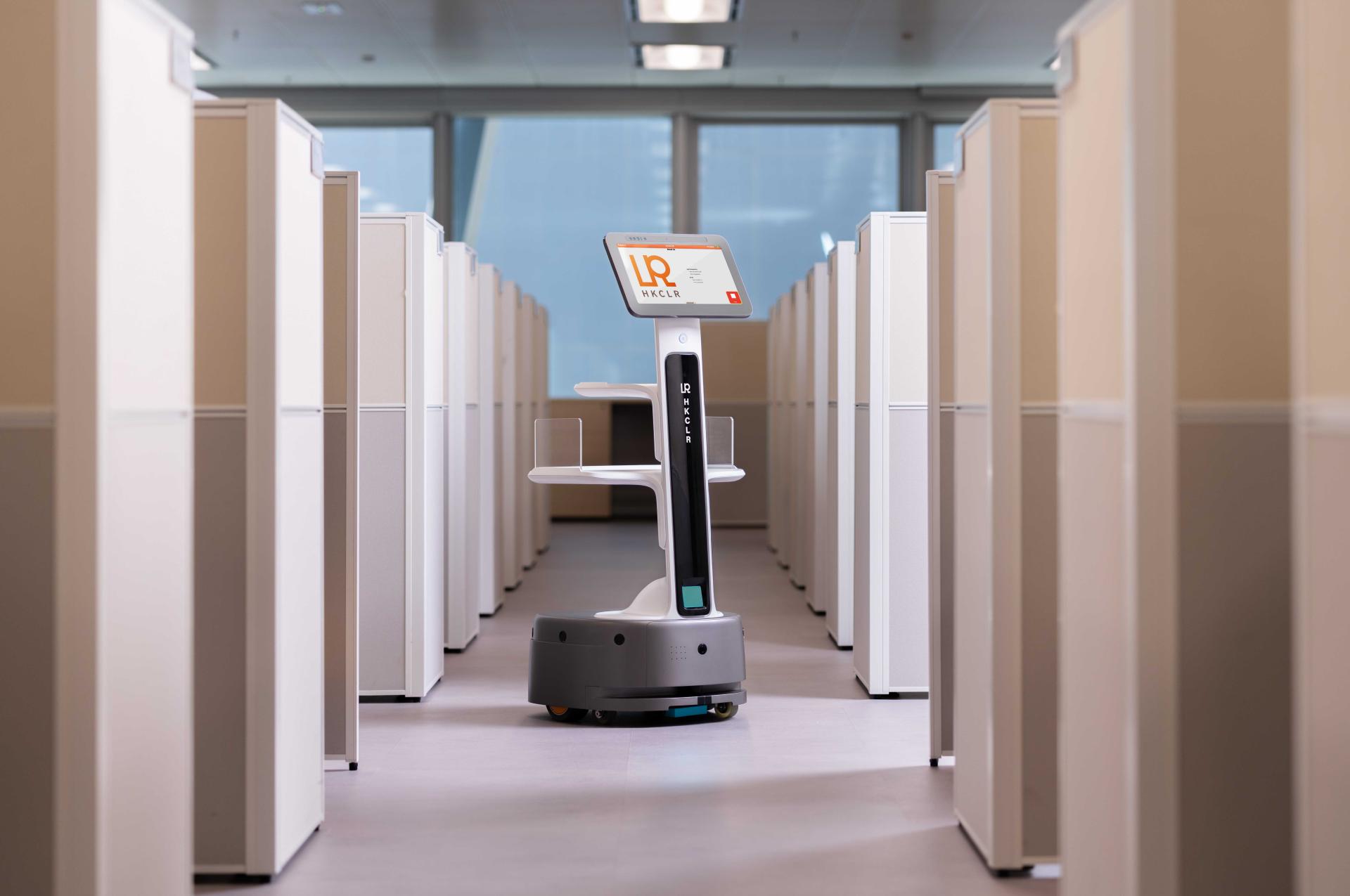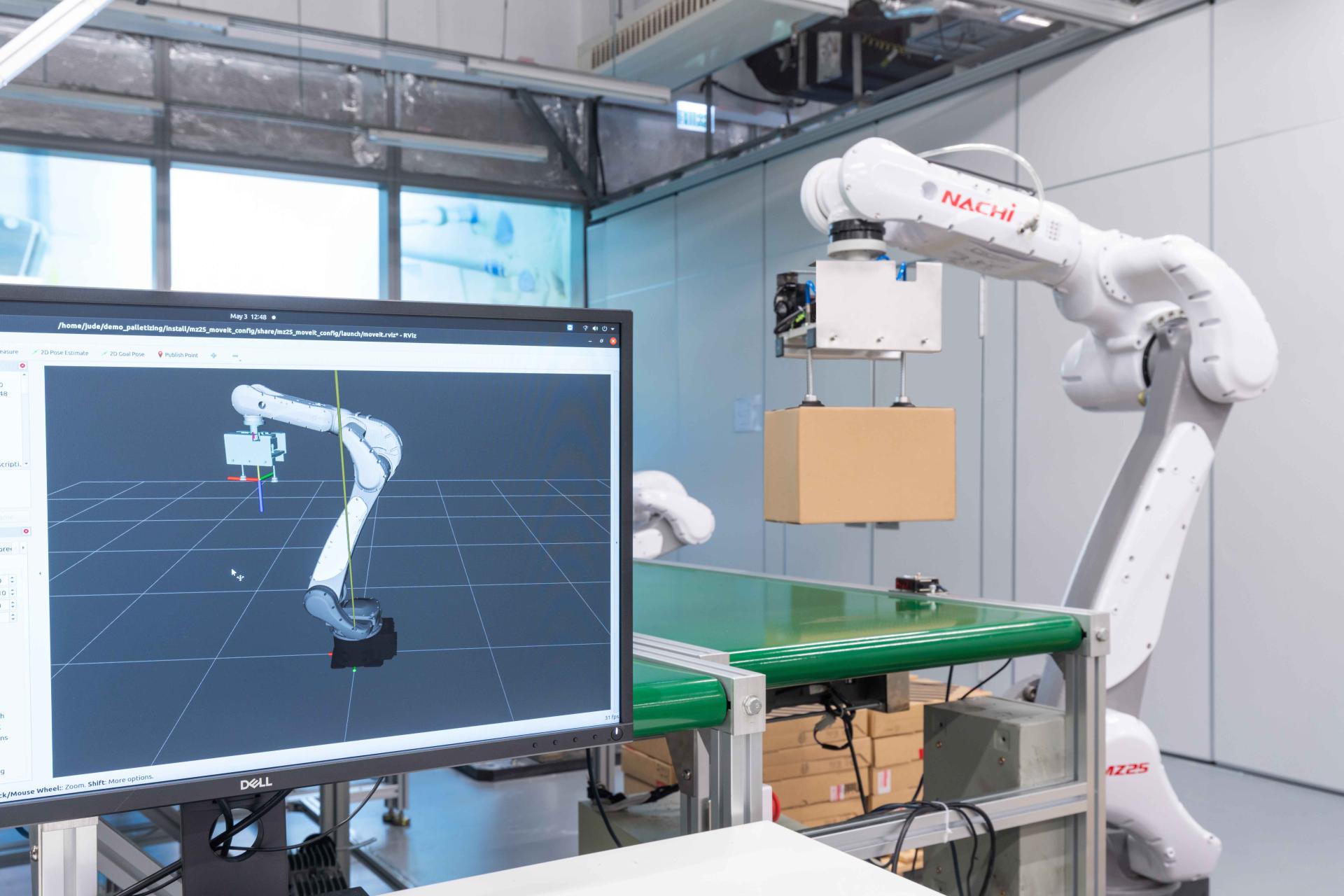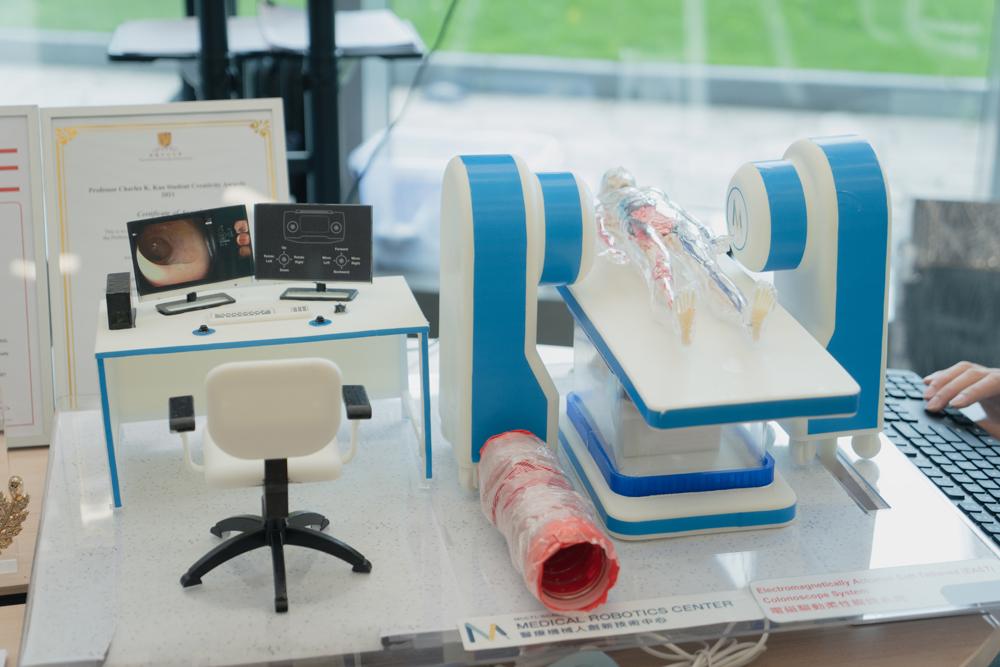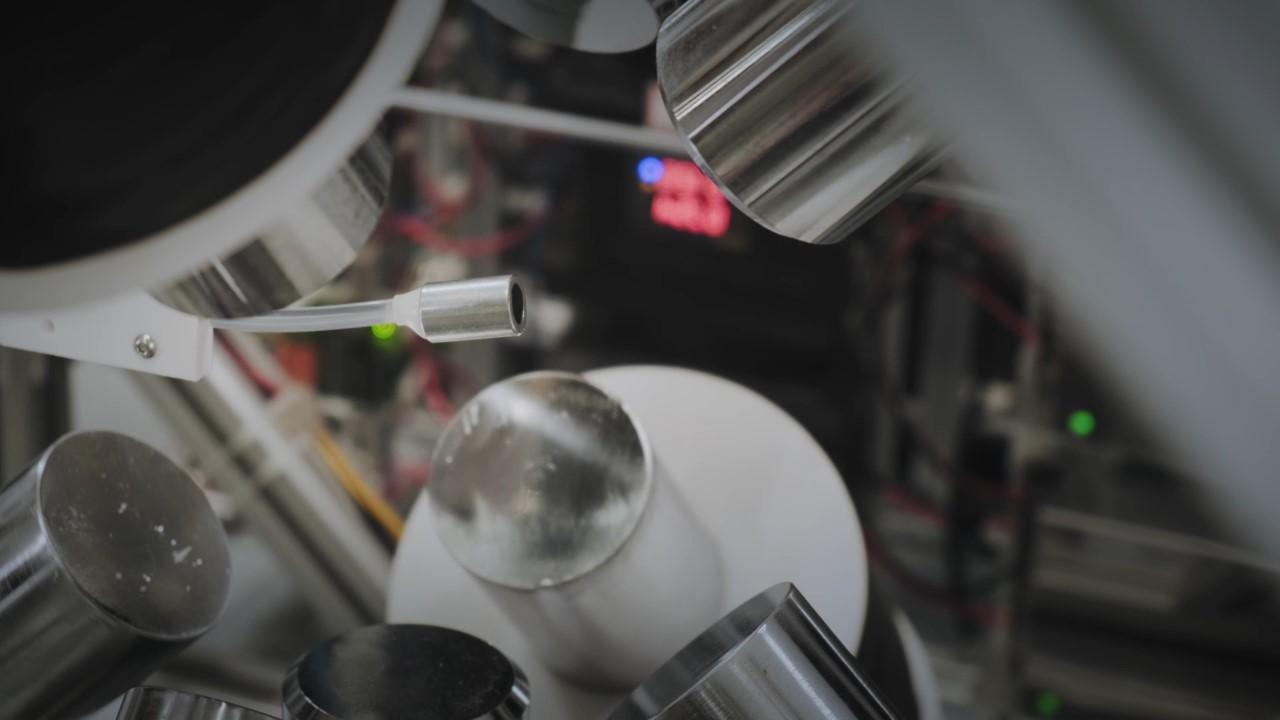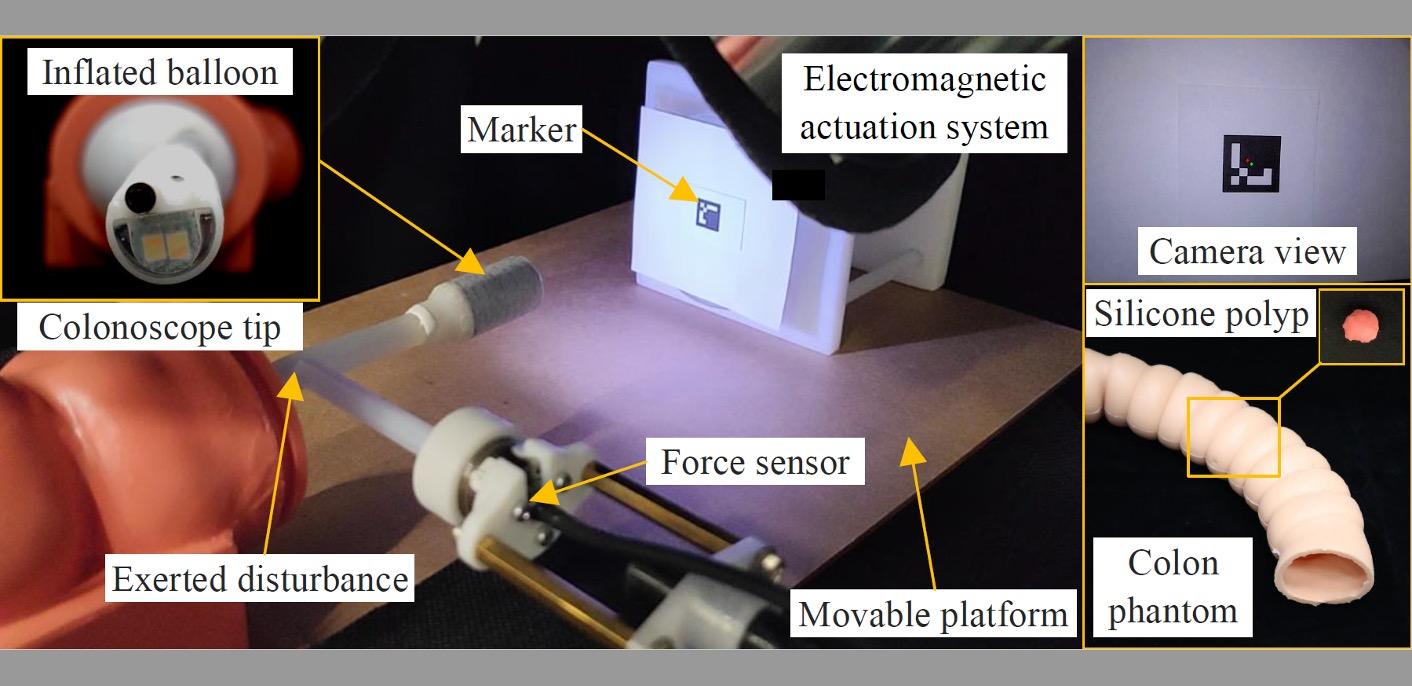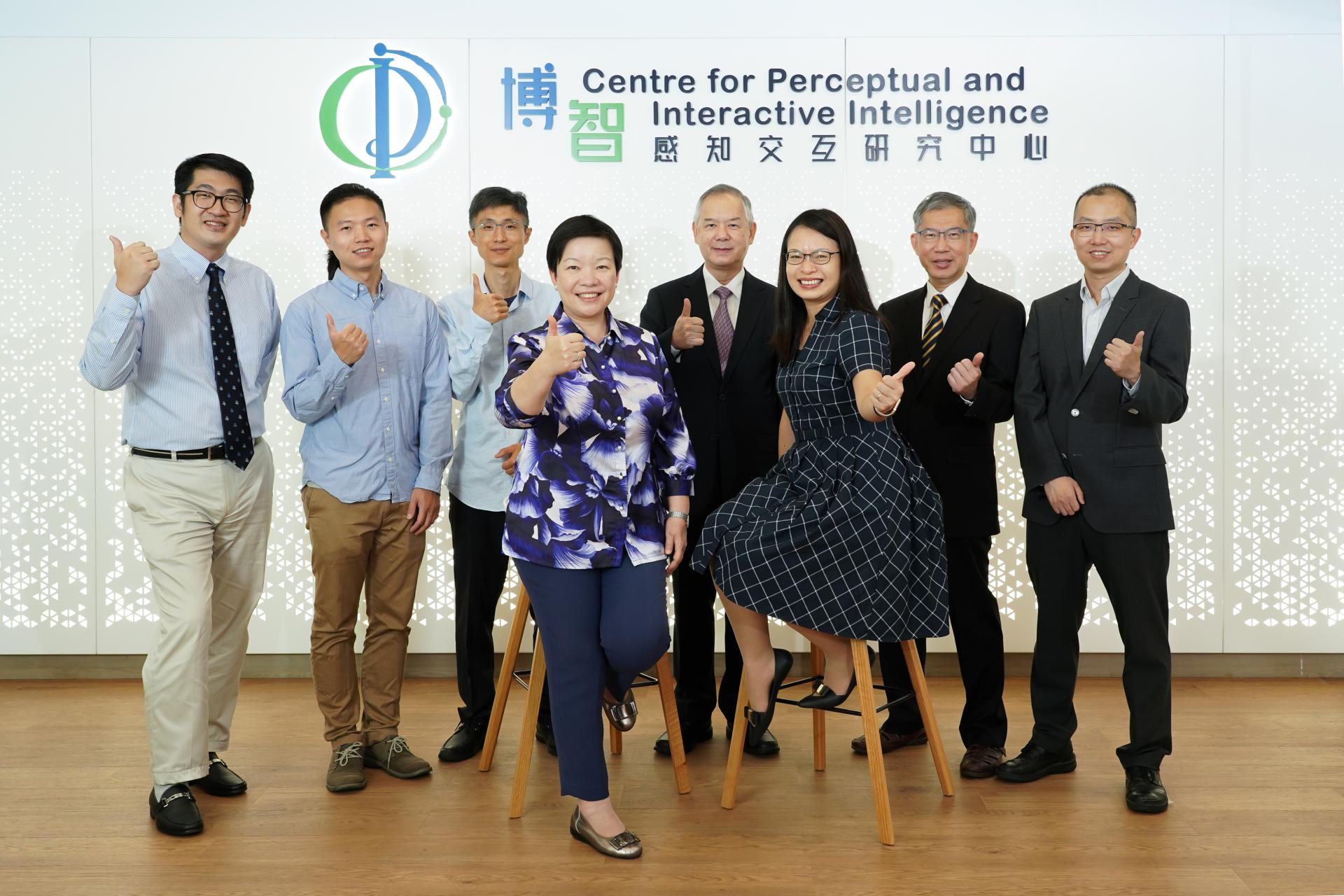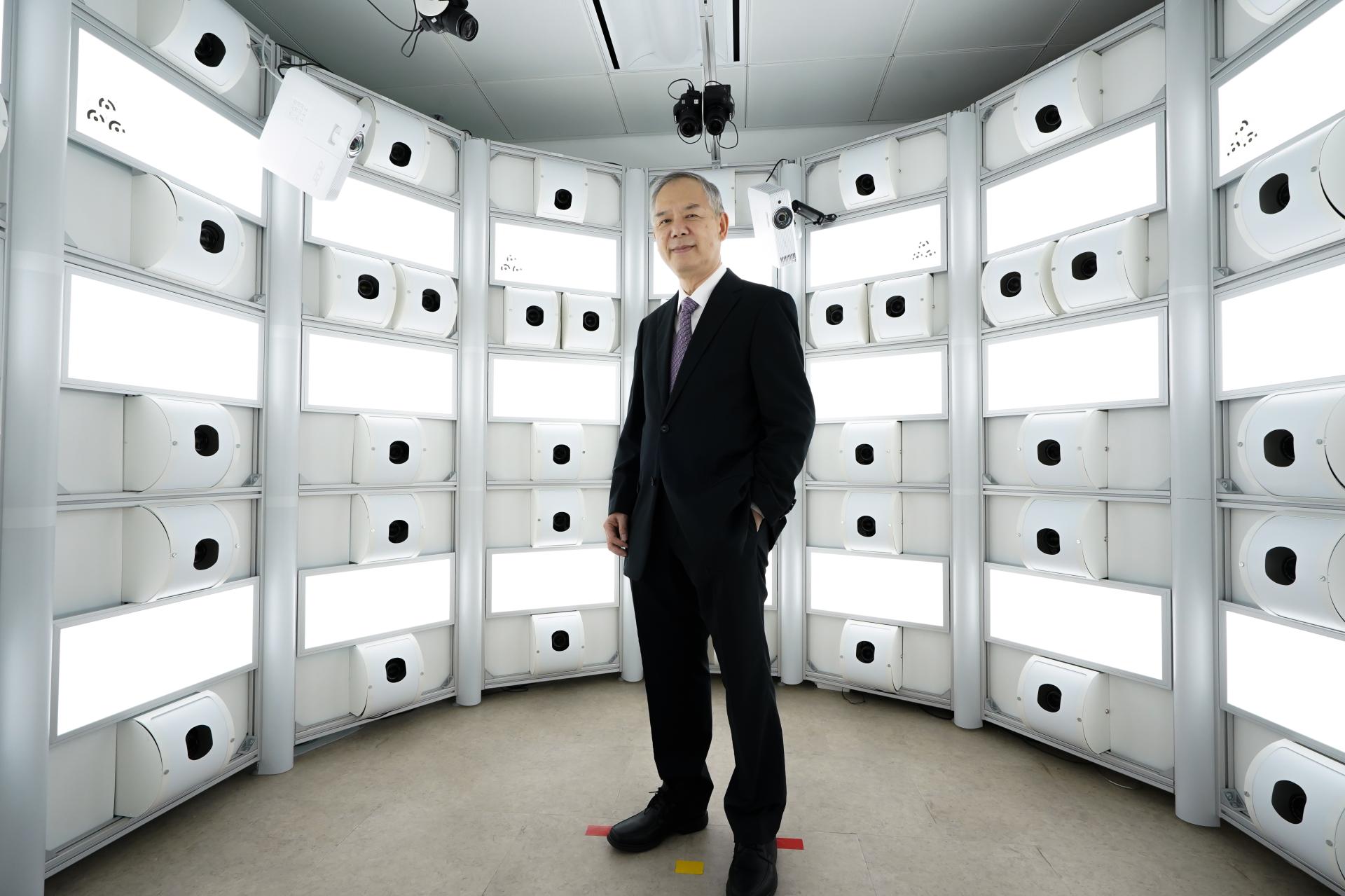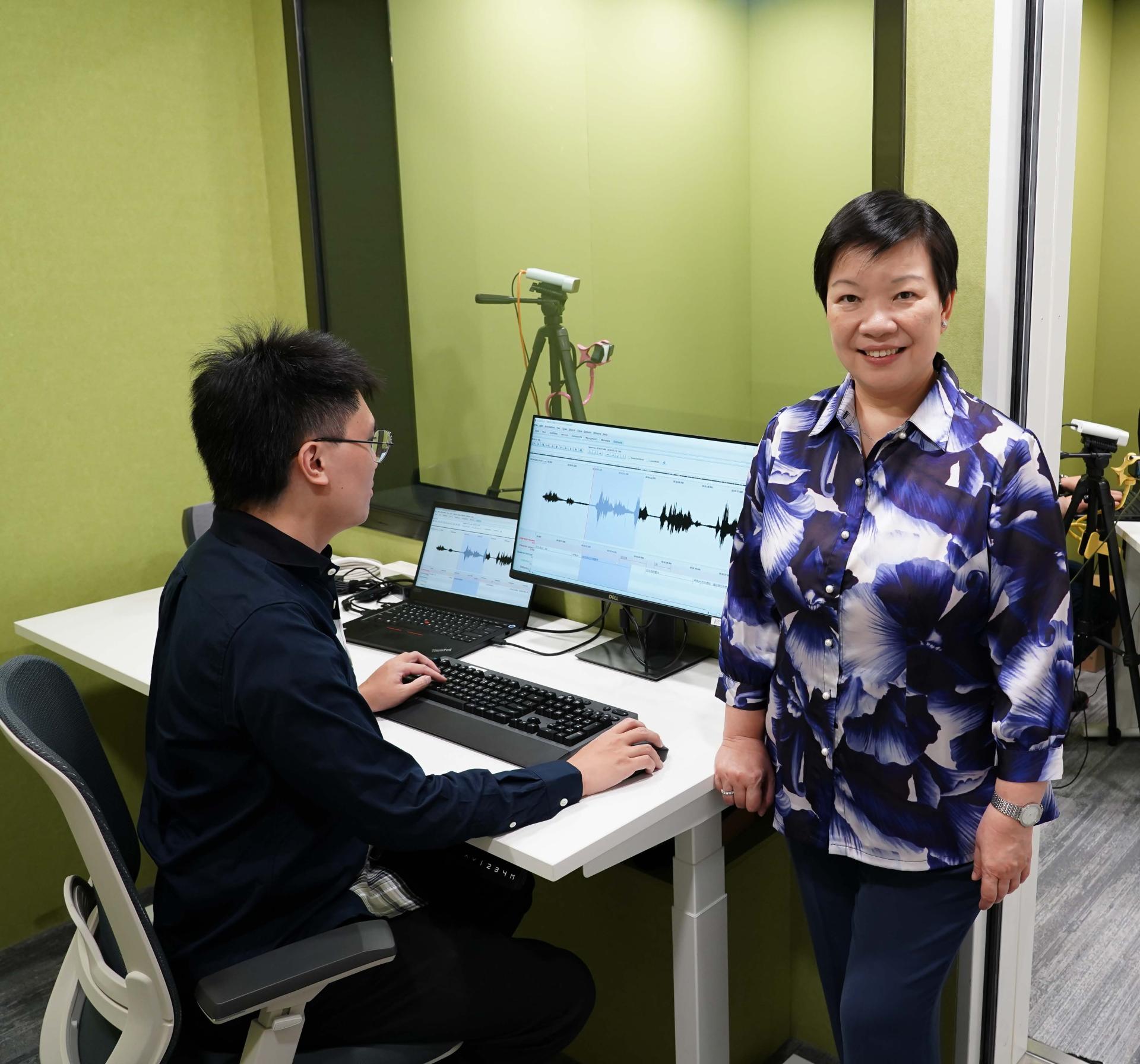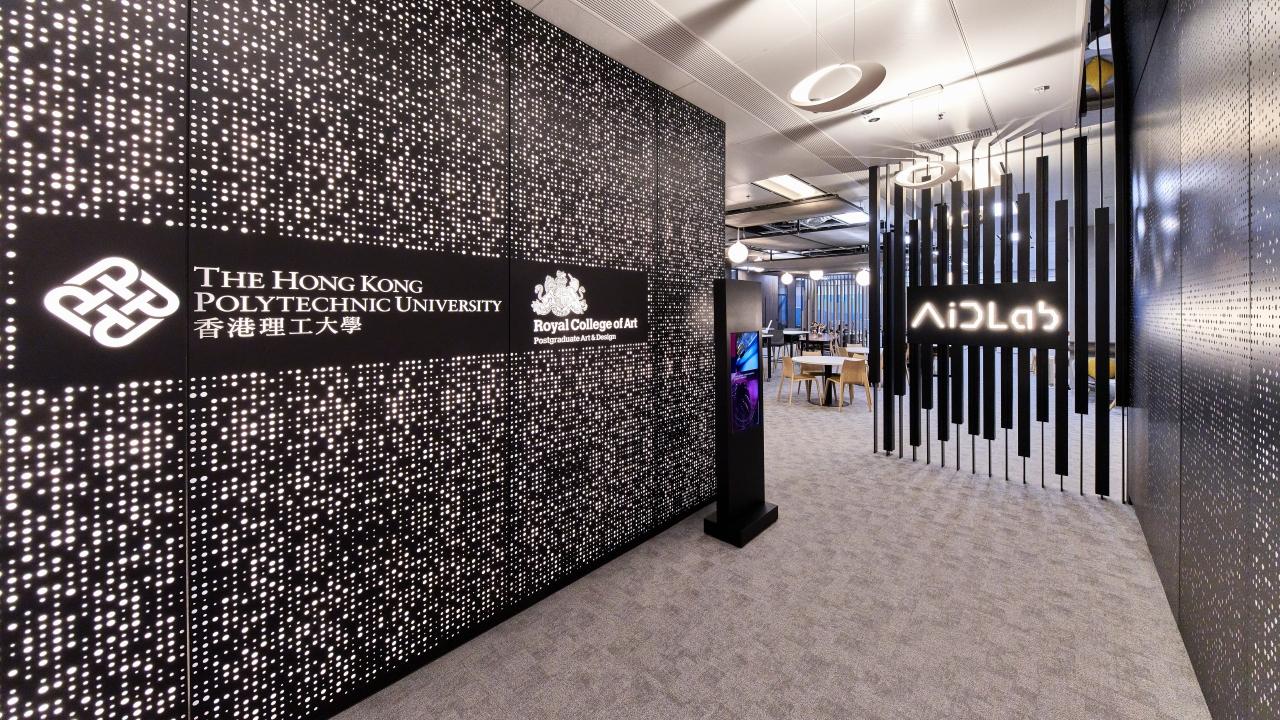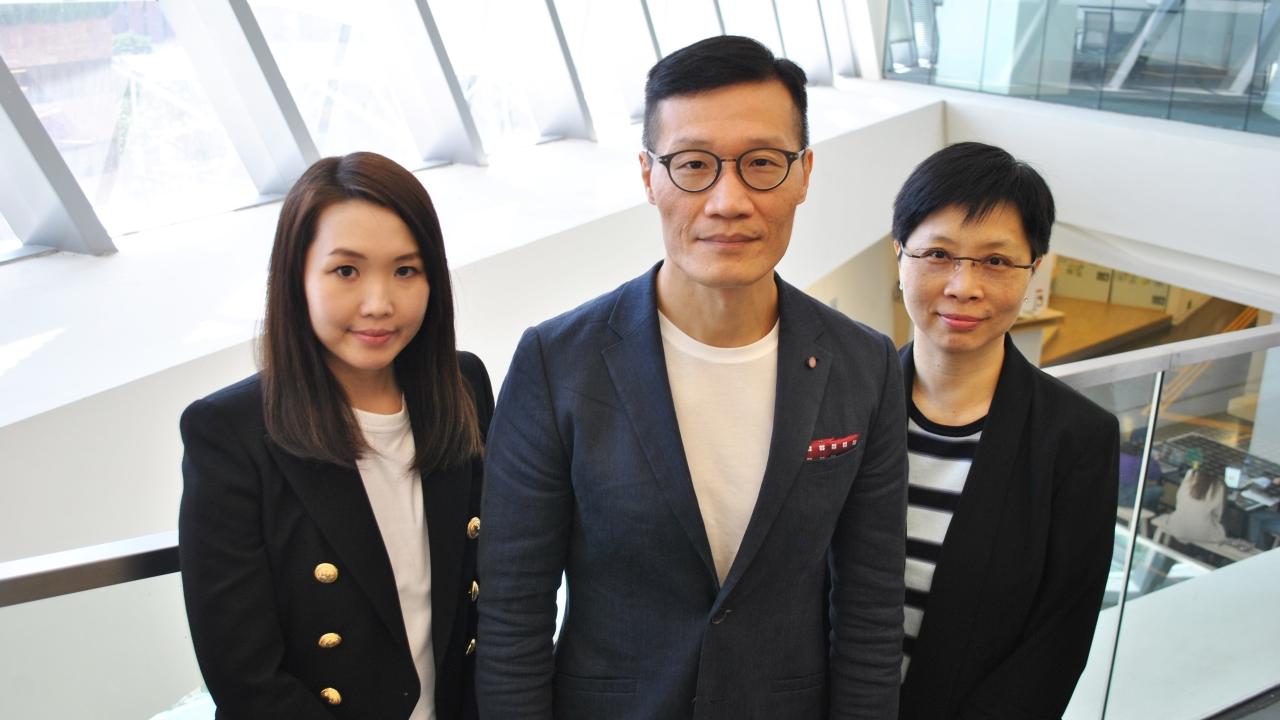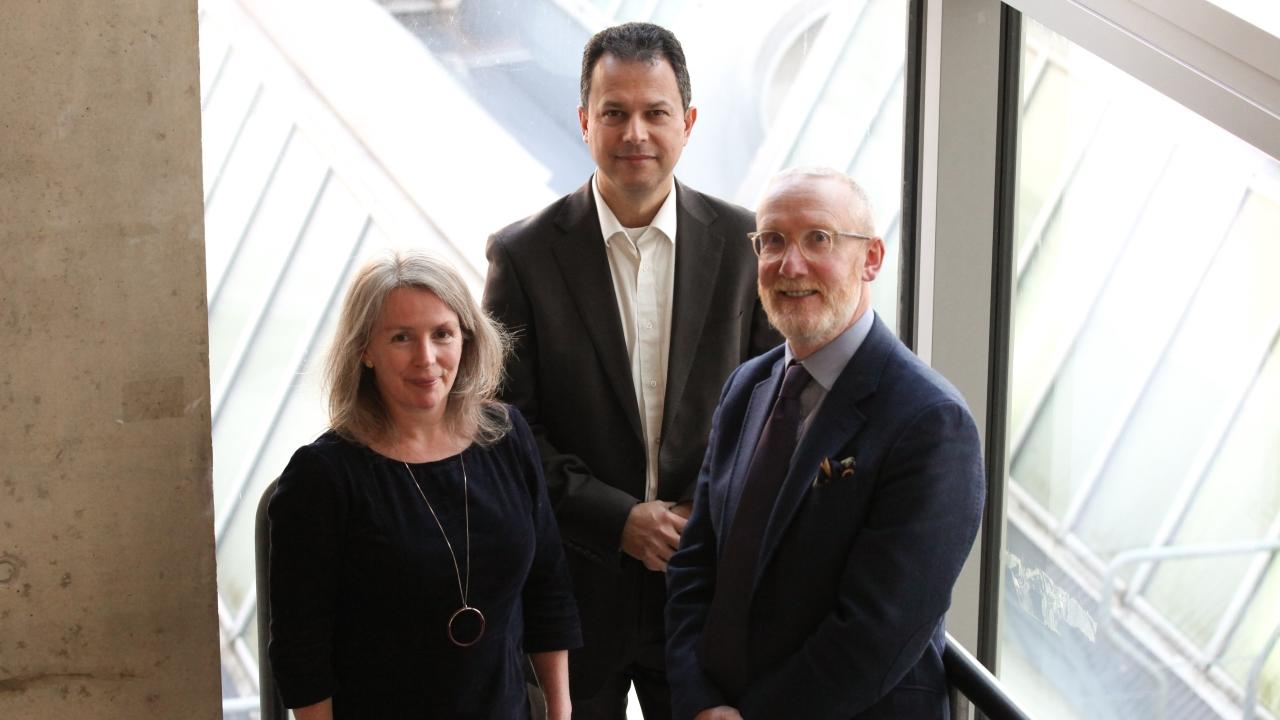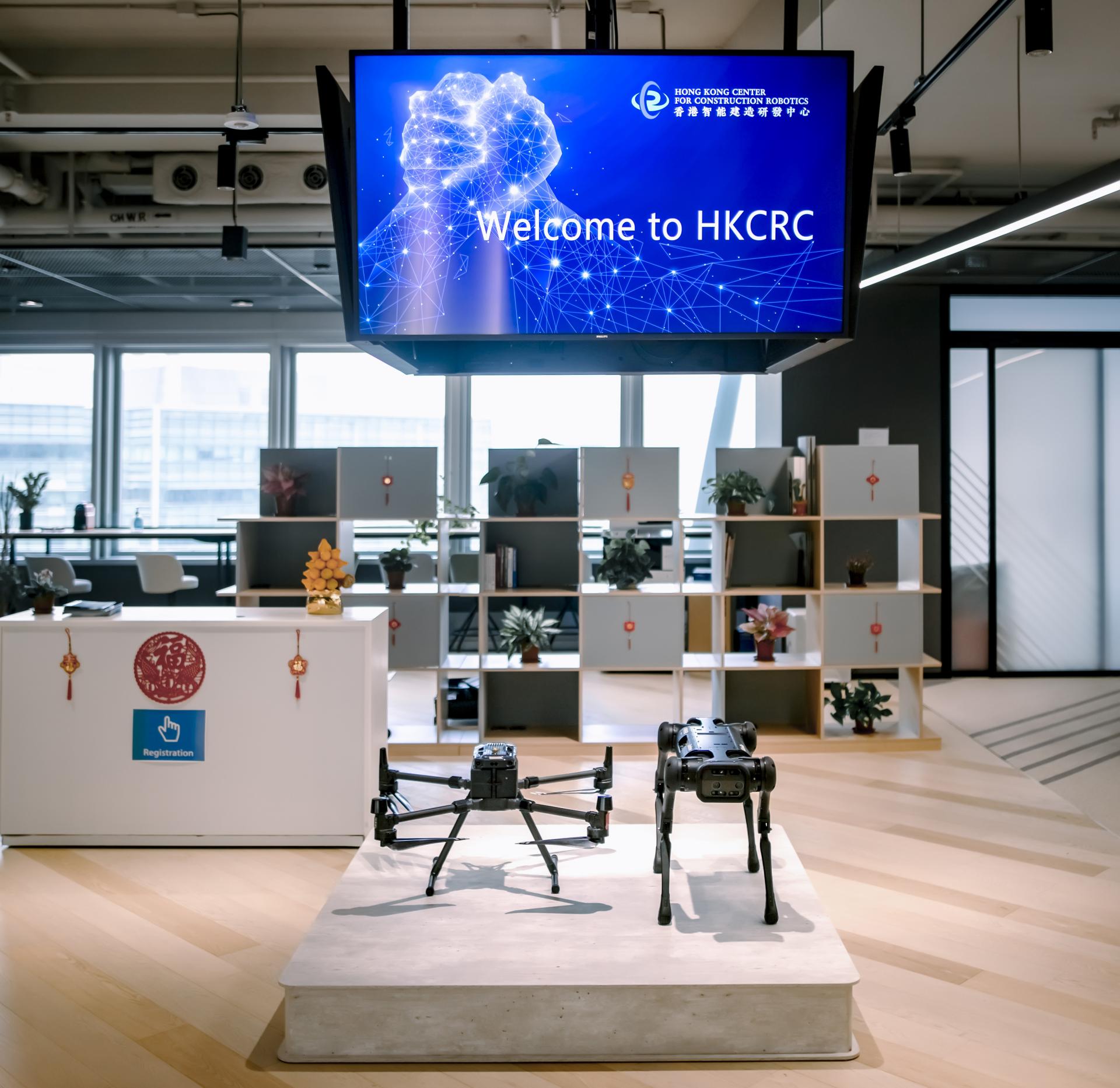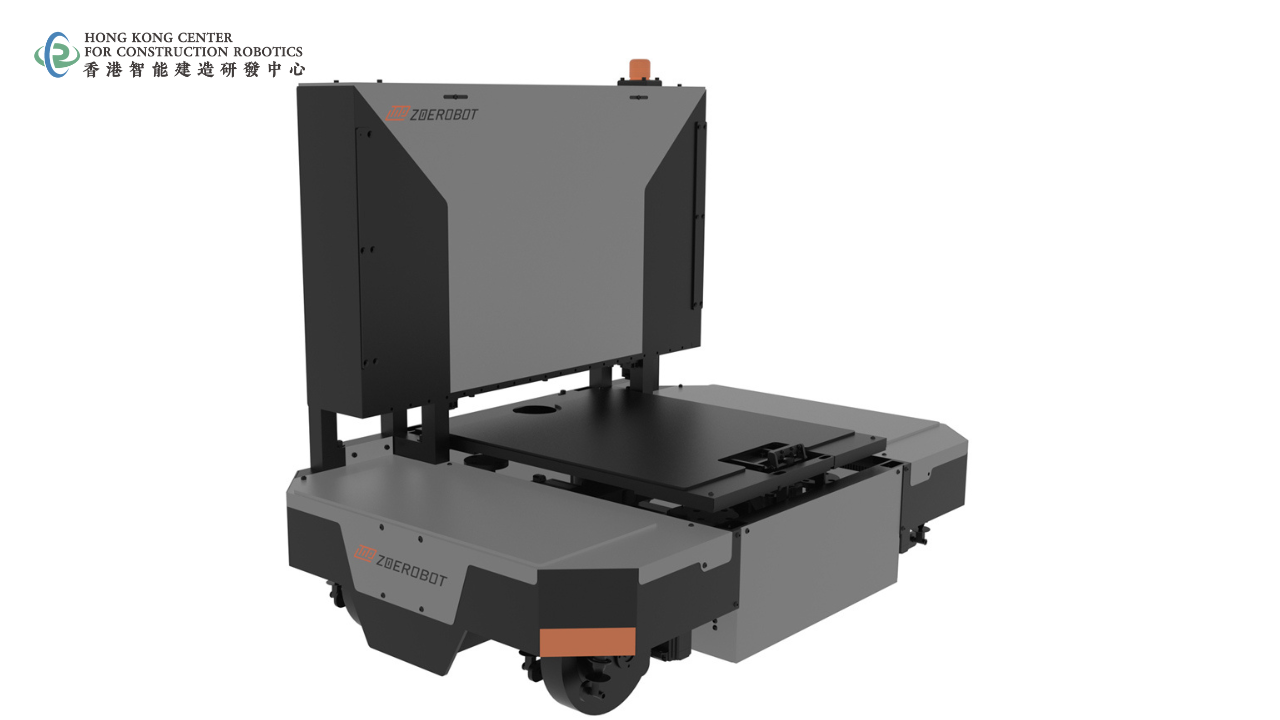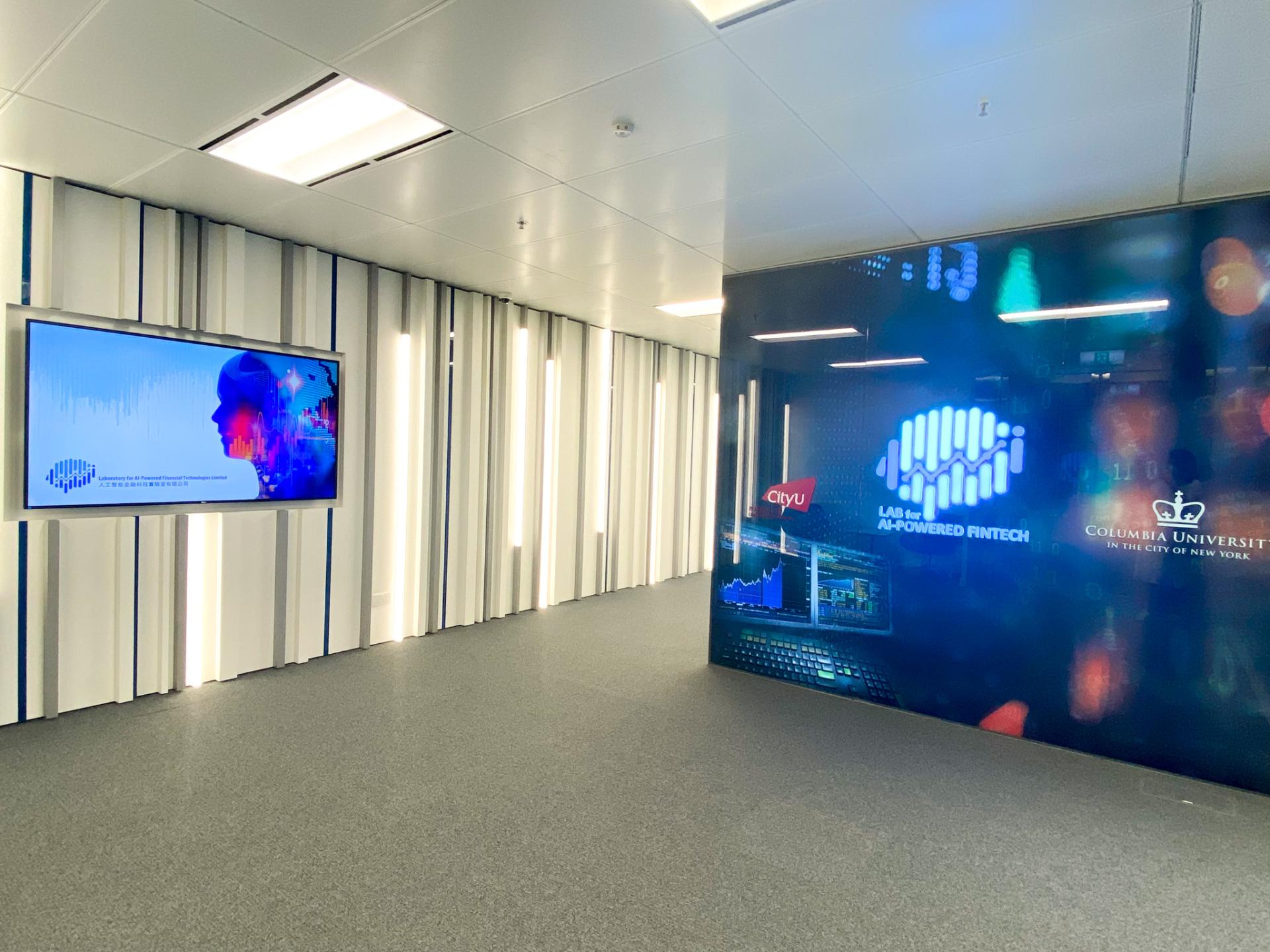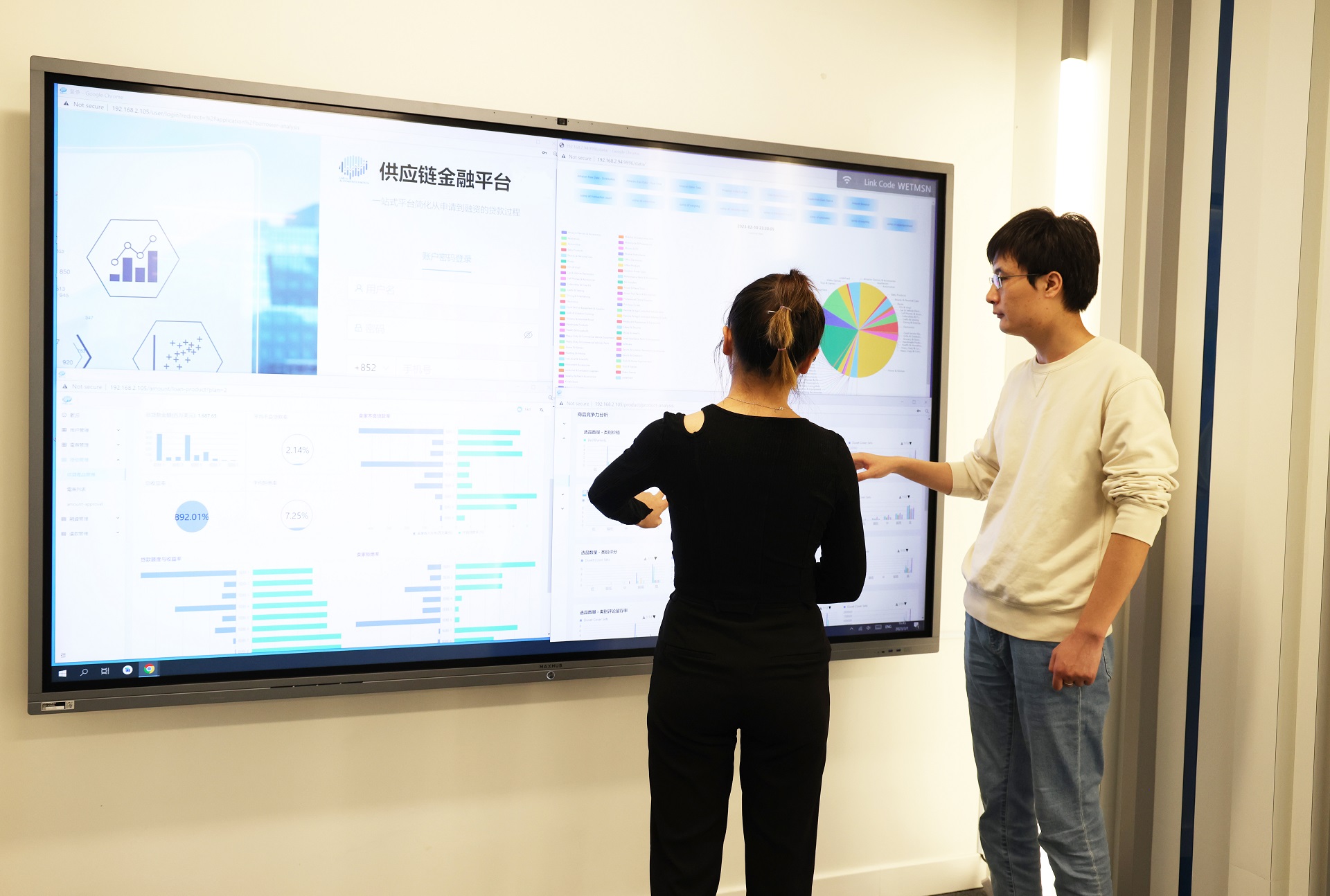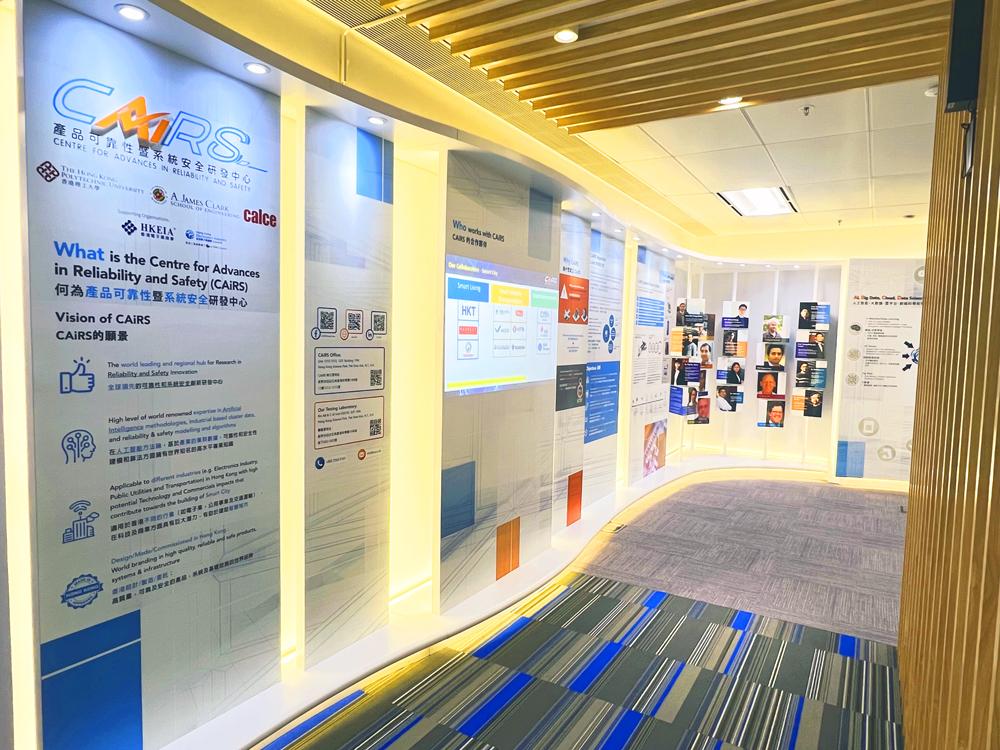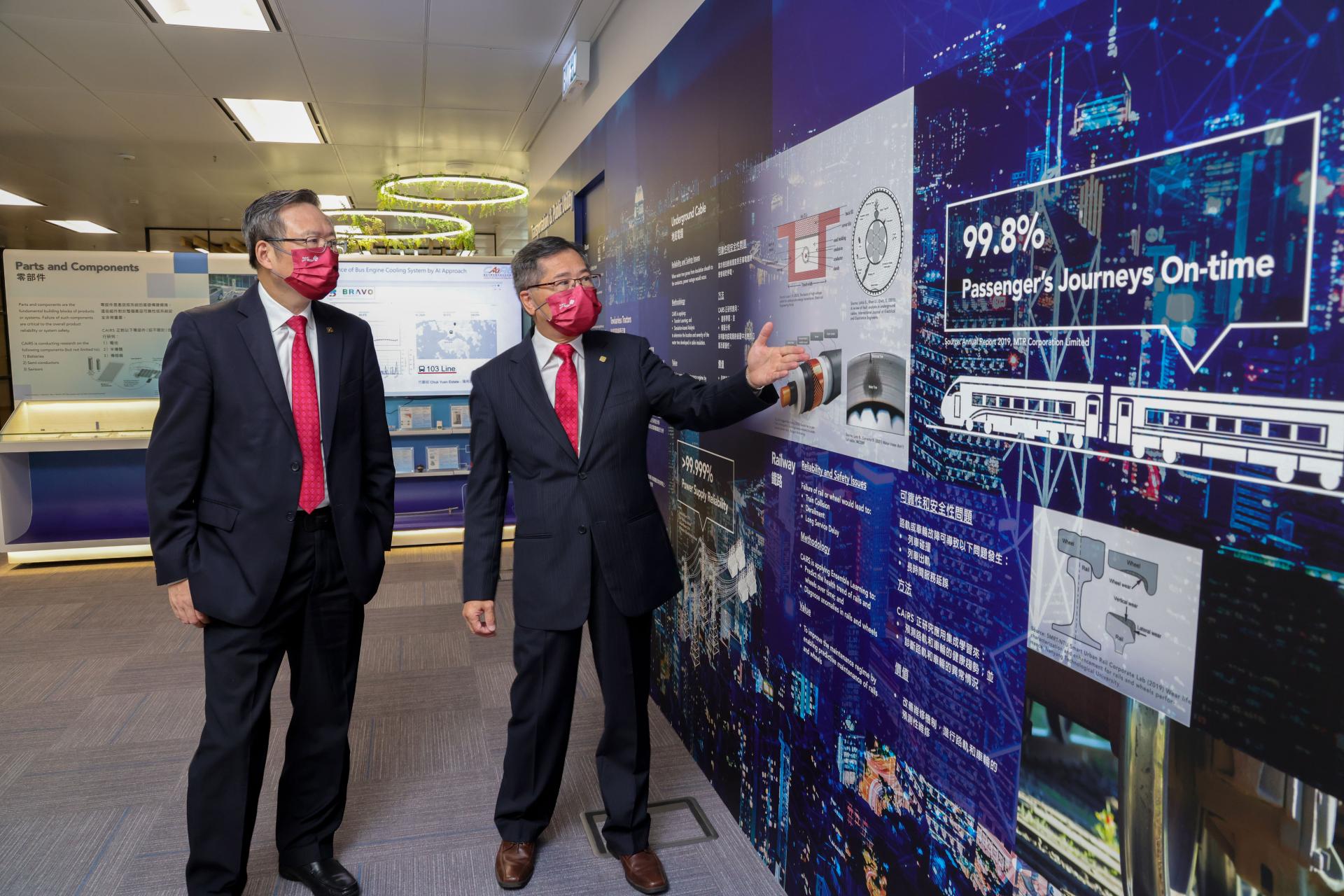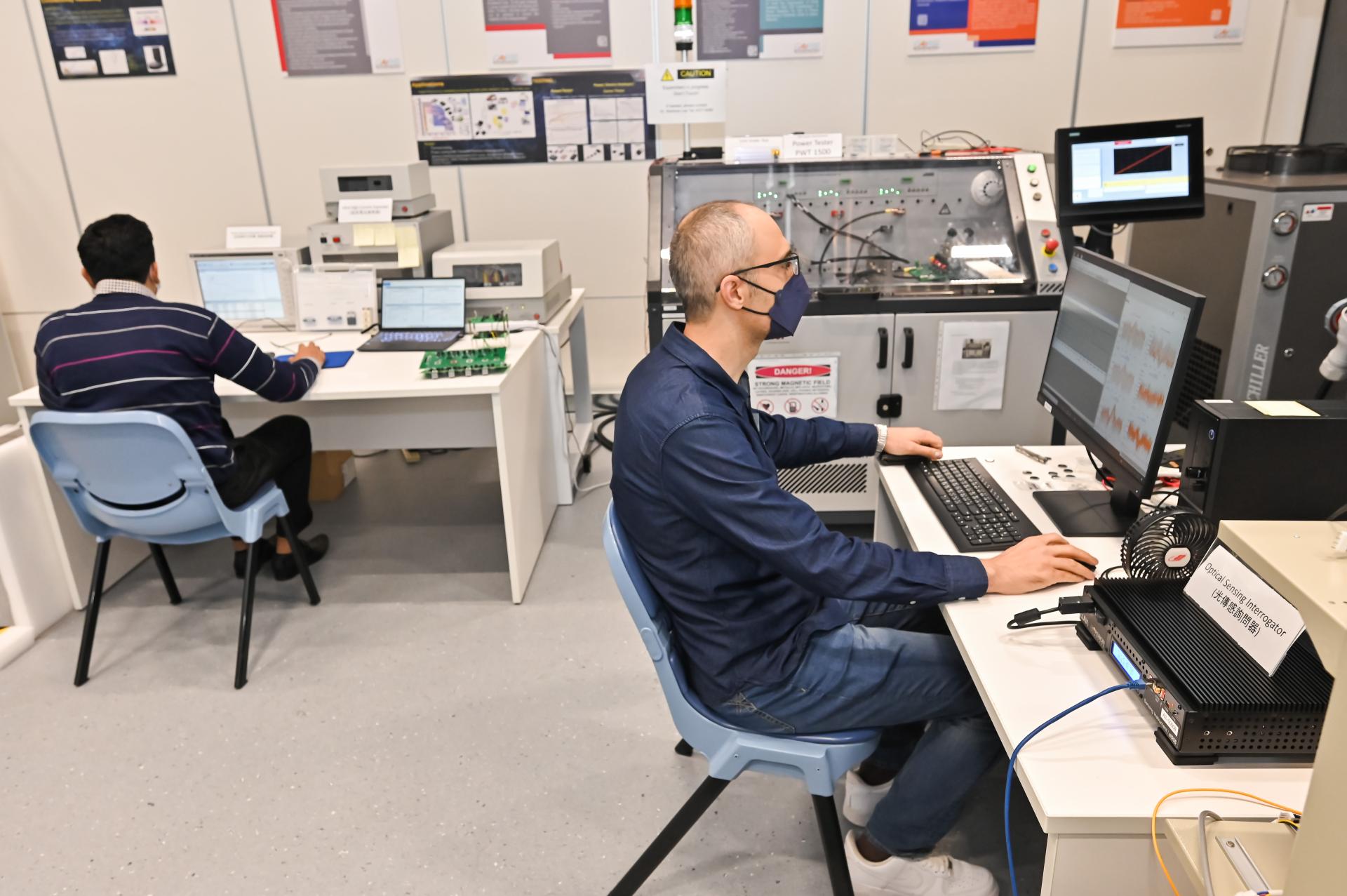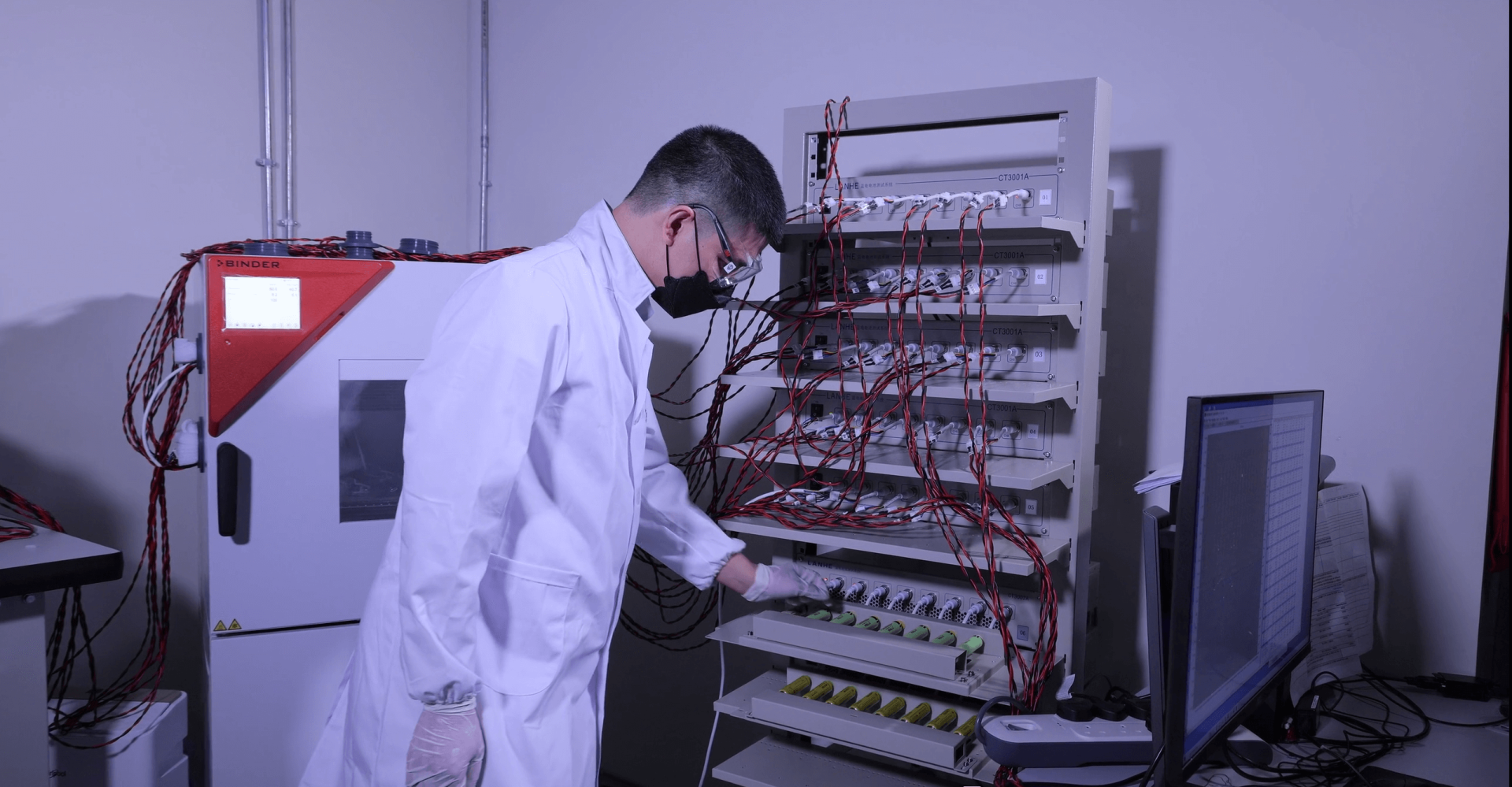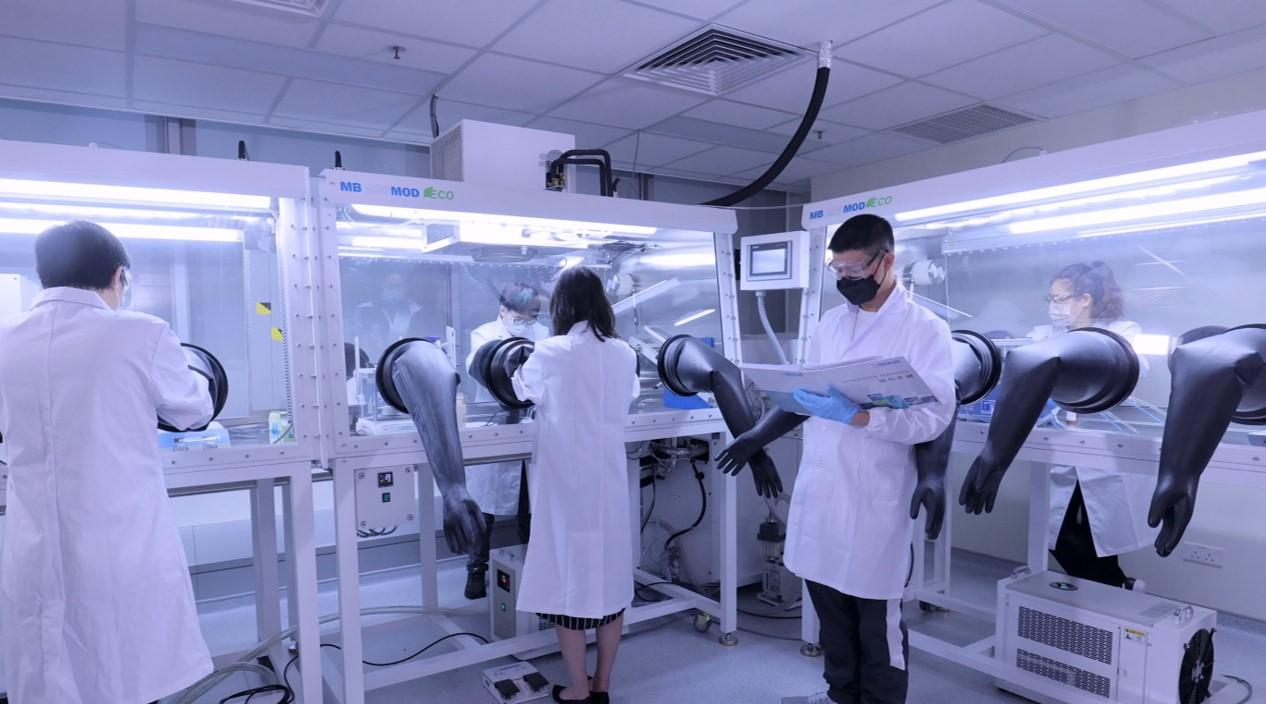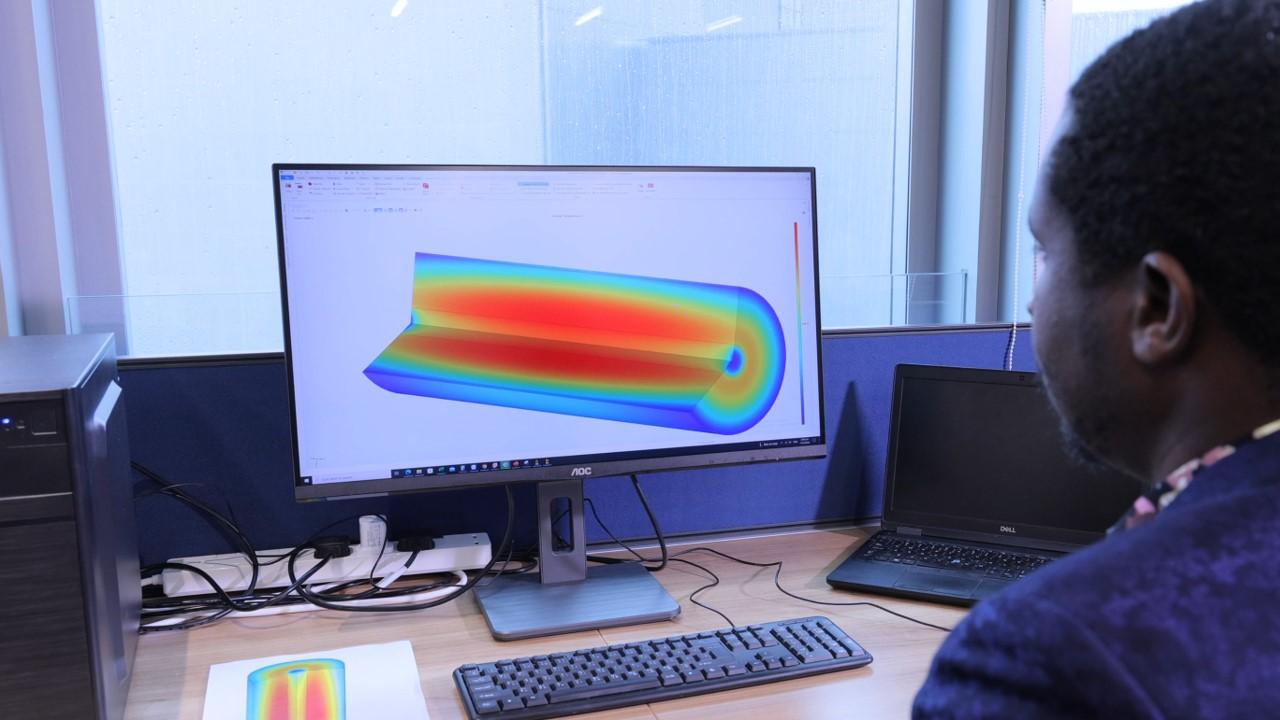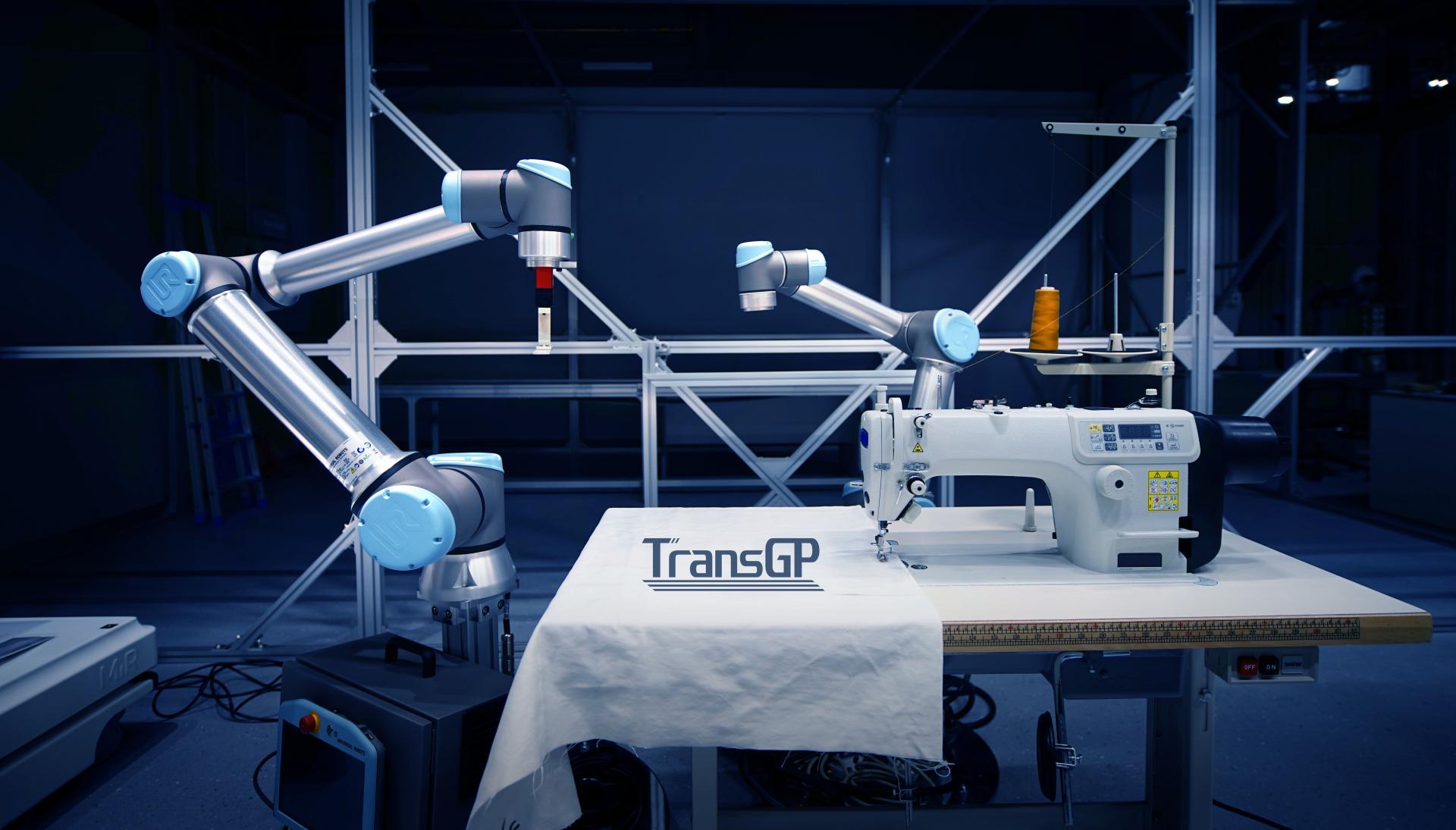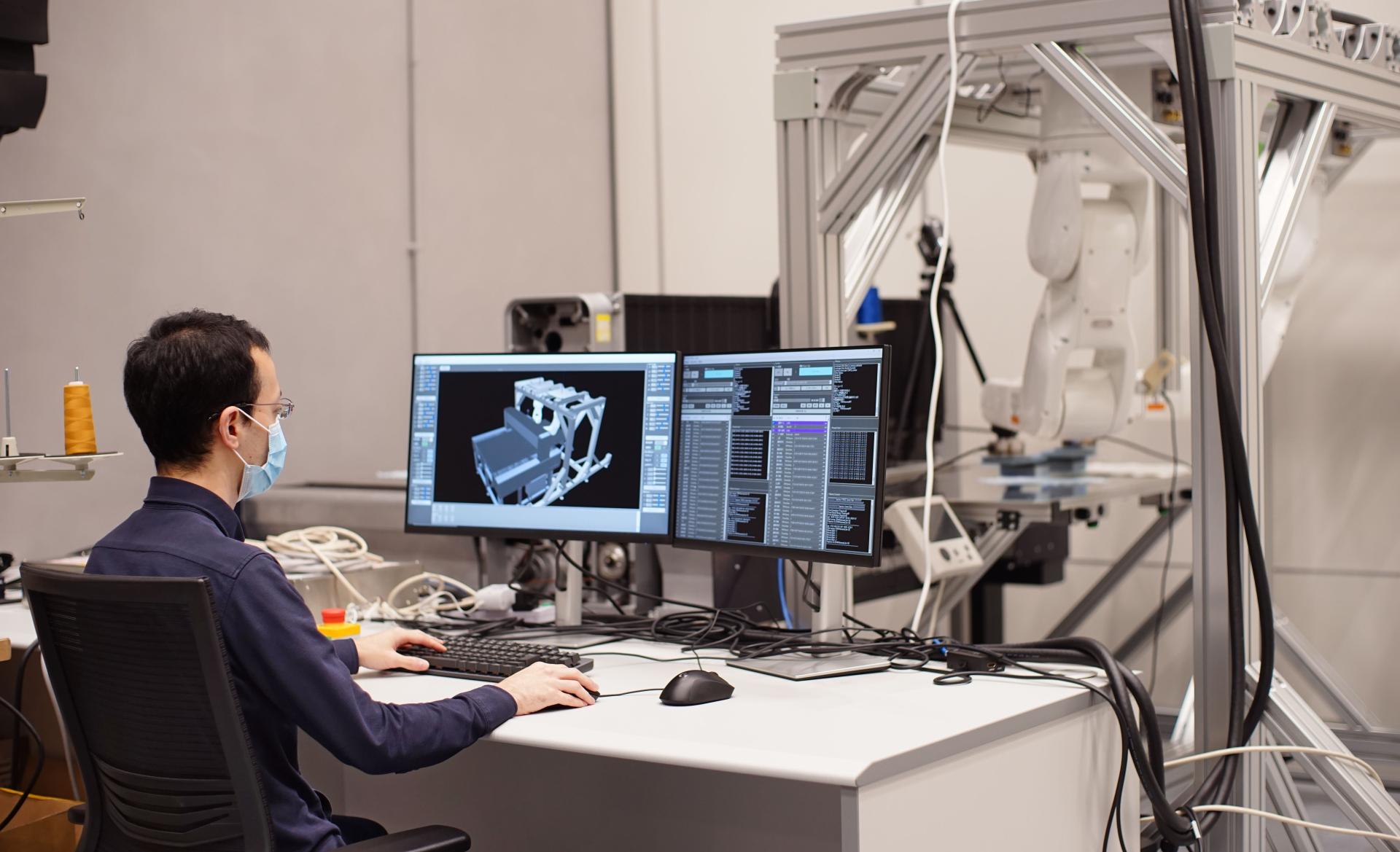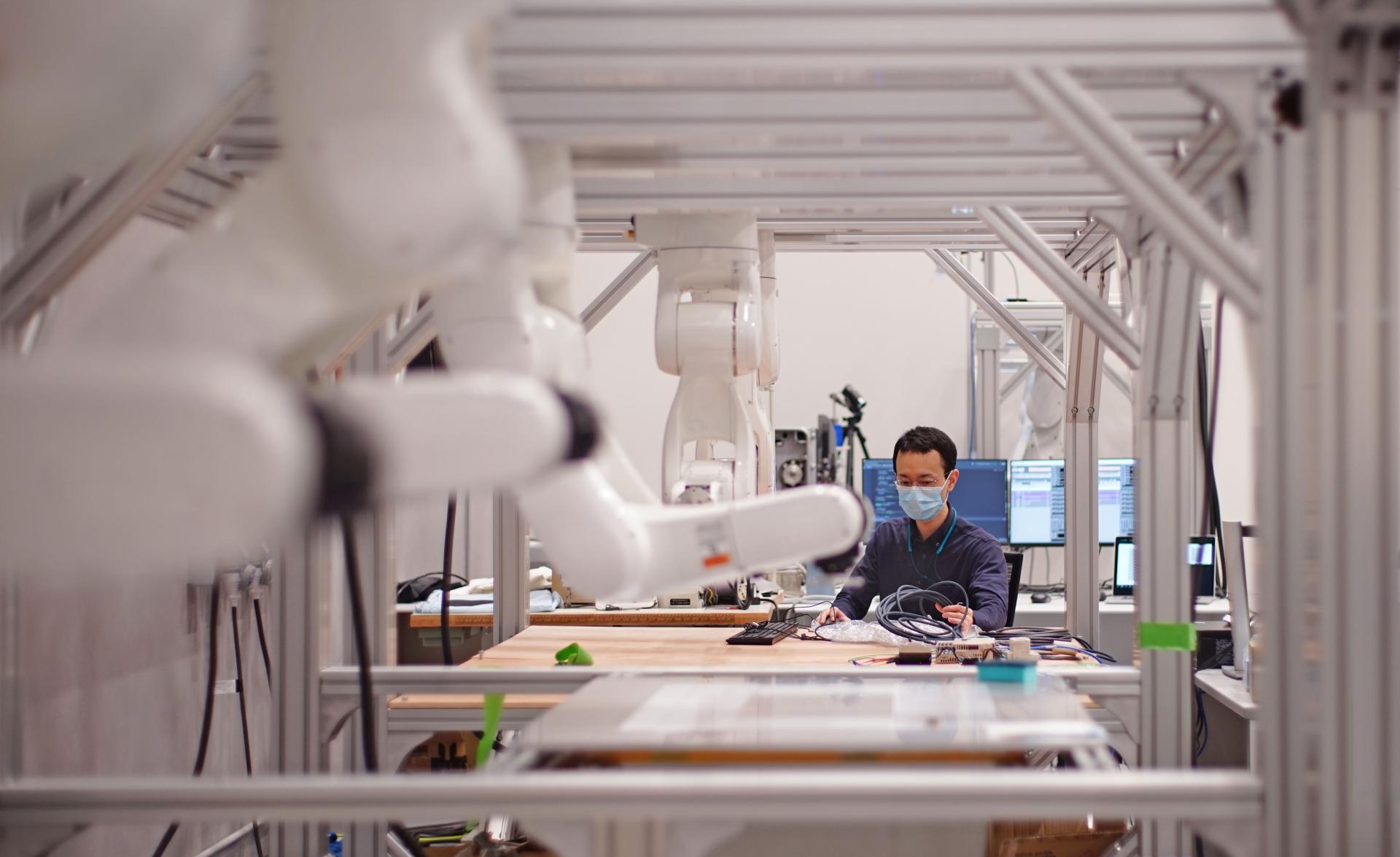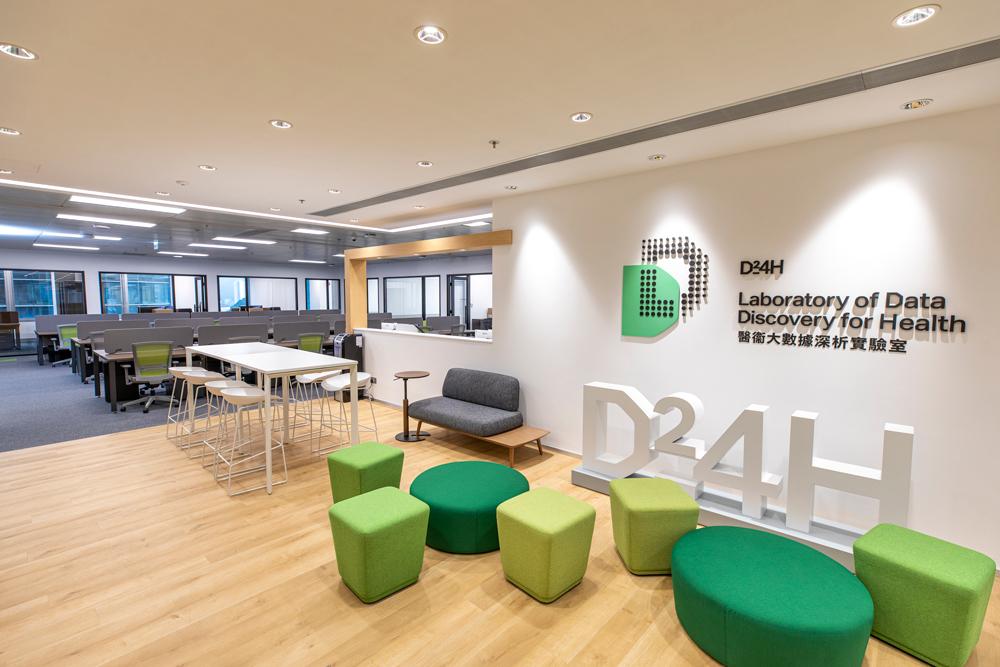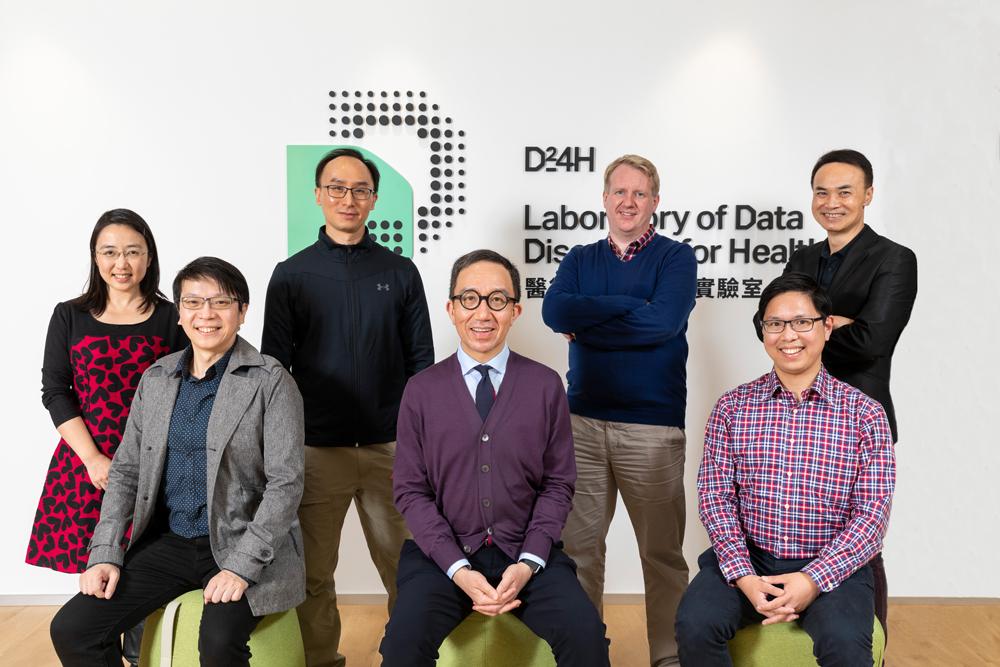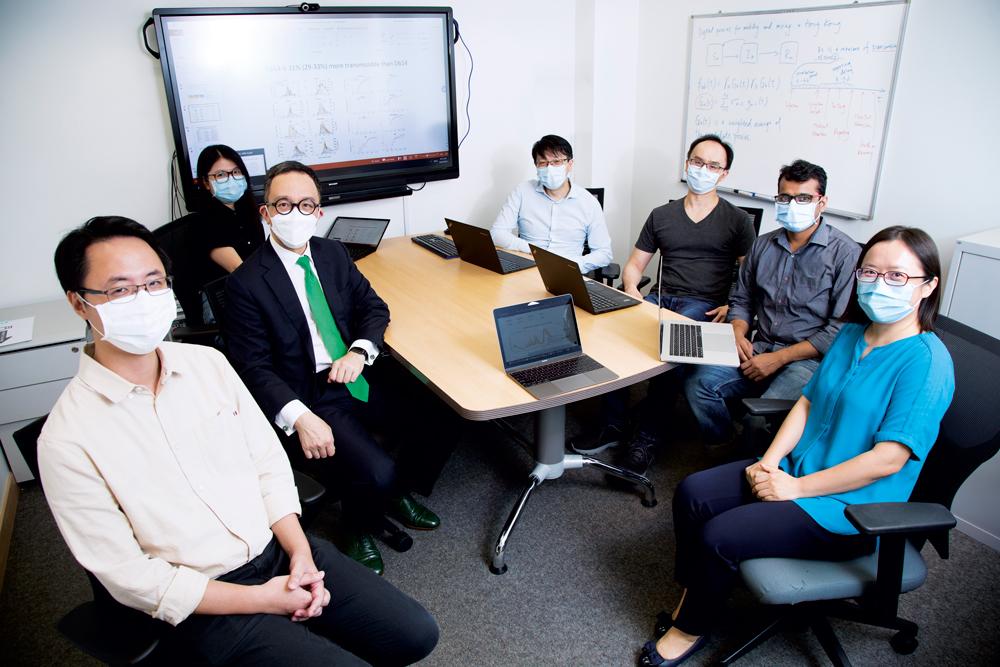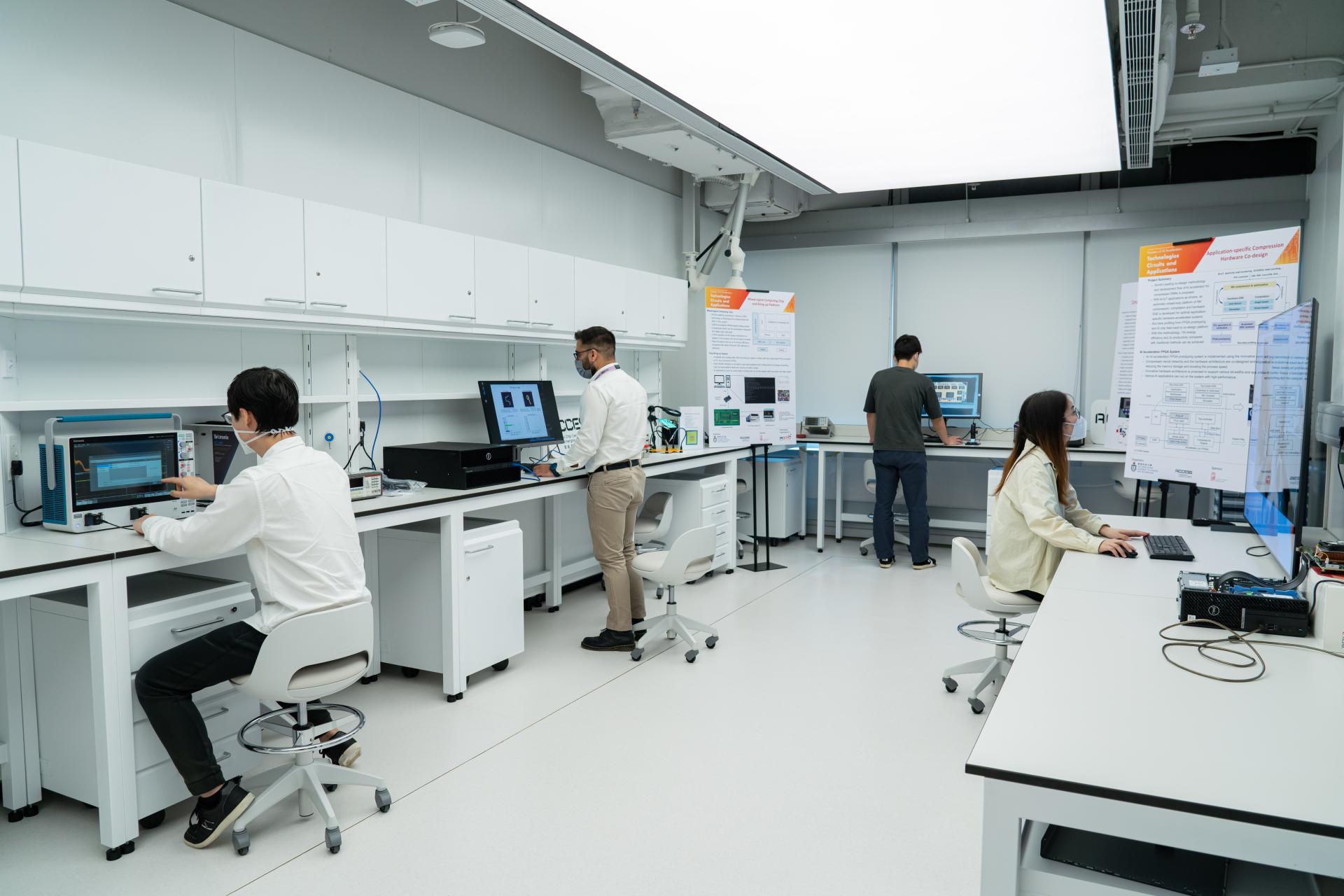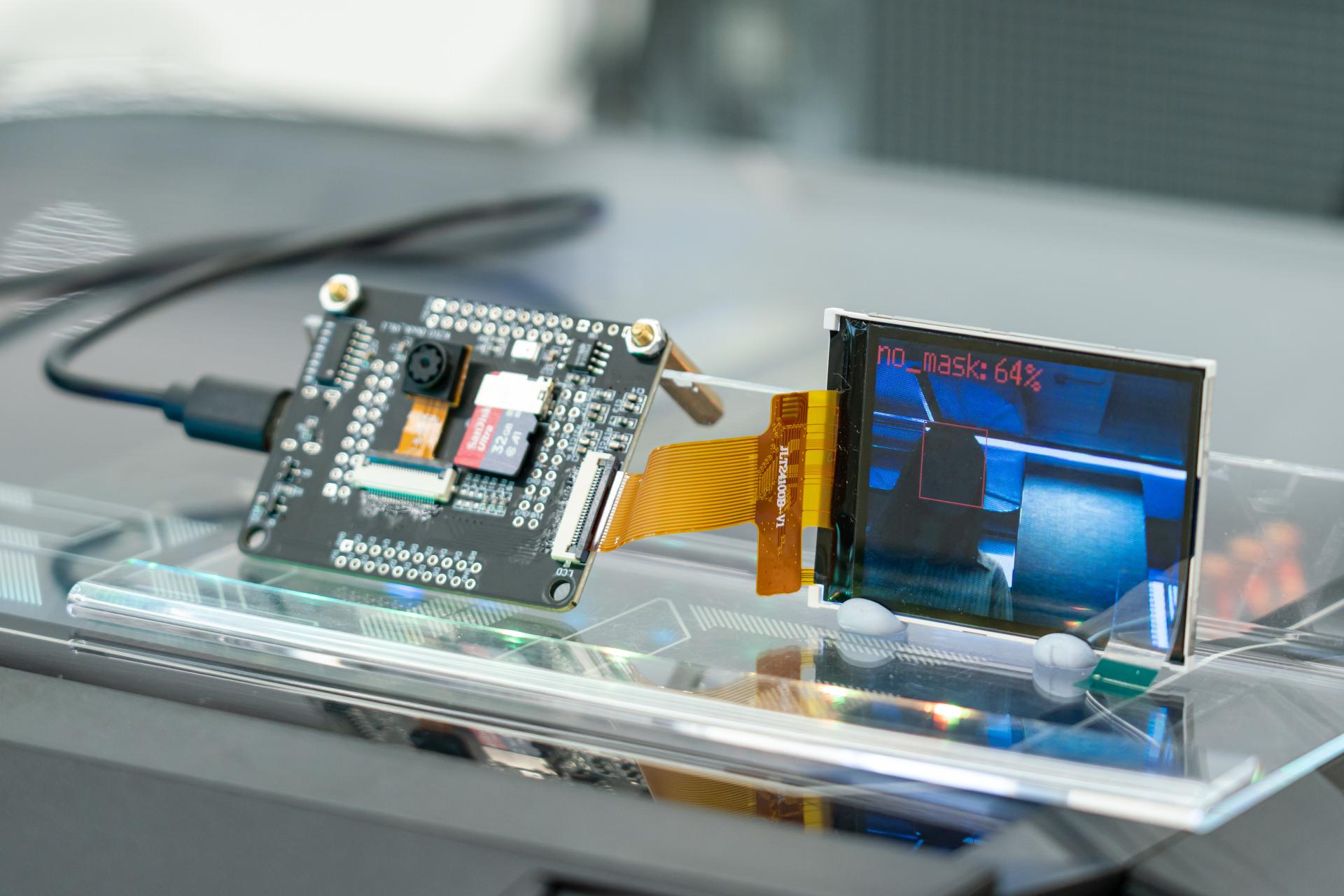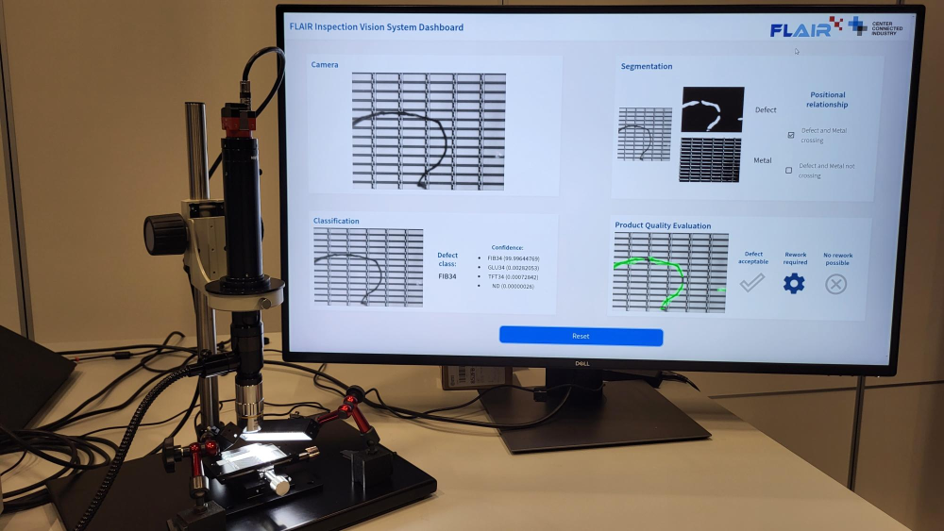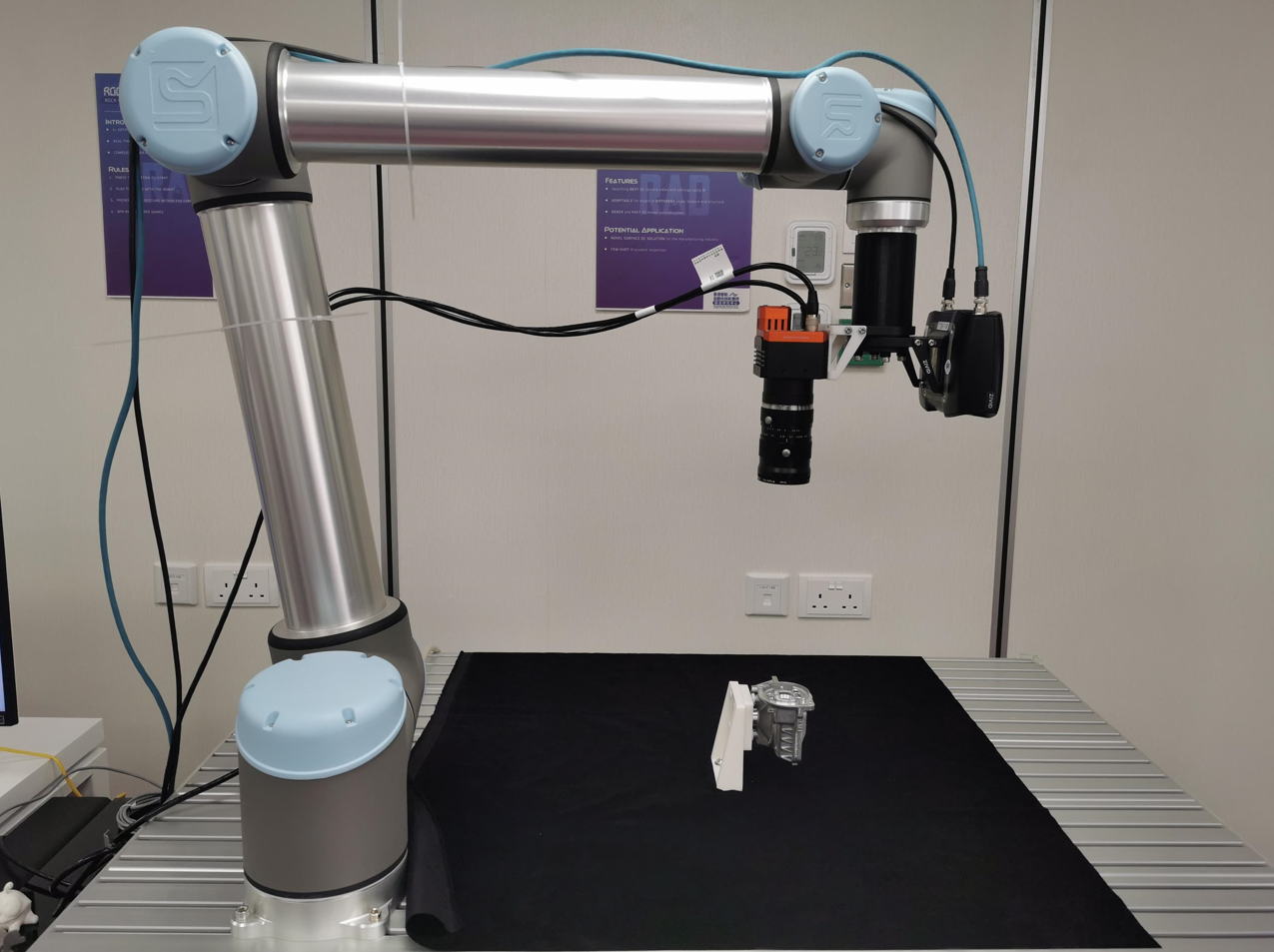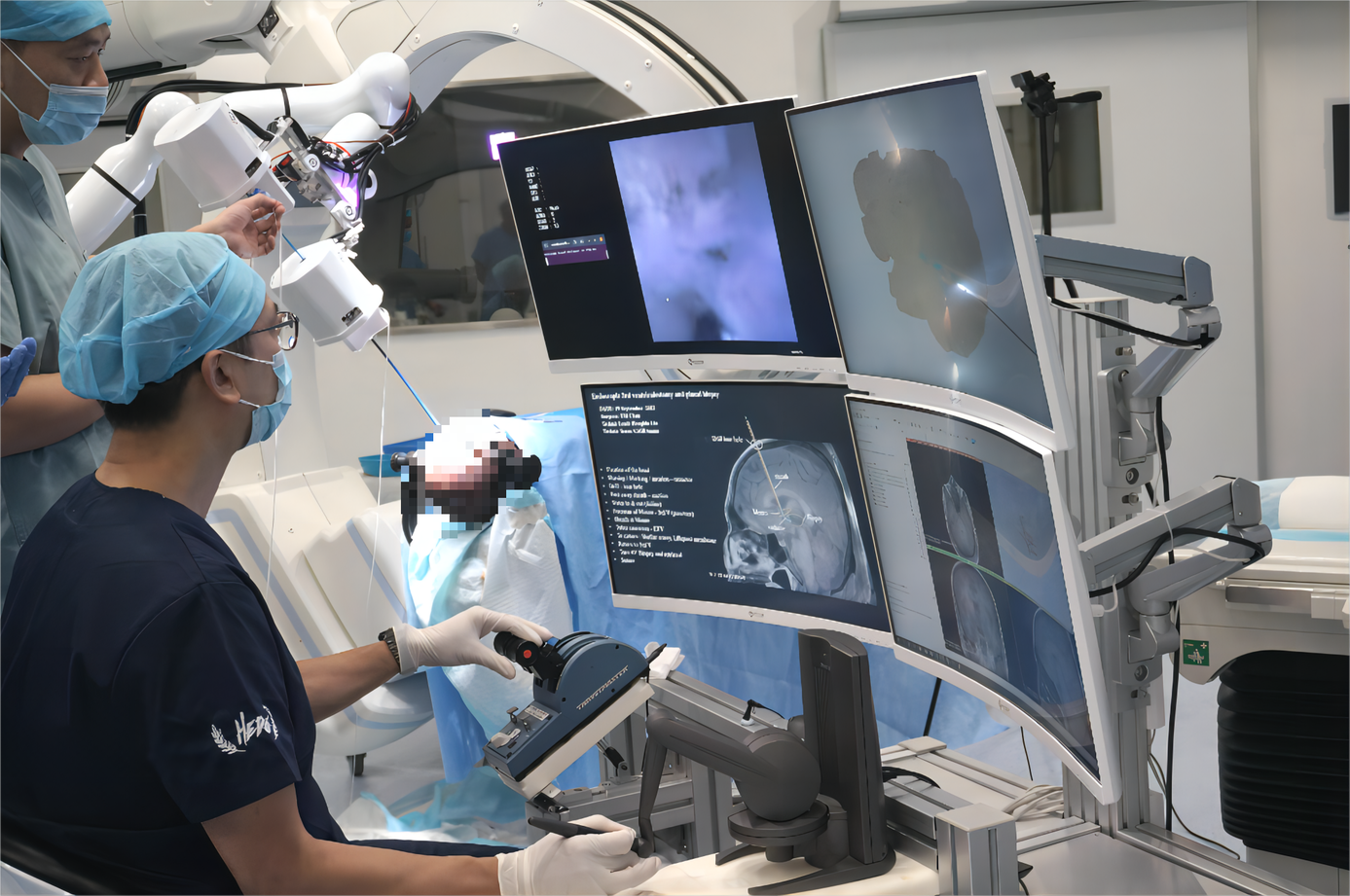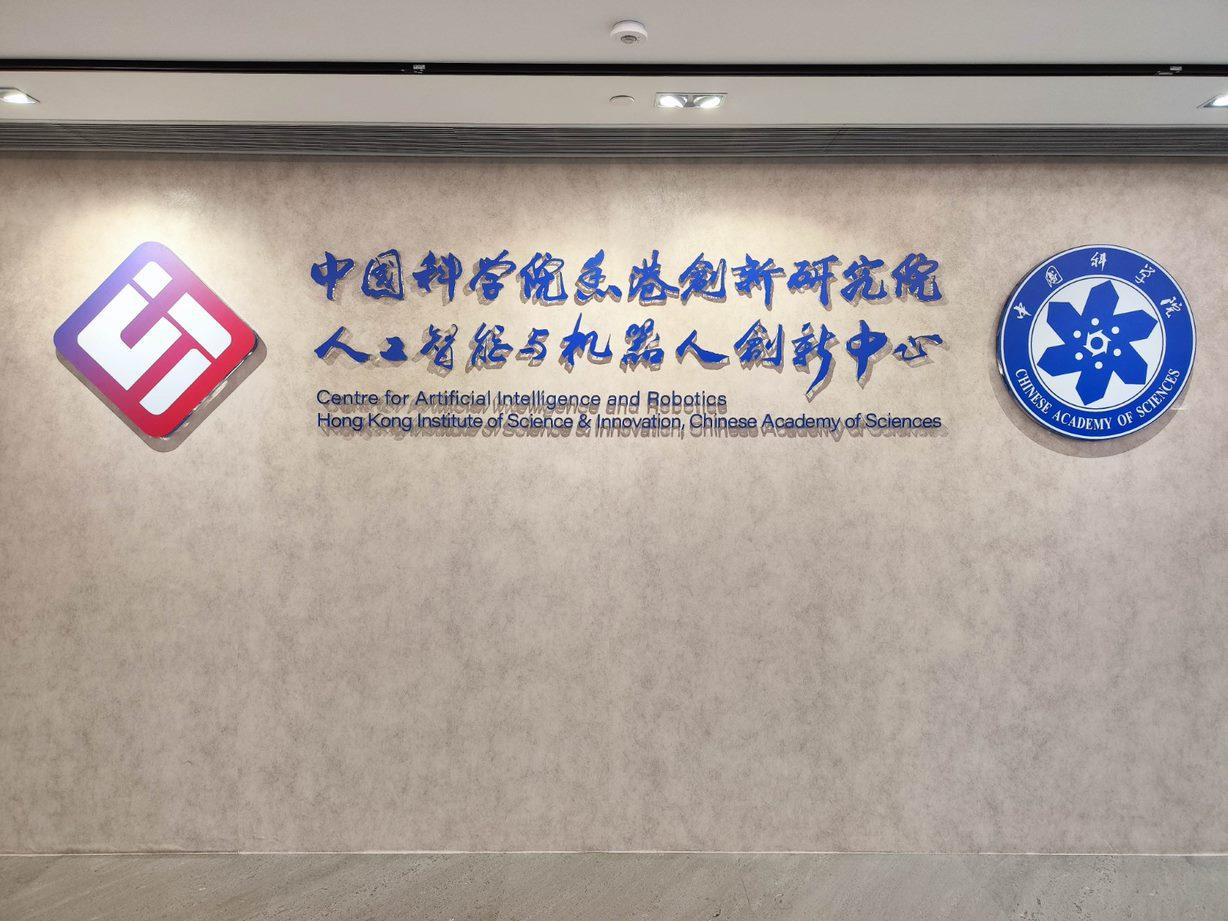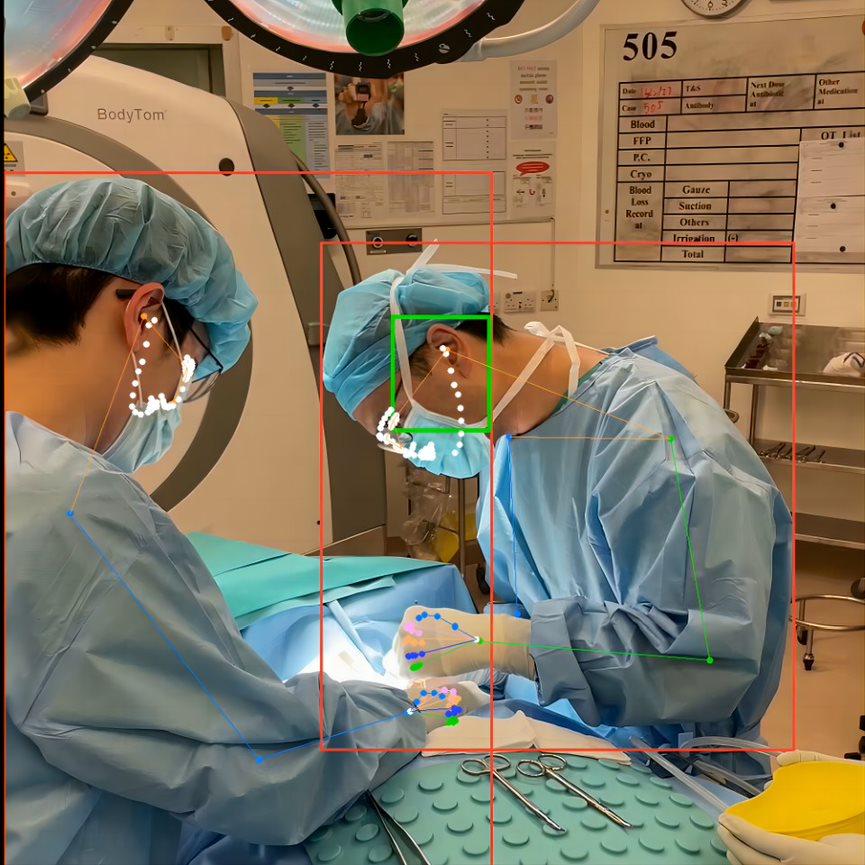
Research Institutes
APAS
Centre of Advanced Power and Autonomous Systems (APAS) (formerly Automotive Platforms and Application Systems R&D Centre) was established in 2006 and is fully integrated as a business division under HKPC on 1 April 2025. APAS continues to undertake market-led R&D programmes spanning green transportation, smart mobility, intelligent systems and emerging applications, as well as commercialises R&D results in collaboration with industry, universities and technology institutes to enhance the competitiveness of Hong Kong's automotive and other transportation sectors in new energy and smart driving.
Learn MoreASTRI
Hong Kong Applied Science and Technology Research Institute (ASTRI) was founded by the Government of the Hong Kong Special Administrative Region in 2000 with the mission of enhancing Hong Kong’s competitiveness through applied research. ASTRI’s core R&D competence in various areas is grouped under four Technology Divisions: Trust and AI Technologies; Communications Technologies; IoT Sensing and AI Technologies and Integrated Circuits and Systems. It is applied across six core areas which are Smart City, Financial Technologies, New-Industrialisation and Intelligent Manufacturing, Digital Health, Application Specific Integrated Circuits and Metaverse.
Learn MoreHKPC
The Hong Kong Productivity Council (HKPC) is a multi-disciplinary organisation established by statute in 1967, to promote productivity excellence through integrated advanced technologies and innovative service offerings to support Hong Kong enterprises. HKPC is the champion and expert in facilitating Hong Kong's new industrialisation empowered by i4.0 and e4.0 - focusing on R&D, IoT, big data analytics, AI and Robotic technology development, digital manufacturing, etc., to help enterprises and industries upgrade their business performance, lower operating costs, increase productivity and enhance competitiveness.
The Council is a trusted partner with comprehensive innovative solutions for Hong Kong industries and enterprises, enabling them to achieve resources and productivity utilisation, effectiveness and cost reduction, and enhanced competitiveness in both local and international marketplace. It offers SMEs and startups immediate and timely assistance in coping with the ever-changing business environment, accompanying them on their innovation and transformation journey.
Learn MoreLSCM
Logistics and Supply Chain MultiTech R&D Centre (LSCM) was founded in 2006, with funding from the Innovation and Technology Fund of The Government of the Hong Kong SAR, and is co-hosted by the University of Hong Kong, the Chinese University of Hong Kong and the Hong Kong University of Science and Technology. It aims to strengthen the local logistics sector and related industries by providing a one-stop resource for applied research and technology transfer, and to reinforce cooperation between the industry and research institutes to bring about meaningful and significant impact on the industry and the community.
LSCM serves the industry by initiating research projects, contract research, as well as providing business matching opportunities, technology transfer and intellectual property commercialisation. LSCM initiates technology and knowledge transfer to the marketplace to promote industrial digitalisation, facilitate technology advancement and strengthen Hong Kong’s position as a leading logistics and commercial hub.
Learn MoreNAMI
As a Materials Expert, Nano and Advanced Materials Institute (NAMI) has a strong portfolio of innovative technologies to support and collaborate with the industry, offering frontier-applied research on advanced materials as well as technology transfer for commercialization success.
NAMI, incorporated in 2006, is designated by the Innovation and Technology Commission of the Hong Kong Government as a Research and Development Center for nanotechnology and advanced materials. NAMI undertakes and provides support for market-driven research in nanotechnology and advanced materials, and strives for commercialization of the technologies to benefit the industry and the society at large, as well as re-industrialization to promote the economic growth and sustainability of Hong Kong.
Learn MoreHKRITA
Established in 2006, The Hong Kong Research Institute of Textiles and Apparel (HKRITA) is funded by the Innovation and Technology Commission of the HKSAR government, and hosted by The Hong Kong Polytechnic University.
HKRITA has achieved research deliverables over the years around our research clusters targeting in sustainability, industry advancement and social benefits through our centre-owned research teams and laboratories as well as collaborations with industry partners and institutions.
Learn MoreLingU
Lingnan University, a venerable institution in Hong Kong's academic landscape, has a rich heritage that dates back to its founding in Guangzhou in 1888. Known in its earlier years as Lingnan Xuexiao and subsequently as Lingnan University, the institution flourished in the field of higher education until 1952. It was reborn in Hong Kong in 1967 and has since aspired to evolve into a distinguished research-focused liberal arts university for the digital age. Lingnan is committed to excellence in teaching, learning, research, and fostering community ties, aiming for international acclaim.
Learn MoreCityU
As one of the fastest growing universities in the world over the past decade, City University of Hong Kong (CityU) is recognised as a hub for innovation in research and professional education. CityU identifies solutions to critical global challenges by extending the frontiers of knowledge both within and beyond existing research paradigms.
The University’s highly qualified academics are drawn from all over the world, not only bringing a wealth of research and professional experience to the teaching programmes, but also contributing to the knowledge and technology advancement.
Learn MoreHKBU
Aspiring to be a leading, research-led, liberal arts University in Asia, Hong Kong Baptist University is committed to conducting world-leading investigations that extends the frontiers of knowledge, tackles global challenges and benefits the community at home and abroad.
Pursuing research excellence is one of the priorities of the University’s Institutional Strategic Plan 2018-2028. The University keeps enhancing its capacity and strength to produce world-class research with an aim to bring significant impact to the society.
Learn MoreCUHK
Founded in 1963, The Chinese University of Hong Kong (CUHK) is a forward-looking comprehensive research university with a global vision and a mission to combine tradition with modernity, and to bring together China and the West. CUHK teachers and students hail from all around the world. Four Nobel laureates are associated with the university, and it is the only tertiary institution in Hong Kong with recipients of the Nobel Prize, Turing Award, Fields Medal and Veblen Prize sitting as faculty in residence. CUHK graduates are connected worldwide through an extensive alumni network. CUHK undertakes a wide range of research programmes in many subject areas, and strives to provide scope for all academic staff to undertake consultancy and collaborative projects with industry.
Learn MorePolyU
With over 80 years of proud tradition and ranking among the world’s top 100 institutions, The Hong Kong Polytechnic University (PolyU) aspires to be a leading university with world-class research and education.
PolyU is a home for educating thinkers, discoverers, innovators and communicators in delivering positive impact. We are committed to nurturing tomorrow’s leaders today, through a holistic education that provides graduates unrivaled placements to thrive in communities, industries and businesses.
Learn MoreHKUST
The Hong Kong University of Science and Technology (HKUST) (https://hkust.edu.hk/) is a world-class research intensive university that focuses on science, technology and business as well as humanities and social science. HKUST offers an international campus, and a holistic and interdisciplinary pedagogy to nurture well-rounded graduates with global vision, a strong entrepreneurial spirit and innovative thinking. Over 80% of our research work were rated “Internationally excellent” or “world leading” in the Research Assessment Exercise 2020 of Hong Kong’s University Grants Committee. We were ranked 3rd in Times Higher Education’s Young University Rankings 2022, and our graduates were ranked 23rd worldwide and among the best from universities from Asia in Global University Employability Survey 2021.
Learn MoreHKU
Founded in 1911, The University of Hong Kong (HKU) is the first and oldest institution of higher education in Hong Kong. For over a century, the University has dedicated itself to creating knowledge, providing education, and serving society. Today, HKU has an established worldwide reputation for being a research-led comprehensive University with ten Faculties and a strong commitment to intellectual freedom, liberty and diversity. HKU has a proud record of academic recognition in researches through honours and awards received from both local and international bodies.
Learn MoreHKCeND
Hong Kong Center for Neurodegenerative Diseases (HKCeND) was established under the government-funded InnoHK initiative. HKCeND harnesses the power of science to make a translational impact in the development of innovative diagnostic tools and therapeutic strategies for neurodegenerative diseases.
Building on the pioneering work of HKUST's State Key Laboratory of Nervous System Disorders led by neuroscientist Prof. Nancy Ip, HKCeND has fostered cross-institutional R&D collaboration with University College London and Stanford University.
This interdisciplinary collaboration is bringing together prominent scientists in the areas of neuroscience, stem cell biology and artificial intelligence to advance cutting-edge research and deliver promising breakthroughs that improve and transform the live of people worldwide.
Learn MoreLSCCB
Laboratory for Synthetic Chemistry and Chemical Biology (LSCCB) is an R&D centre funded by Health@InnoHK progamme of Innovation and Technology Commission of HKSAR. Established in 2020, LSCCB is operated with tripartite joint collaboration of The University of Hong Kong, Imperial College London and Peking University. LSCCB aims at integrating chemical and biomedical sciences to develop new molecular medicines and diagnostic tools for the treatment and analysis of human diseases, in particular, cancer. LSCCB currently assembles more than 20 principal investigators for 4 major research programmes including (a) Synthetic Chemistry; (b) Chemical Biology of Natural Products and Chinese Medicine; (c) Metal Anticancer Medicine, Diagnostics and Theranostics; and (d) Multi-Omics and Innovative Analytical Technologies for InnoHealth.
Learn MoreNovostics
The Centre for Novostics (Novostics), with the meaning of novel diagnostics, aims to push forward the frontier of molecular diagnostics. Novostics will focus on the development of cutting edge diagnostics based on cell-free nucleic acids in blood and other bodily fluids, particularly around prenatal diagnosis and cancer diagnostics. These research areas will accelerate the application of liquid biopsy and promote Hong Kong as a leading molecular diagnostic centre in the world.
Learn MoreMagIC
First Asia-based, leading International Microbiome Innovation Centre.
Pioneering microbiome research leading to scientific discoveries and clinical applications of gut microbiota has set foot in the newly founded Microbiota I-Center (MagIC) in Hong Kong. Together with top-notch researchers, the center will focus on utilizing the human gut microbiome for the development of novel microbial biomarkers and personalized microbiome therapeutics. This approach sets a new frontier for the pharmaceutical, healthcare, and food industries in Hong Kong.
Learn MoreABIC
Advanced Biomedical Instrumentation Centre
Biomedical instrumentation plays a critical and increasing role, albeit invisible to most people, in the healthcare industry by enabling more accurate diagnoses, effective treatments, and earlier intervention and prevention capabilities. Advancing the development of cutting-edge medical devices, actuators and sensors requires collaboration among talented scientists, engineers and clinicians, as well as an environment that facilitates the commercialisation of research results into real-world applications that are accessible to a broader population.
The mission of the Advanced Biomedical Instrumentation Centre is to accelerate progress in translating advanced biomedical instrumentation from research and development into real-world healthcare solutions that benefit people in Hong Kong and around the world. The Centre aims to foster collaboration among top-notch engineers, scientists and clinicians in the US and Hong Kong to develop next-generation microfluidics and low-cost instrumentation technologies. It also takes advantage of Hong Kong’ s vibrant start-up community to commercialise the research work tailored for Asian patients.
Learn MoreC2i
Centre for Immunology & Infection
Addressing Public Health Issues Posed by Emerging Infectious Diseases
The rise of infectious diseases poses a significant threat to human health and public health systems globally. With the objective of deepening the understanding of human response to viruses and diseases, the Centre for Immunology & Infection (C2i) will contribute to establishing Hong Kong as a global centre of excellence for precision medicine tailored to population strategies and formulate innovative solutions for public health challenges with special attention to emerging infectious diseases.
A major focus of C2i is to apply a new technology platform established by the Institut Pasteur to develop an Immune Report Card for individuals, which will help define the health of one’ s immune system — the first line defence mechanism against diseases. The work will take into consideration individual genetics, previous infection histories, resident microbiota, as well as personal lifestyle and environmental factors to come up with personalised patient management strategies and improve the effectiveness of future public health initiatives.
CVVT
Outbreaks of infectious diseases pose a grave risk and burden formedical services and public health systems, both in the human cost of suffering and socioeconomic disruption.
Implementing proactive and effective surveillance and control measures for such outbreaks requires a comprehensive knowledge of the viruses circulating in both animals and humans.
Centre for Virology, Vaccinology and Therapeutics (CVVT) has been established to develop that critical base of knowledge and transform impactful research discoveries into practical applications to control and even prevent infectious diseases. Apart from the comprehensive knowledge of the viruses, CVVT aims to develop a novel vaccine platform for respiratory viruses, broad spectrum antivirals for prophylactic and therapeutic treatment, and highly-multiplex diagnostic tests for rapid detection.
Learn MoreCEVR
The Centre for Eye and Vision Research (CEVR) is a research collaboration between The Hong Kong Polytechnic University and the University of Waterloo in Canada under the InnoHK initiative of the HKSAR Government. It is located at the Hong Kong Science Park, Shatin, Hong Kong. It is the first global hub performing ground-breaking research in five key areas Myopia and Eye Growth, Ocular Drug Discovery and Delivery, Vision Enhancement, Tear Film and Ocular Surface, and Advanced Optometric Technology. The mission of CEVR is to generate technologies to prevent vision loss in the aging population and preserve healthy vision.
Learn MoreCOCHE
Cerebro-Cardiovascular Disease (CVD) has been the world’s leading cause of morbidity and mortality as well as the health industry’s most costly disease for treatment. Yet, despite recent advances in its treatment, more effective and accessible ways to tackle CVDs remain to be discovered. Hong Kong Centre for Cerebro-cardiovascular Health Engineering (COCHE) is taking on the challenge to develop new ways to control and prevent CVDs with innovative technologies allowing early prediction and intervention, so people can stay a step ahead of the disease. These technologies can also reduce human cost, as well as alleviate both the economic and social burdens, on the healthcare system.
In collaboration with the University of Oxford and the Karolinska Institutet, Hong Kong Centre for Cerebro-cardiovascular Health Engineering (COCHE) was established under City University of Hong Kong in December 2020. COCHE, supported financially by Innovation and Technology Commission (ITC), was admitted to Inno-Health cluster of InnoHK Programme which is a major R&D initiative of the Hong Kong Special Administrative Region Government.
Learn MoreCDD
Funded by Innovation and Technology Commission (ITC) of the Hong Kong Government, Centre for Chinese Herbal Medicine Drug Development Limited (the Centre) was established in September 2020, to accelerate the development of Chinese Herbal Medicine (CHM)-based drugs, and serve as a strategic platform to promote collaborations among local and international researchers, institutions and industry. The Centre aims to achieve the goal by enhancing the quality of pre-clinical and clinical CHM research and transforming the results into pharmaceutical products for international markets. In particular, the Centre develops treatments and cures for diseases such as ulcerative colitis and chronic constipation. It also supports the incubation of new CHM-based pharmaceutical start-ups that will target the global market, and nurtures talent for CHM research in Hong Kong.
Learn MoreCRMH
As the branch organization of the Chinese Academy of Sciences, Hong Kong Institute of Science & Innovation (HKISI) is the first national research institution in Hong Kong SAR approved by the central government of China. Centre for Regenerative Medicine and Health (CRMH), the subsidiary of HKISI, is supported by the Guangzhou Institutes of Biomedicine and Health, Chinese Academy of Sciences. CRMH is funded by CAS and the InnoHK program from the Innovation and Technology Commission, Hong Kong SAR government. With its focus on stem cell therapy & genomic editing, developmental biology, and drug discovery, CRMH promotes the globalization of regenerative medicine research and achievements.
Learn MoreCOI
Co-directed by Professor Tak Mak and Professor Suet Yi Leung from HKUMed, Centre for Oncology and Immunology (https://www.coinno.hk/) aims to harness the power of biotechnology to develop innovative therapeutics to combat hard-to-treat malignancies and bring hope to millions of cancer patients around the world.
The Centre’s research team comprises globally renowned researchers who bring with them a wealth of complementary expertise and experience in oncology research, technology adoption, and commercialisation. The Centre will employ novel functional screens as well as genomic and multi-omics techniques to identify novel "druggable" cancer targets. Leveraging the translational and clinical trial expertise of its lead scientists, the Centre will establish a number of advanced technical platforms to facilitate its overall goal of bringing candidate drugs and novel immunotherapy approaches into clinics.
Learn MoreCTSCB
The Centre for Translational Stem Cell Biology (CTSCB) gives Hong Kong a foot in the door in one of the most exciting areas of scientific and medical research. A team of world-leading scientists and clinicians, many of whom are authoritative voices in their respective fields, will work together to elevate stem cell technology to a new height. Leveraging on a world-leading patented technology in establishing Expanded Potential Stem Cells (EPSCs) from multiple mammalian species, including mouse, pig and human, the CTSCB team will devote their efforts to translating discoveries into regenerative medicine, organ transplantation and genomic medicine for the benefit of people around the world. The Centre will develop the next-generation stem cell technology for producing mature and functional cells for regenerative medicine. The use of patented technology enables in-depth study of human diseases such as autoimmune disease, liver and cardiovascular illnesses, and leads to faster development in cell-based therapy, organ transplantation and drug discovery.
Learn MoreCNRM
Center for Neuromusculoskeletal Restorative Medicine (CNRM) is a multi-disciplinary, international consortium devoted to the application of convergent principles and technologies of biomedical science and engineering to restore structure and function to neuromusculoskeletal tissues and organs injured, diseased and degenerated due to aging, for the maintenance of mobility and enhancement of quality of life through biomedical research and development.
The Center based at the Hong Kong Science and Technology Park (HKSTP), combines the talents and expertise in stem cells, biomaterials, 3D bioprinting, tissue engineering, and personalized and translational medicine from The Chinese University of Hong Kong (CUHK) and the Karolinska Institutet (KI).
Learn MoreHKCLR
Hong Kong Centre for Logistics Robotics was established in 2020 by The Chinese University of Hong Kong, with research contributions from the University of California, Berkeley. The Centre focuses on the research and development (R&D) of robotics and artificial intelligence (AI) technologies for “future workplace” as well as innovative solutions to the “pressing problems” in the logistics industry. In particular, HKCLR aims to advance robot intelligence in terms of
• Robust Sensing and Perception
• AI-Powered Robot Manipulation
• Human-Robot Collaboration
• Unmanned Logistics Vehicles
The research team is composed of distinguished professors from the two universities and accomplished Ph.D. degree holders across world-leading universities. The Centre is dedicated to pursuing innovative breakthroughs in ready-for-use robotics and AI technologies via close collaboration with academic and industrial stakeholders throughout Hong Kong, the Greater Bay Area (GBA), and Chinese Mainland. It is expected that the Centre will foster the leading role of the local logistics industry in GBA and Chinese Mainland, meanwhile enhancing its competitive edge in the global arena.
Learn MoreMRC
Through the InnoHK funding support of the HKSAR Government, the Multi-Scale Medical Robotics Center (MRC) was established in 2020 by the Chinese University of Hong Kong in collaboration with ETH Zürich, Imperial College London, Johns Hopkins University, and the University of Hong Kong. We bring the worlds of medicine and robotics together, focusing on technological innovation with a strong emphasis on clinical translation and direct patient benefits.
Furthermore, we support three areas of research including: Endoluminal multi-scale robotic platforms for diagnostics and therapeutics, Magnetic-guided endoluminal robotic platform, Image-guided robotic interventions.
Learn MoreCPII
Centre for Perceptual and Interactive Intelligence was established by The Chinese University of Hong Kong in 2020. Our Centre Director Professor Helen Meng and Principal Investigators have rich backgrounds in computer vision, multilingual speech and language technologies, natural language processing, and AI-enabled design automation.
Learn MoreAiDLab
AiDLab is the first research platform that focuses on the integration of Artificial Intelligence (AI) with design. It was jointly established by The Hong Kong Polytechnic University (PolyU) and the Royal College of Art (RCA) in the UK, and is funded by the HKSAR Government under the InnoHK Research Clusters. Located at the Hong Kong Science Park, AiDLab has established a new creative cluster of AI in design and is in a leading position internationally to conduct interdisciplinary research in three thematic programmes: Ergonomic and Inclusive Design, Innovation in Product and Service Design, and Intelligent Fashion Design and Quality Control, that drives innovation and sustainability, and makes a positive impact on both industry and society.
Learn MoreHKCRC
Hong Kong Center for Construction Robotics (HKCRC), a scientific research and entrepreneurship platform, was established in 2020 as a joint collaborative effort among the Hong Kong University of Science and Technology (HKUST), University of California, Berkeley, and Tsinghua University. It belongs to the InnoHK project of the Hong Kong government. Led by Professor Li Zexiang, HKCRC gathered the world's top professors, scholars, and industrial resources to build an intelligent business incubator for the construction industry. HKCRC is committed to bringing advanced technologies such as robotics, automation, and AI into the construction industry and transformative changes to the construction industry.
Learn MoreCIMDA
Advance the world with emerging technologies.
Established and located in the Hong Kong Science and Technology Parks (HKSTP), the Centre for Intelligent Multidimensional Data Analysis (CIMDA) is where we devote ourselves to high-technology research and development. As a member of the AIR@InnoHK Cluster, CIMDA closely works with its collaborating institutions, City University of Hong Kong and University of Oxford. Here world-class research leaders from these and other institutions and industries join their hands and work on high-calibre projects in mathematics, computer science and engineering, digital media, biology and medicine.
Website: www.innocimda.com
Learn MoreAIFT
The Laboratory for AI-Powered Financial Technologies Limited (AIFT) is an innovative technology center cofounded by Columbia University and City University of Hong Kong with the commitments to pioneering research, fostering talents, and commercializing technological applications. AIFT is the only FinTech research lab recognized by the InnoHK Research Cluster of the HKSAR government.
With the full support of the HKSAR government, AIFT is equipped with cutting-edge technologies, world-class talents and experienced industry practitioners, which enables AIFT to resolve the contemporary challenges in finance by integrating the modern financial theories with artificial intelligence.
Learn MoreCAiRS
As “New-industrialisation” has gained momentum in Hong Kong in recent years, the city’s new growth agenda now depends on the application of innovative technologies to streamline manufacturing process for the development of high value-added industries and industry supply chains locally. In addition to regenerate manufacturing that once played a major role in the economy.
Today, Hong Kong’s brands represent safe and reliable products and systems, and the Centre for Advances in Reliability and Safety (CAiRS) has been established to ensure and elevate “trust” in Hong Kong products using a top-down, problem-centric and collaborative approach. Through our collaborating research projects with industry, not only accelerate the "commercialization of scientific research results", but also expediting the transformation of "from 1 to N" results. CAiRS consolidates local and overseas’ talents to improve the innovative eco-system.
Learn MoreHKQAI
Hong Kong Quantum AI Lab, also known as The Centre of Machine Learning for Energy Materials and Devices, was established through a collaboration between HKU and Caltech. It is funded by InnoHK, the world-class ten-billion I&T initiative of the Hong Kong Special Administrative Region Government. The centre is dedicated to making breakthroughs in the fundamental research area of AI + quantum chemistry and applying the latest scientific discoveries and technological advancements to facilitate the transformation and development of microelectronics, new energy, materials industries through digital technology.
Our areas of technological research and development include the AI + quantum chemistry simulation platform for discovering new materials, Li-ion battery design and simulation tools, battery health and life diagnosis tools, solid-state batteries, new catalysts, OLED emitter materials, robotic technologies, and more.
For more information, please visit https://hkqai.com
Learn MoreTransGP
Centre for Transformative Garment Production (TransGP) was established with the collaborative effort of The University of Hong Kong and Tohoku University. The Centre aims to provide solutions for the needs of the future society, where labour shortage would arise from population aging, and where increasing percentage of the mankind will be living in megacities. The Centre also targets at driving paradigm shift for reindustrializing selected sectors, i.e. garment industry, which is still relying on labour-intensive operations but with clear and identified processes for transformation. A number of goals are expected to be achieved through the Centre’s research programmes, such as to leverage the proprietary AI and robotics technology to shorten development cycles, to improve engineering efficiency and to prevent faults and increase safety by automating risky activities.
Learn MoreD²4H
Laboratory of Data Discovery for Health (D²4H)
The Laboratory of Data Discovery for Health (D²4H) aims to gather and curate massive, unique data resources and develop deep, frontier analytics to protect global public health while improving individual healthcare through precision medicine. The D²4H brings together a multi-disciplinary team of the world’s leading scientists to apply Artificial Intelligence and big data in ways that will transform our approaches to understanding and treating disease.
Spearheaded by The University of Hong Kong with support from world-renowned academic institutions nationally and internationally, the D²4H is keen to work with health authorities such as the World Health Organization and China Center for Disease Control and Prevention. Through harnessing collaboration across multiple disciplines and sectors, the D²4H advances the frontiers of healthcare technology in Hong Kong, the Greater Bay Area, and beyond to produce ‘moonshots’ that will have tremendous healthcare benefits for global health.
Learn MoreACCESS
Specialized AI chips will be a key factor driving the AI revolution. To cope with this emerging demand on hardware, the AI Chip Center for Emerging Smart Systems (ACCESS) is putting Hong Kong on the global map of AI chip and hardware design. ACCESS is a tightly coordinated, multi-disciplinary center for advancing integrated circuit (IC) design technologies to enable novel data-centric computing paradigms supporting a wide range of AI applications. Putting together world-class experts, the Center is focus on the research theme of designing customised AI chips to realise ubiquitous AI applications used throughout society.
The research agenda in ACCESS is organised into four programmes:
- Enabling Technology for Emerging Computing Systems addresses memory and data bandwidth problems to alleviate the bottlenecks of AI hardware by exploring integration of silicon-compatible emerging technologies with scaled silicon chips.
- Architecture and Heterogeneous System Integration focuses on exploring different new architectural and system integration solutions for efficient neuromorphic computing on platforms ranging from cloud to smart Internet of Things.
- AI-Assisted EDA (Electronic Design Automation) for AI Hardware hopes to develop new design methodologies and design automation tools for AI chips.
- Hardware-Accelerated AI Applications emphasise selected emerging applications for hardware acceleration, exploring system architecture and new design tools specific to the target applications to achieve breakthroughs in AI hardware in speeds and energy efficiency.
For more inforamtion, please check: https://inno-access.hk/
Learn MoreFLAIR
The Hong Kong Industrial Artificial Intelligence & Robotics Centre (FLAIR) is established by the Hong Kong Productivity Council (HKPC) at the Hong Kong Science Park and is part of AIR@InnoHK, which is one of the two world-class research clusters being established by InnoHK Clusters of the HKSAR Government, to support Hong Kong in developing into an international innovation and technology hub.
FLAIR aims to engender synergy and achieve a clustering effect by attracting top-notch local, Mainland and overseas research institutions to engage in research collaboration. It will also actively approach private enterprises and industry associations for consultation and solicit their involvement in FLAIR’s work to ensure its industry orientation in addressing major R&D problems encountered by the industries in AI adoption.
As the sole founder, HKPC works together with RWTH Aachen Campus of Germany, the major collaborator of FLAIR, by bundling their strengths and repertoire of resources in technical expertise, networks, innovation and patents etc. to set up the FLAIR and support its operation.
For more information, please visit FLAIR’s website: https://www.hkflair.org
Learn MoreCAIR
Under the Memorandum of Understanding signed between HKSAR Government and Chinese Academy of Sciences (CAS), CAS established the Hong Kong Institute of Science & Innovation of Chinese Academy of Sciences (HKISI), its affiliated institution in Hong Kong, with a view to facilitating its presence in the research clusters on healthcare technologies and on artificial intelligence and robotics technologies. The institution aims to promote transfer and translation of scientific research results, coordinate collaboration between the CAS and local universities, and undertake technological education and promotion activities.
The Centre for Artificial Intelligence and Robotics (CAIR) of HKISI, was established in 2019 and is located at Science Park, Hong Kong. Its development is led by the Institute of Automation, Chinese Academy of Sciences (CASIA), also supported by the InnoHK programme from Innovation and Technology Commission. It is positioned to become a world-class research institute for AI and robotics, emphasizing applications in the range of healthcare, fintech and arts. CAIR aims to become an international hub for scientific research and technological innovation centre with global influence in the Guangdong-Hong Kong-Macao Greater Bay Area.
Learn More